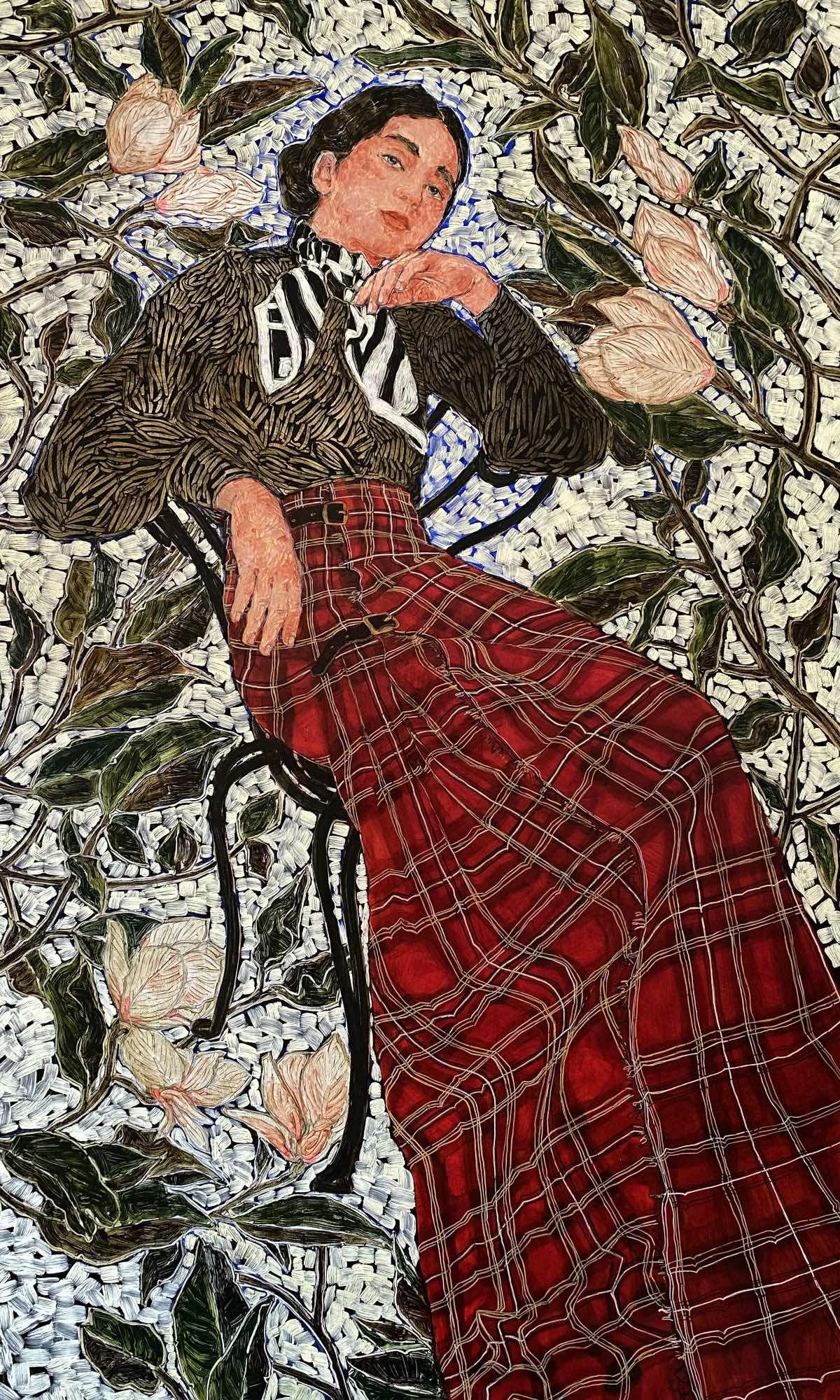ROSSETTI COLLECITON
VIRGINIA WOOLF -- 165 x 190 cm



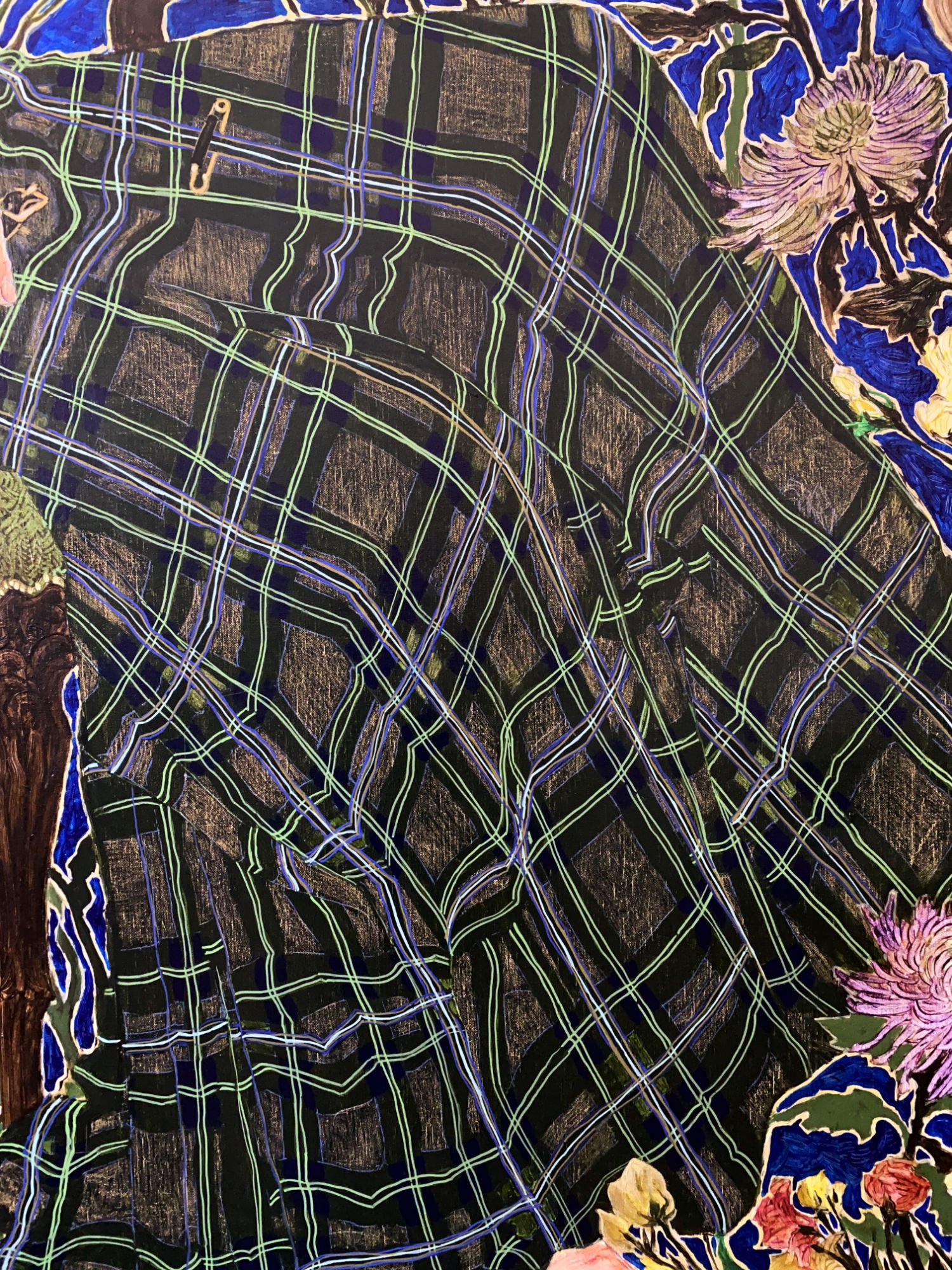
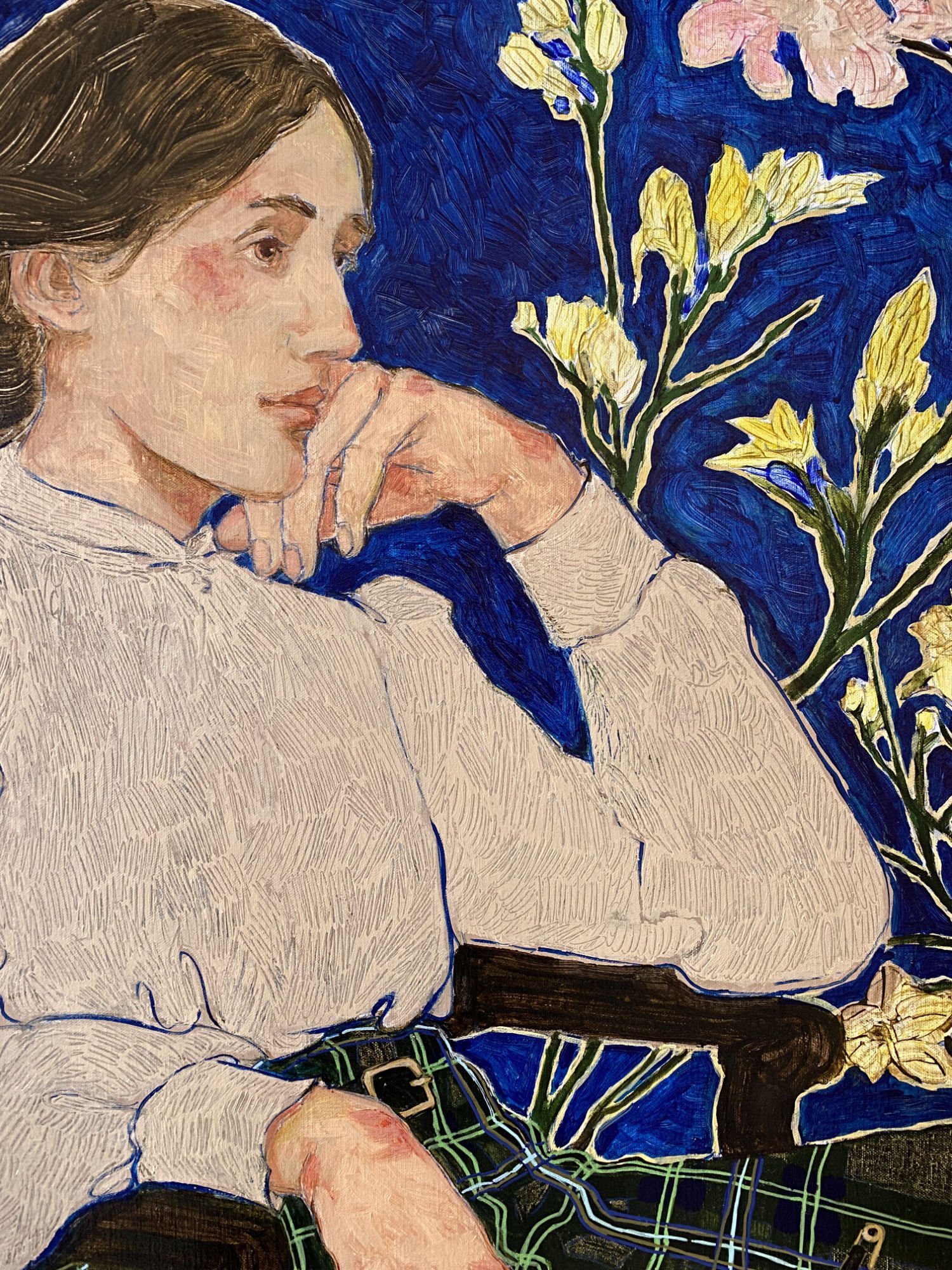
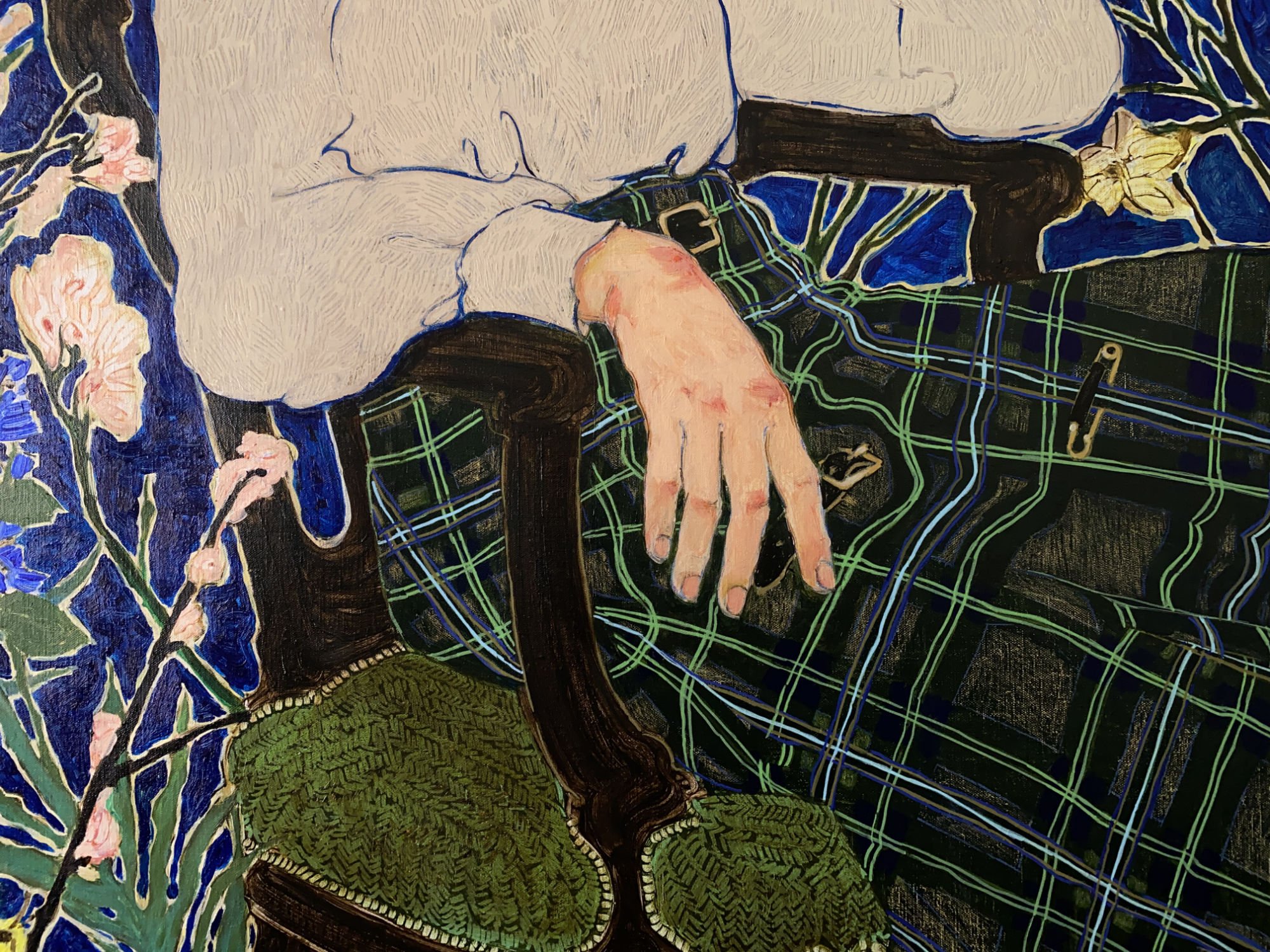


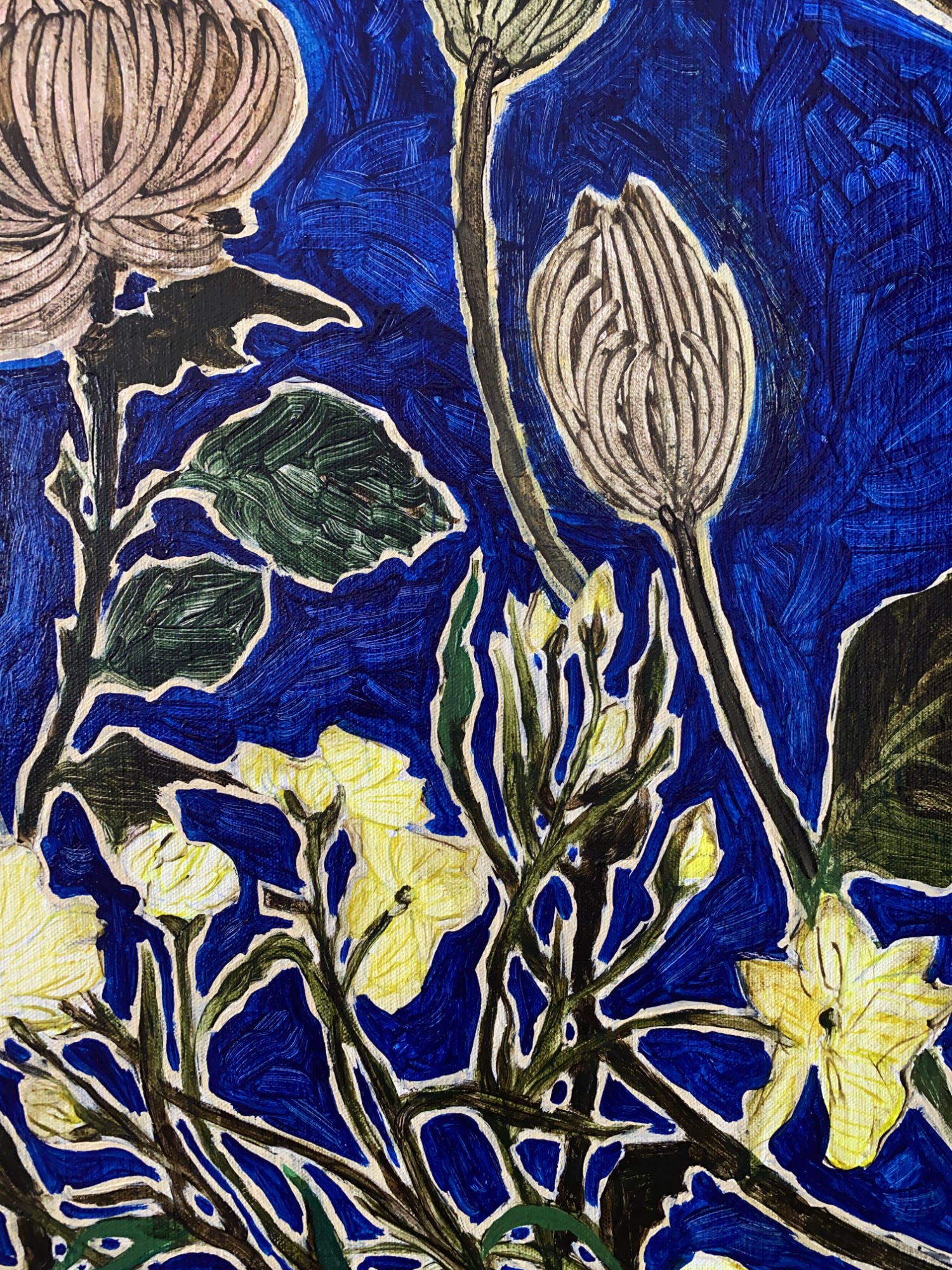
“But for all that there was something odd at work:
My heart is like a singing bird
Whose nest is in a water’d shoot;
My heart is like an apple tree
Whose boughs are bent with thick-set fruit—
perhaps the words of Christina Rossetti were partly responsible for the folly of the fancy—it was nothing of course but a fancy—that the lilac was shaking its flowers over the garden walls, and the brimstone butterflies were scudding hither and thither, and the dust of the pollen was in the air. A wind blew, from what quarter I know not, but it lifted the half-grown leaves so that there was a flash of silver grey in the air. It was the time between the lights when colours undergo their intensification and purples and golds burn in window-panes like the beat of an excitable heart; when for some reason the beauty of the world revealed and yet soon to perish (here I pushed into the garden, for, unwisely, the door was left open and no beadles seemed about), the beauty of the world which is so soon to perish, has two edges, one of laughter, one of anguish, cutting the heart asunder. The gardens of Fernham lay before me in the spring twilight, wild and open, and in the long grass, sprinkled and carelessly flung, were daffodils and bluebells, not orderly perhaps at the best of times, and now wind-blown and waving as they tugged at their roots. The windows of the building, curved like ships’ windows among generous waves of red brick, changed from lemon to silver under the flight of the quick spring clouds.”
EUPHEMIA GRAY - 145 x 190 cm


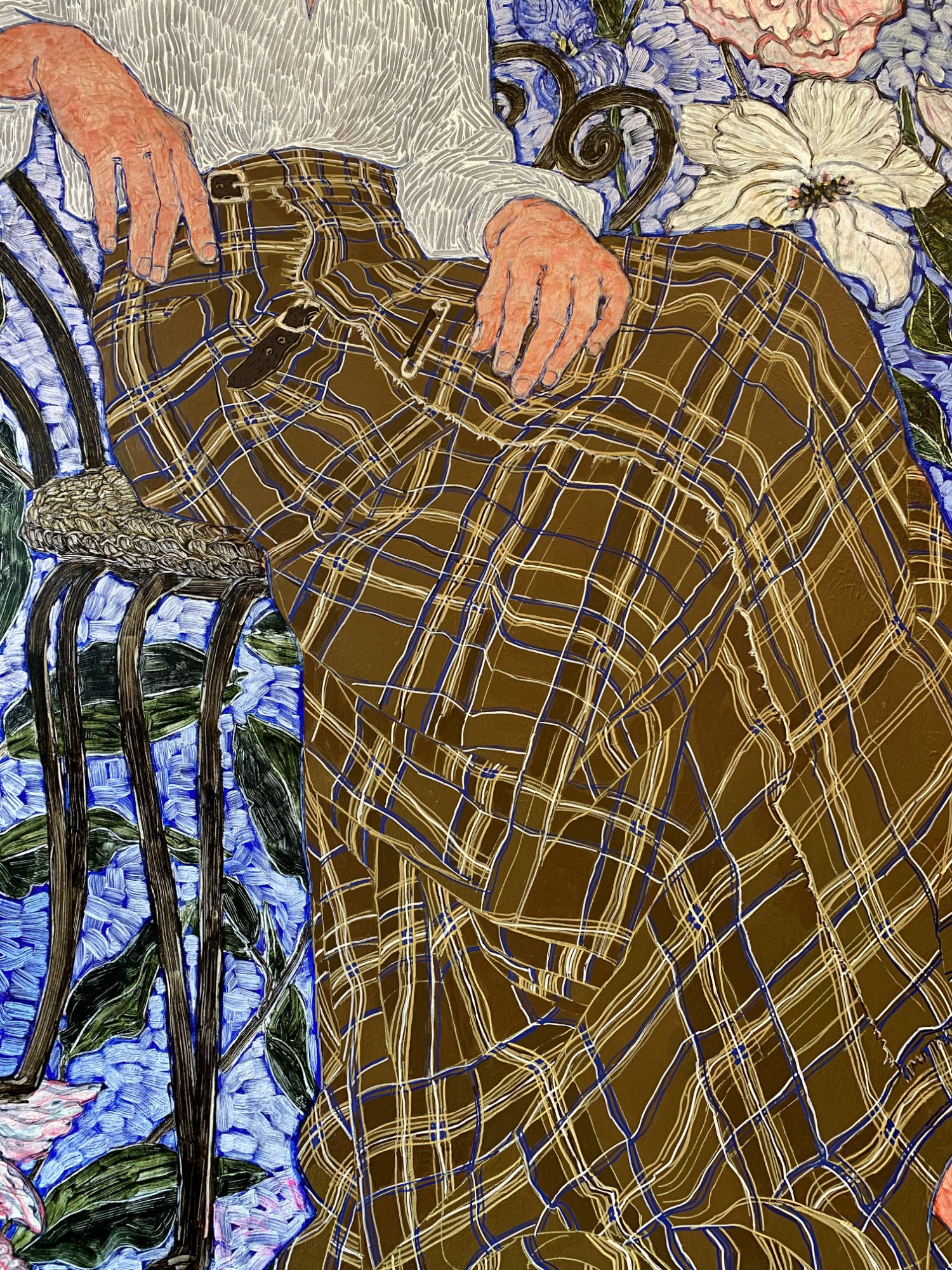
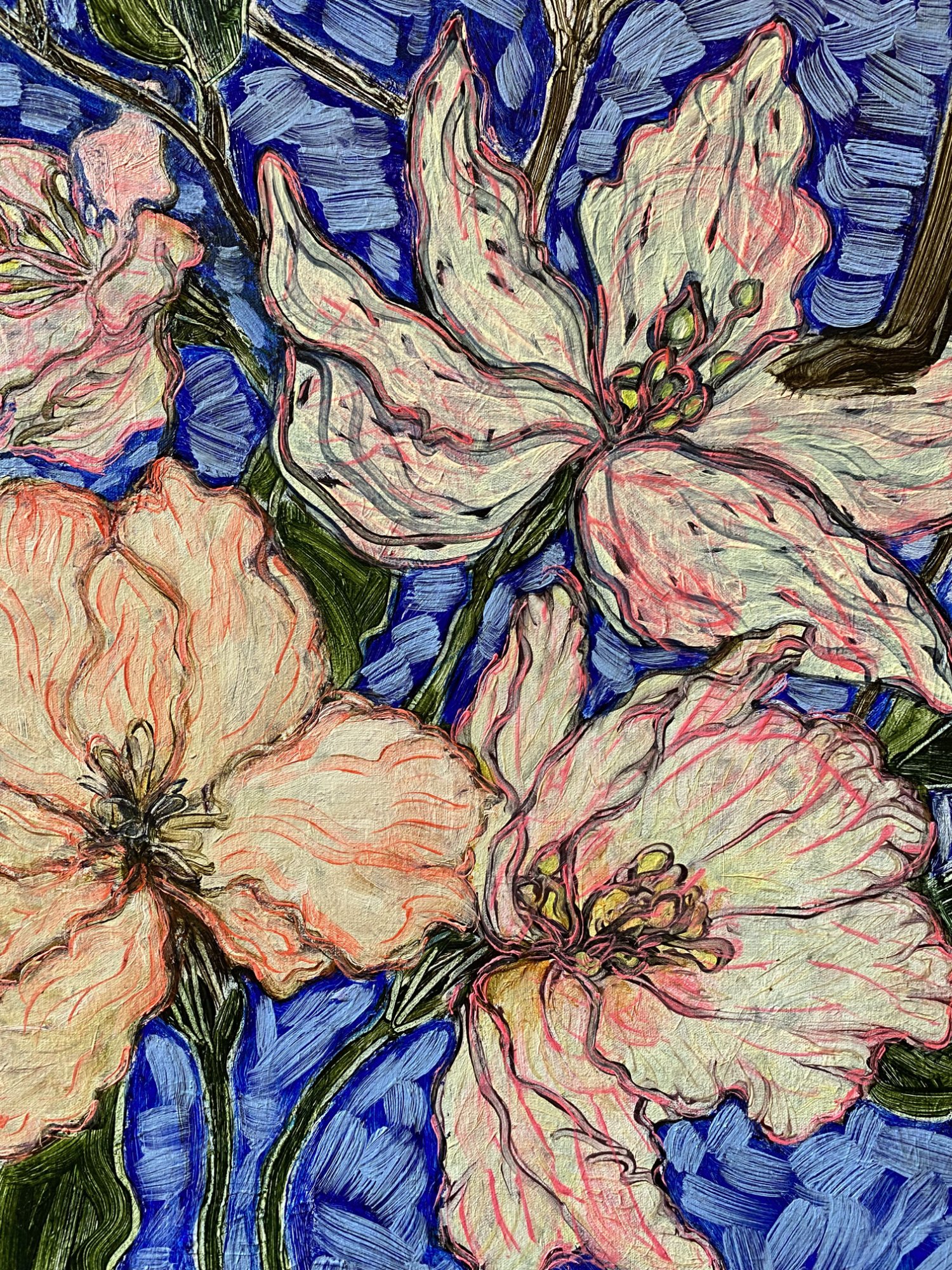
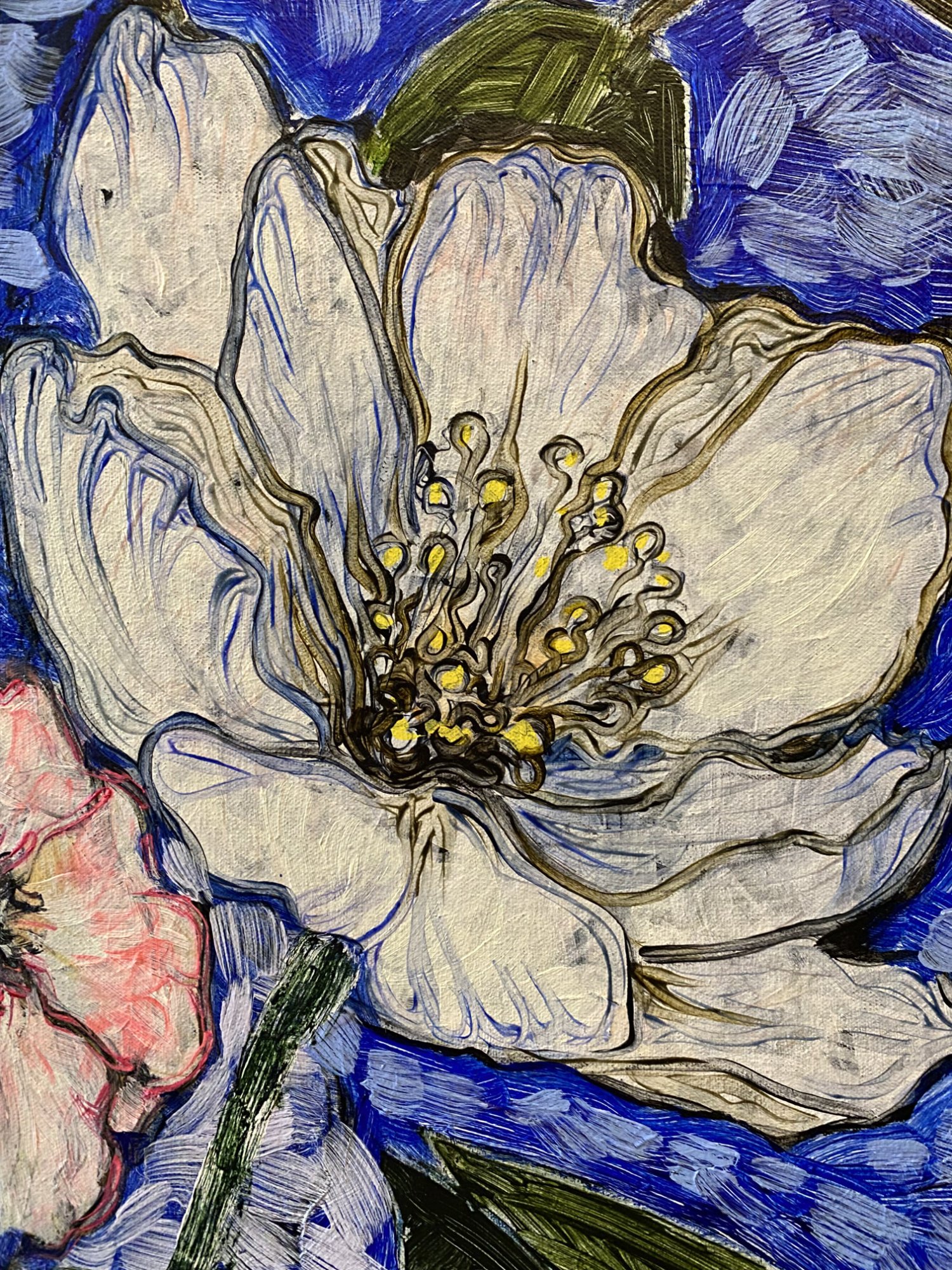



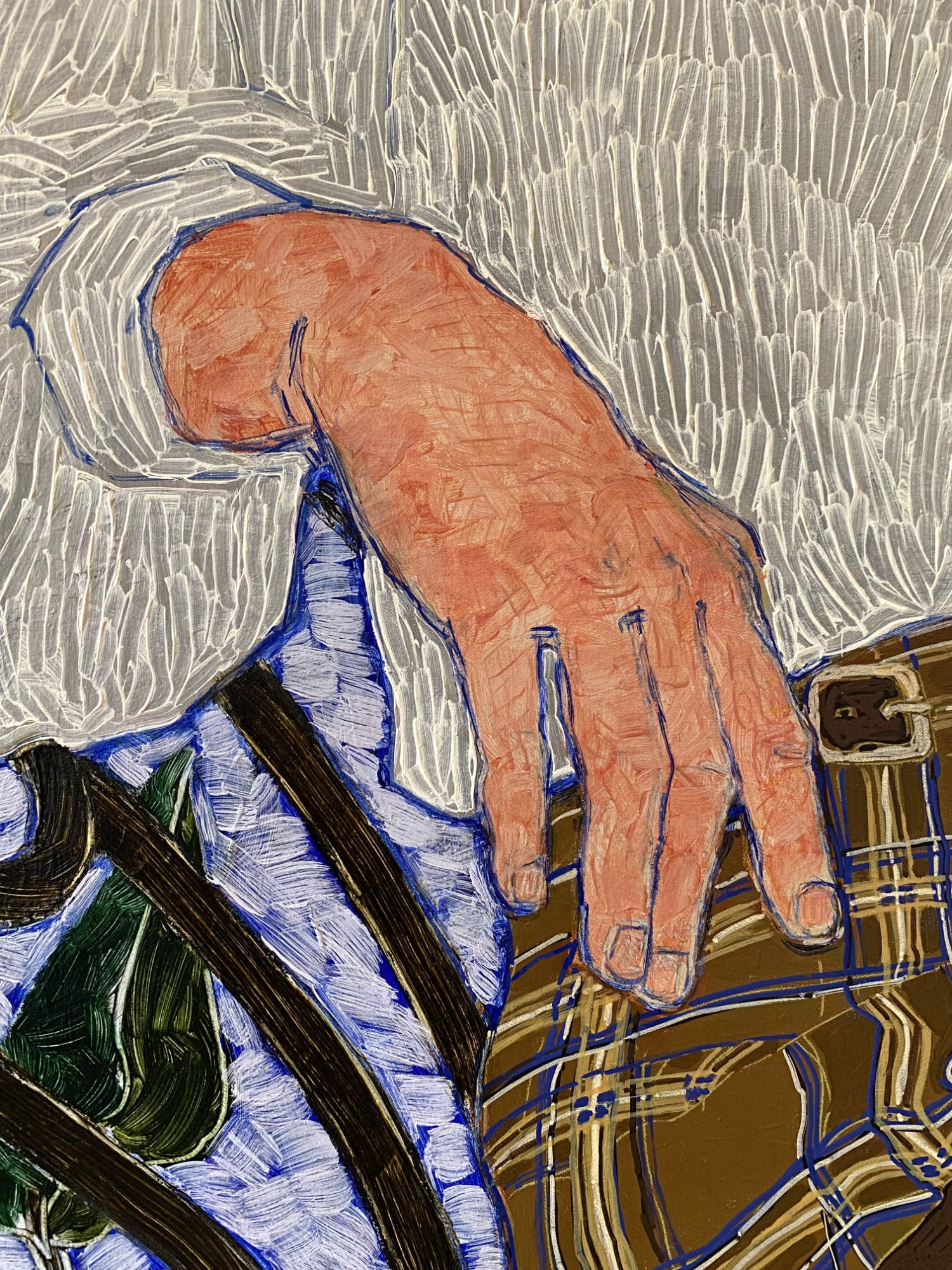
“A Pause of Thought
I looked for that which is not, nor can be,
And hope deferred made my heart sick in truth:
But years must pass before a hope of youth
Is resigned utterly.
I watched and waited with a steadfast will:
And though the object seemed to flee away
That I so longed for, ever day by day
I watched and waited still.
Sometimes I said: This thing shall be no more;
My expectation wearies and shall cease;
I will resign it now and be at peace:
Yet never gave it o’er.
Sometimes I said: It is an empty name
I long for; to a name why should I give
The peace of all the days I have to live?—
Yet gave it all the same.
Alas, thou foolish one! alike unfit
For healthy joy and salutary pain:
Thou knowest the chase useless, and again
Turnest to follow it.”
BEATRICE - 194 x 225 cm


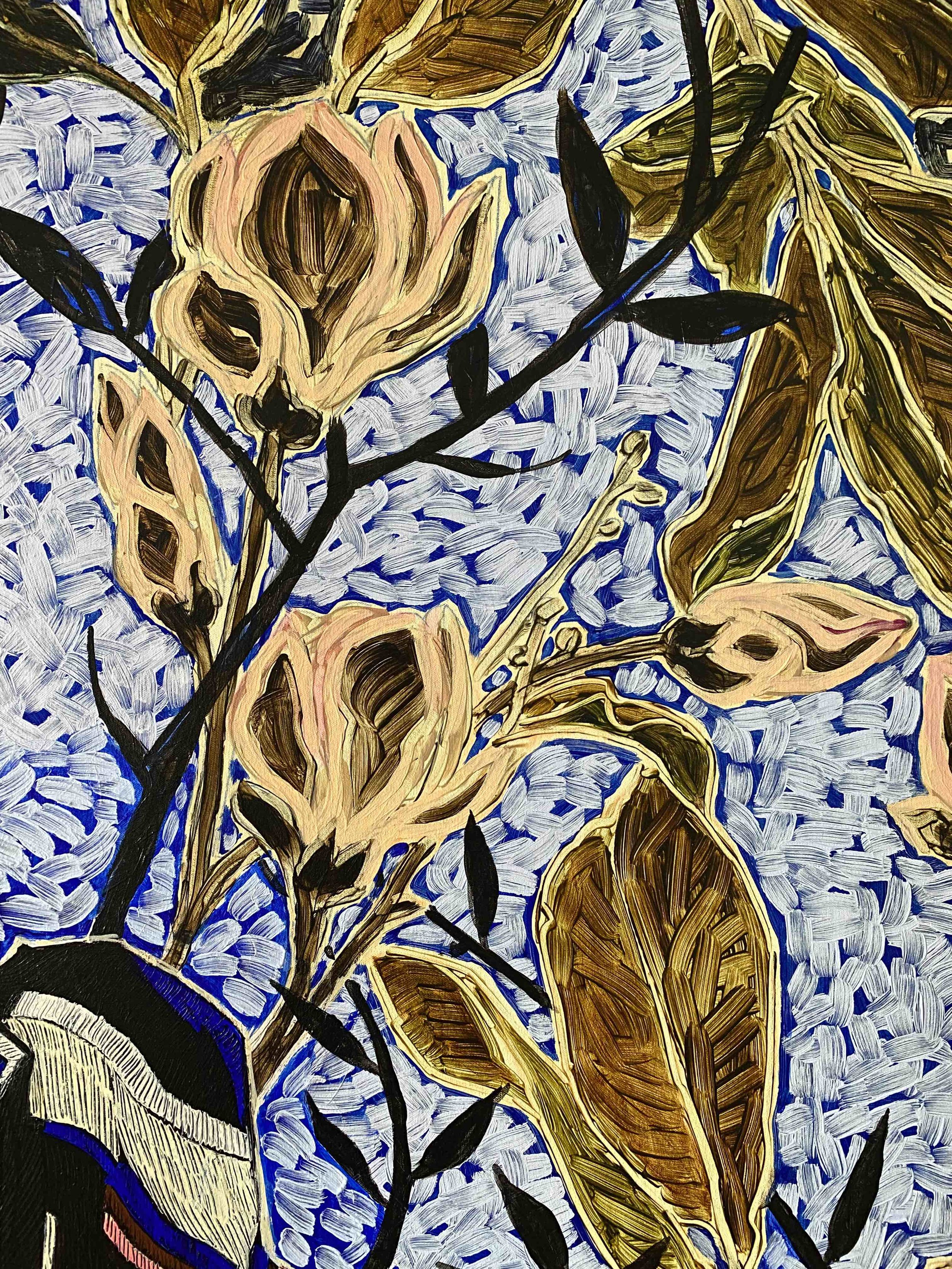


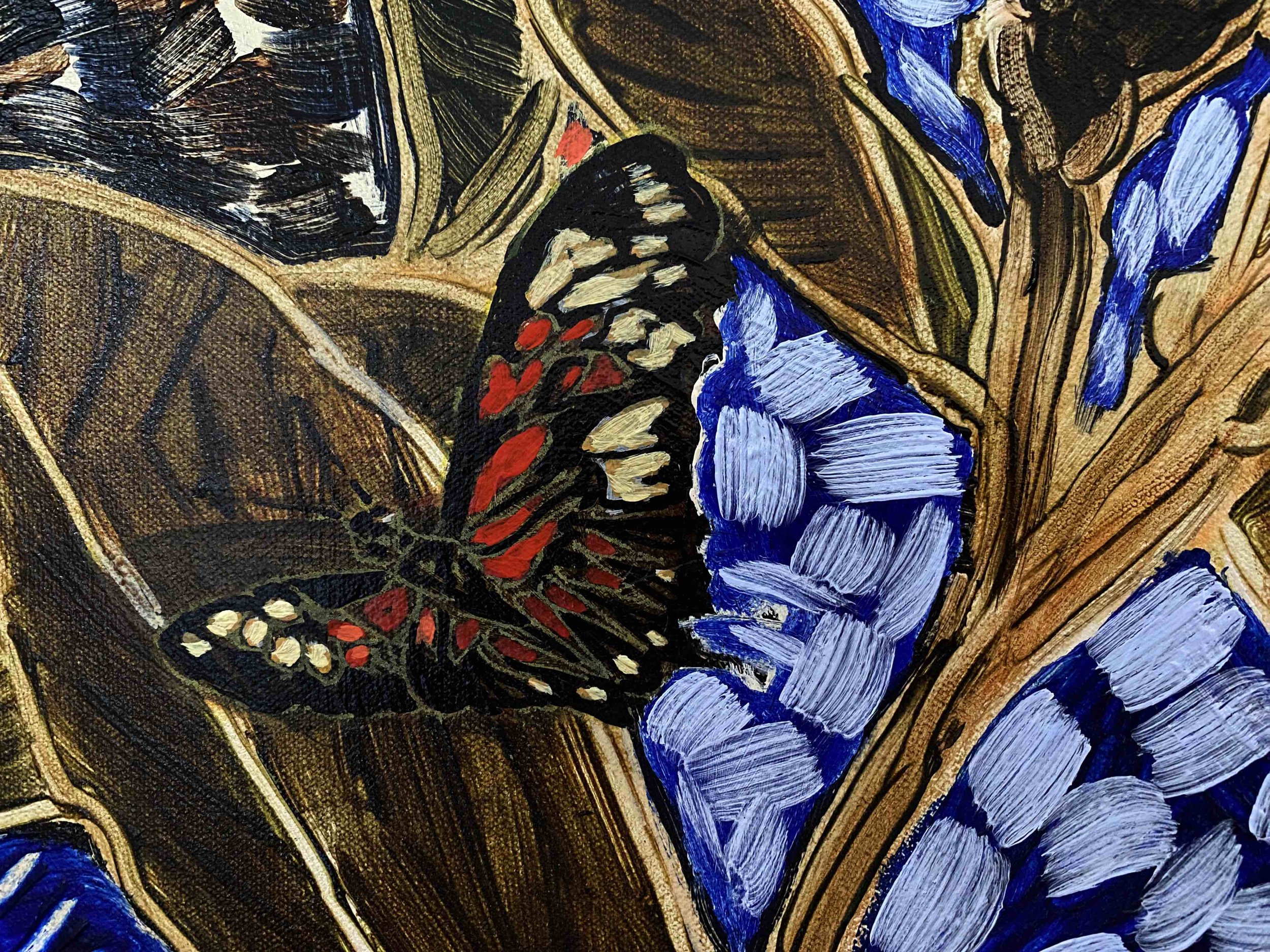
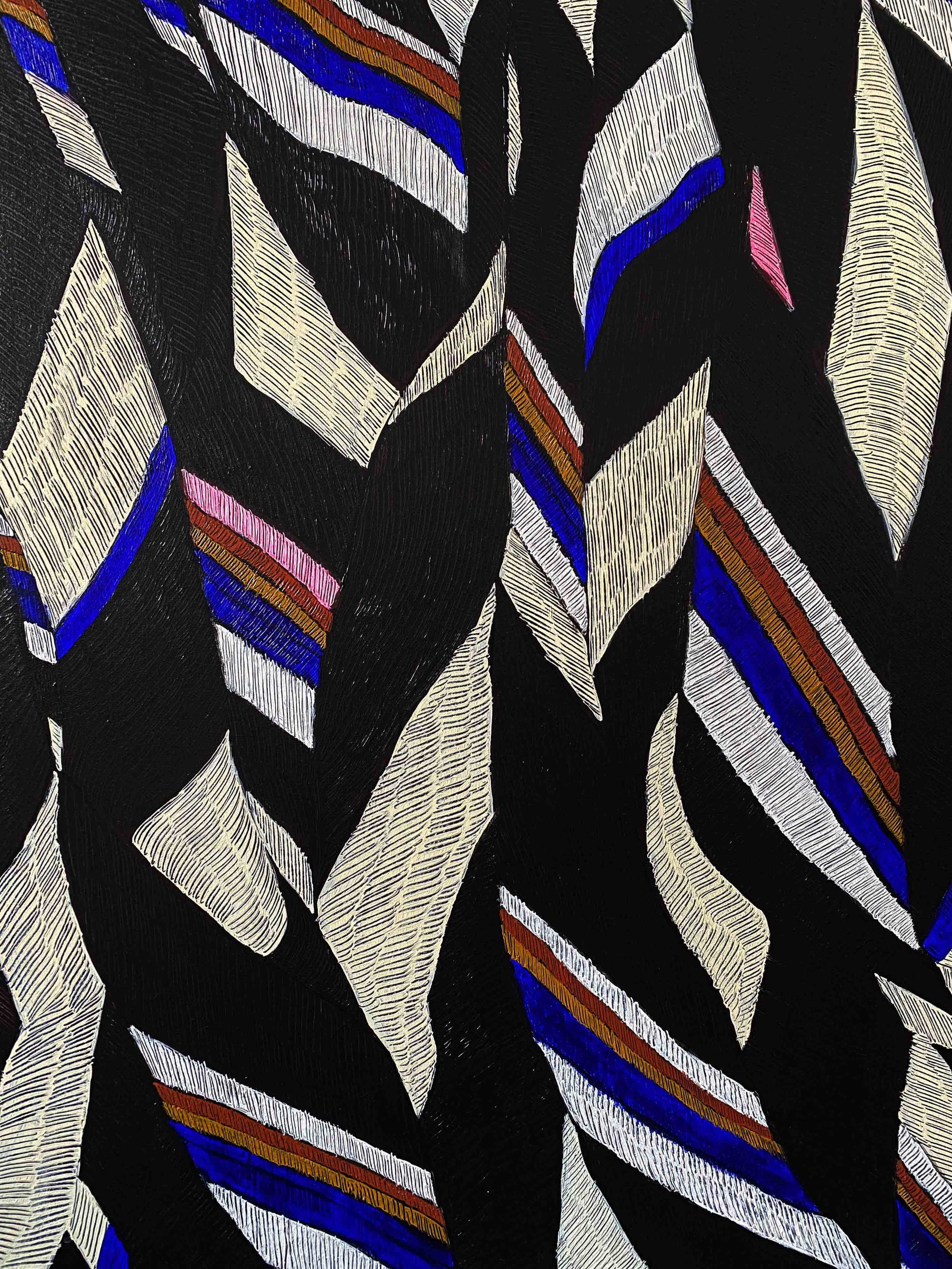
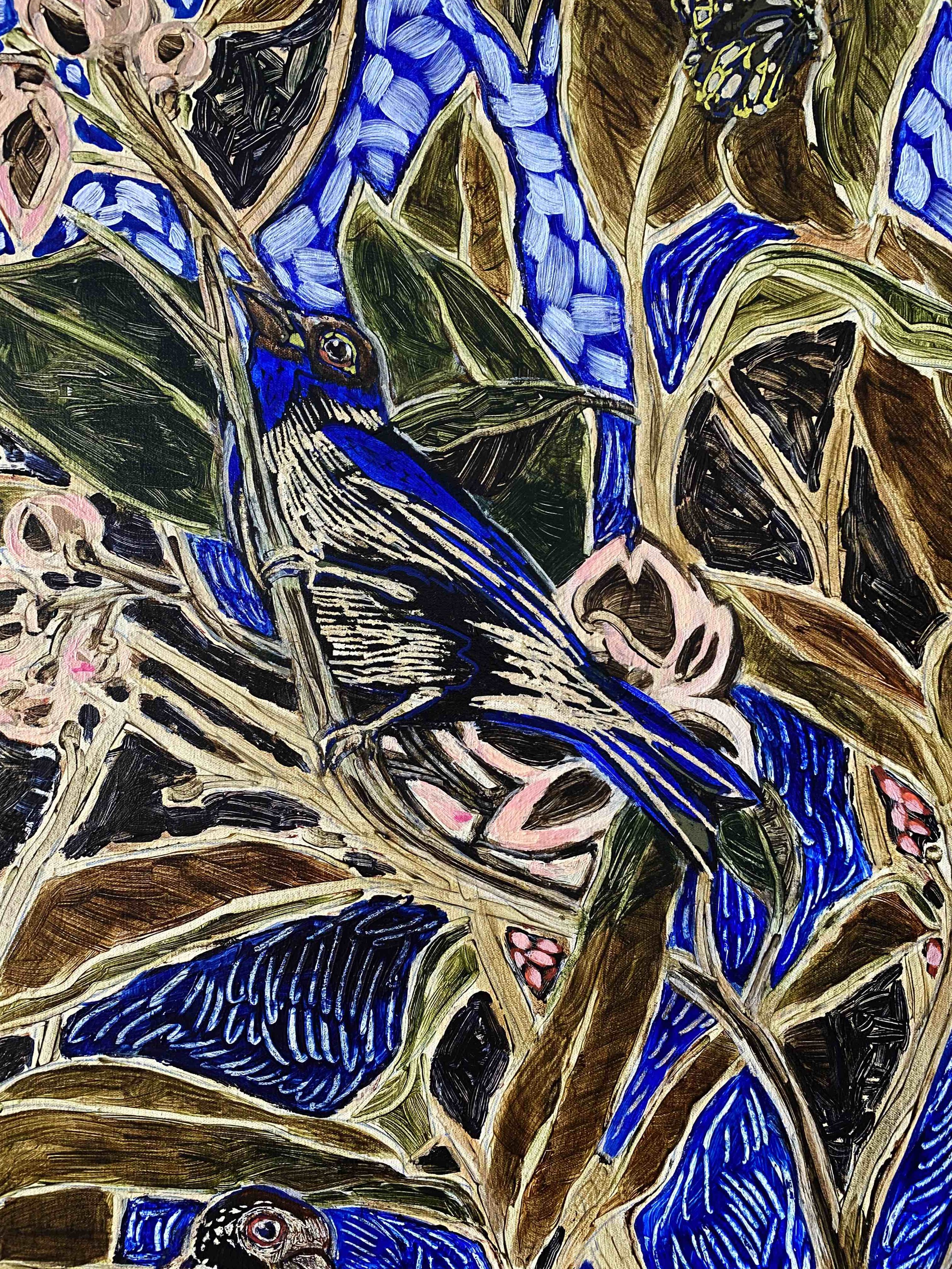
“Last All Saints’ holy-day, even now gone by,
I met a gathering of damozels:
She that came first, as one doth who excels,
Had Love with her, bearing her company:
A flame burned forward through her steadfast eye.
As when in living fire a spirit dwells:
So, gazing with the boldness which prevails
O’er doubt, I knew an angel visibly.
As she passed on, she bowed her mild approof
And salutation to all men of worth,
Lifting the soul to solemn thoughts aloof.
In Heaven itself that lady had her birth,
I think, and is with us for our behoof:
Blessed are they who meet her on the earth.”
MARY WOLLSTONECRAFT - 170 x 190 CM
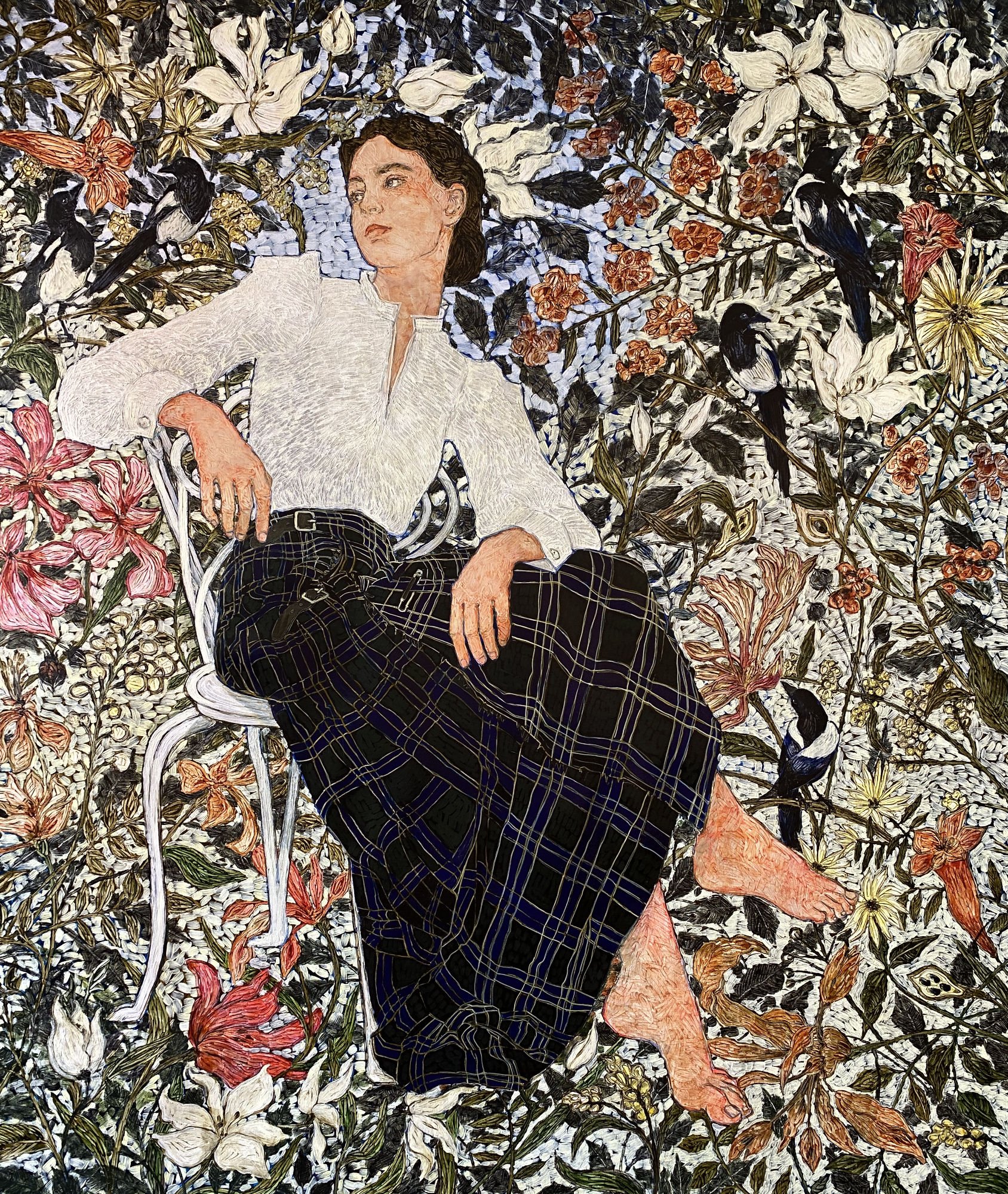

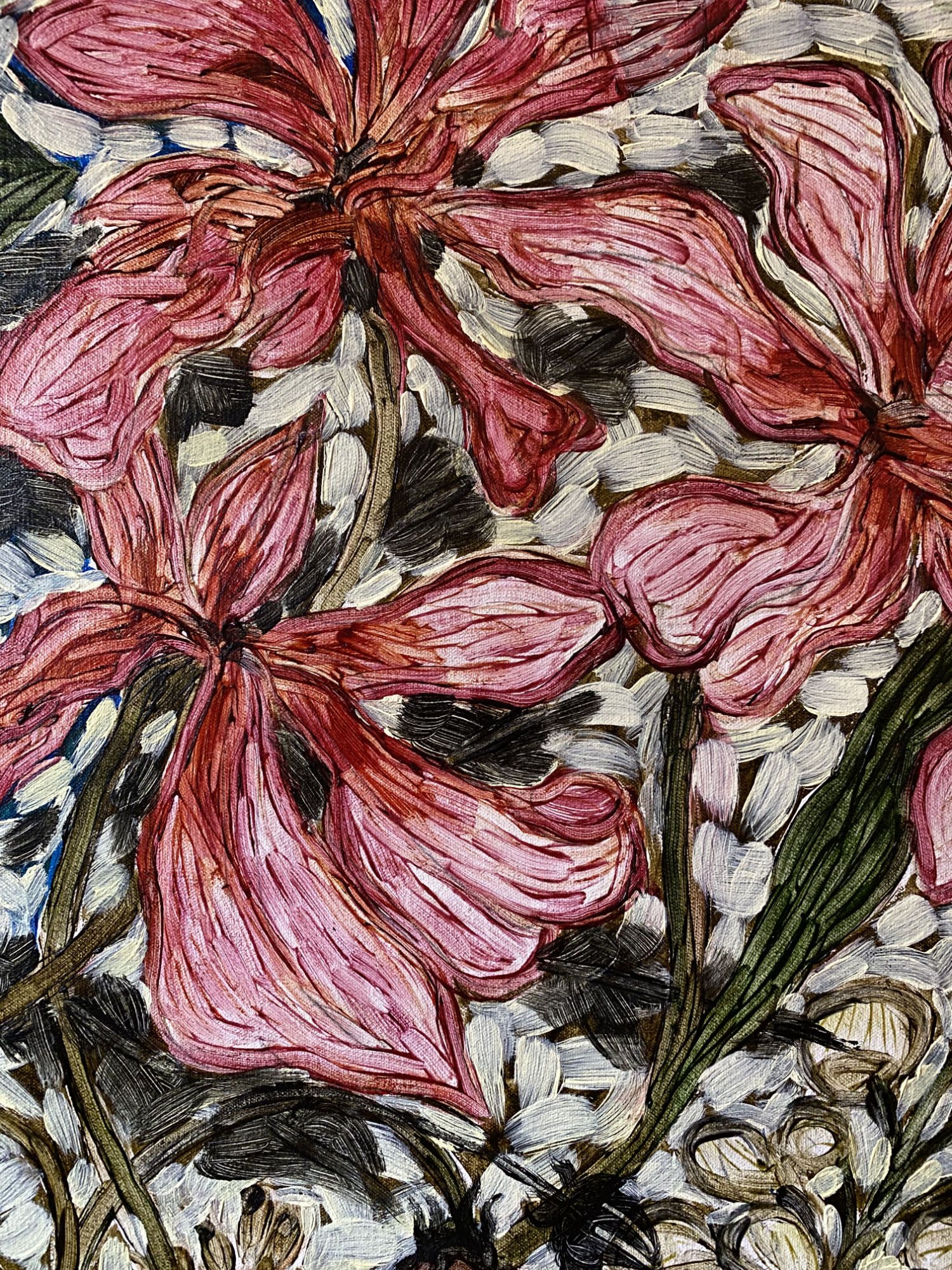

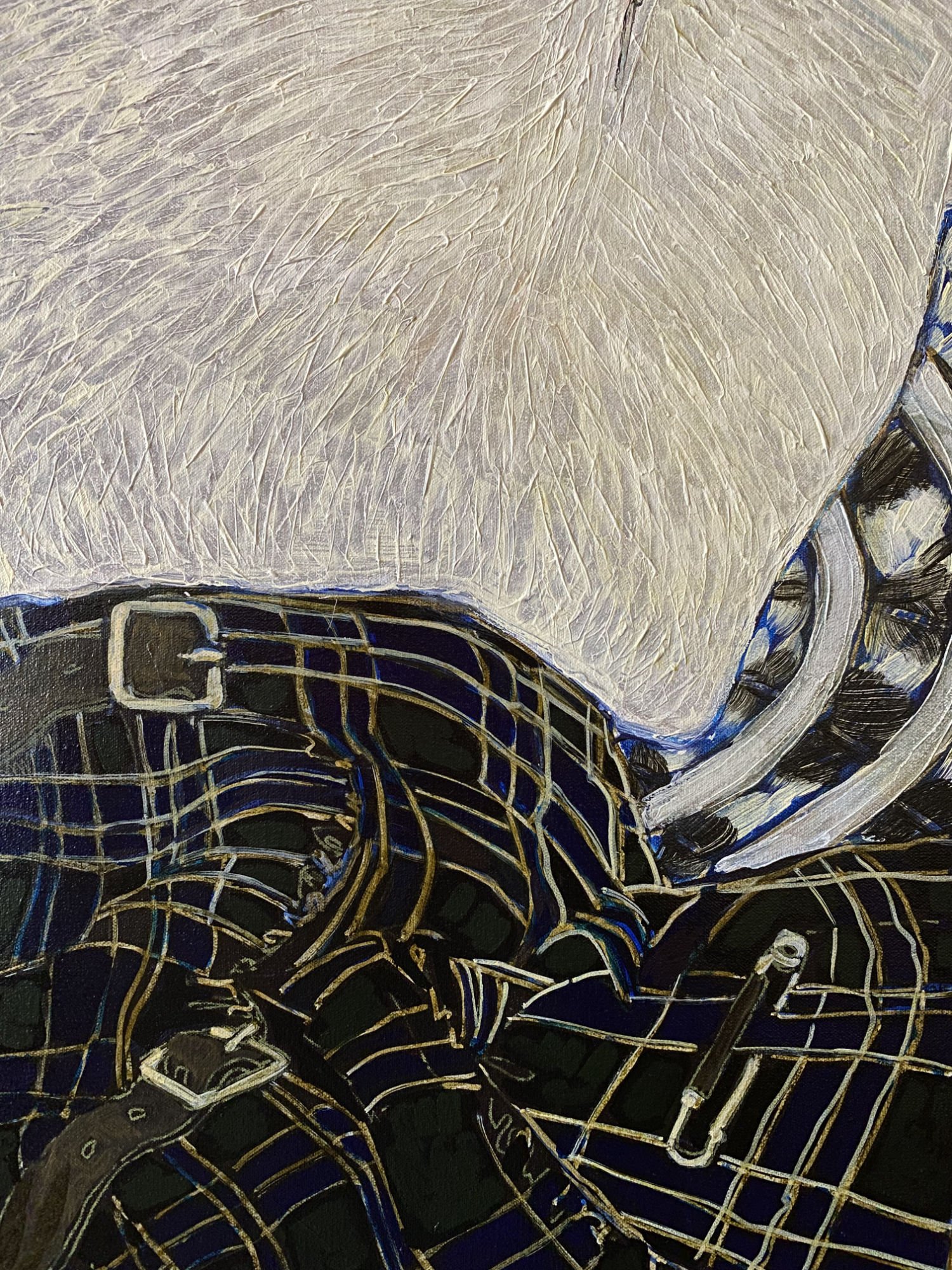

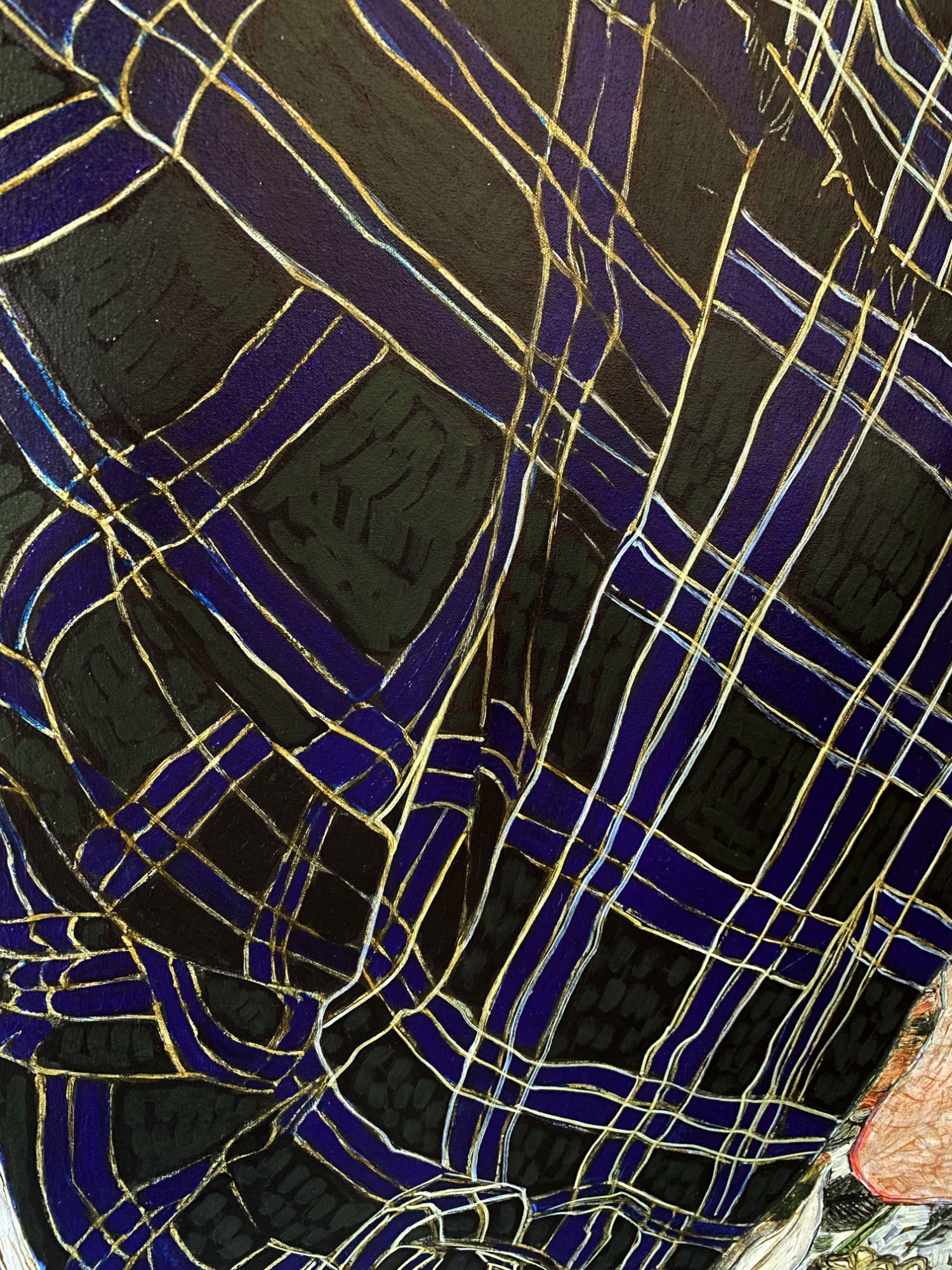
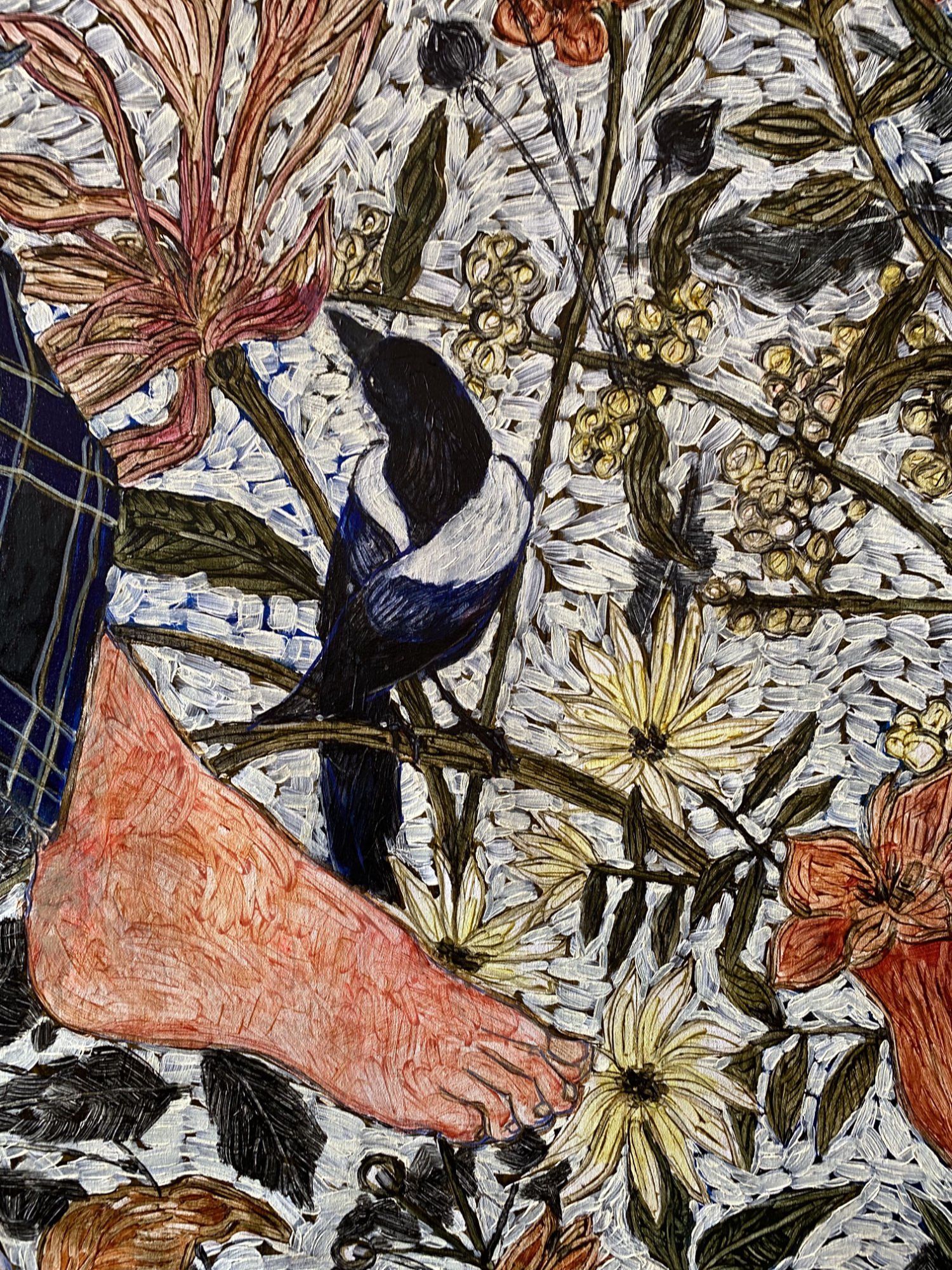
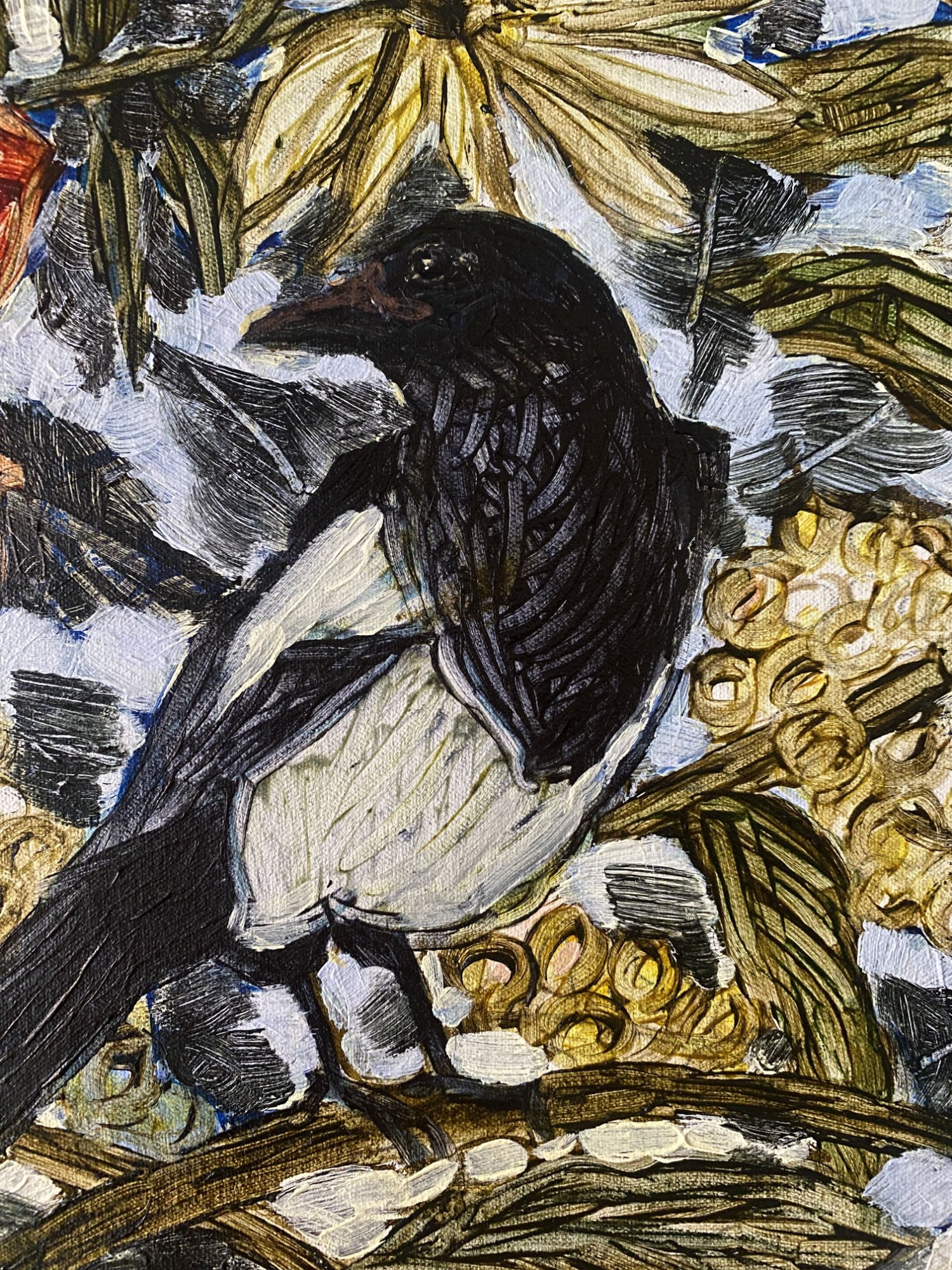
“Everyone who has written about female education and manners, from Rousseau to Dr Gregory, has helped to make women more artificial, weaker characters than they would otherwise have been...
...I address you as a legislator: When men fight for their freedom, fight to be allowed to judge for themselves concerning their own happiness, isn’t it inconsistent and unjust to hold women down? I know that you firmly believe you are acting in the manner most likely to promote women’s happiness; but who made man the exclusive judge of that if woman shares with him the gift of reason?
Tyrants of every kind, from the weak king to the weak father of a family, use this same argument that ‘It is in your own best interests’. They are all eager to crush reason, but they always say that they usurp reason’s throne only to be useful. Isn’t that what you are doing when you force all women, by denying them civil and political rights, to remain walled in by their families and groping in the dark? Surely, sir, you won’t say that a duty can be binding without being founded on reason! Arguments for civil and political rights can be drawn from reason; and with that splendid support, the more understanding women acquire the more they will be attached to their duty, understanding it. Unless they understand it—unless their morals are based on the same immutable principles as those of man—no authority can make them act virtuously. They may be convenient slaves, but slavery will have its constant effect, degrading the master and the abject dependent...”
CHRISTINA ROSSETTI - 185 X 190 CM
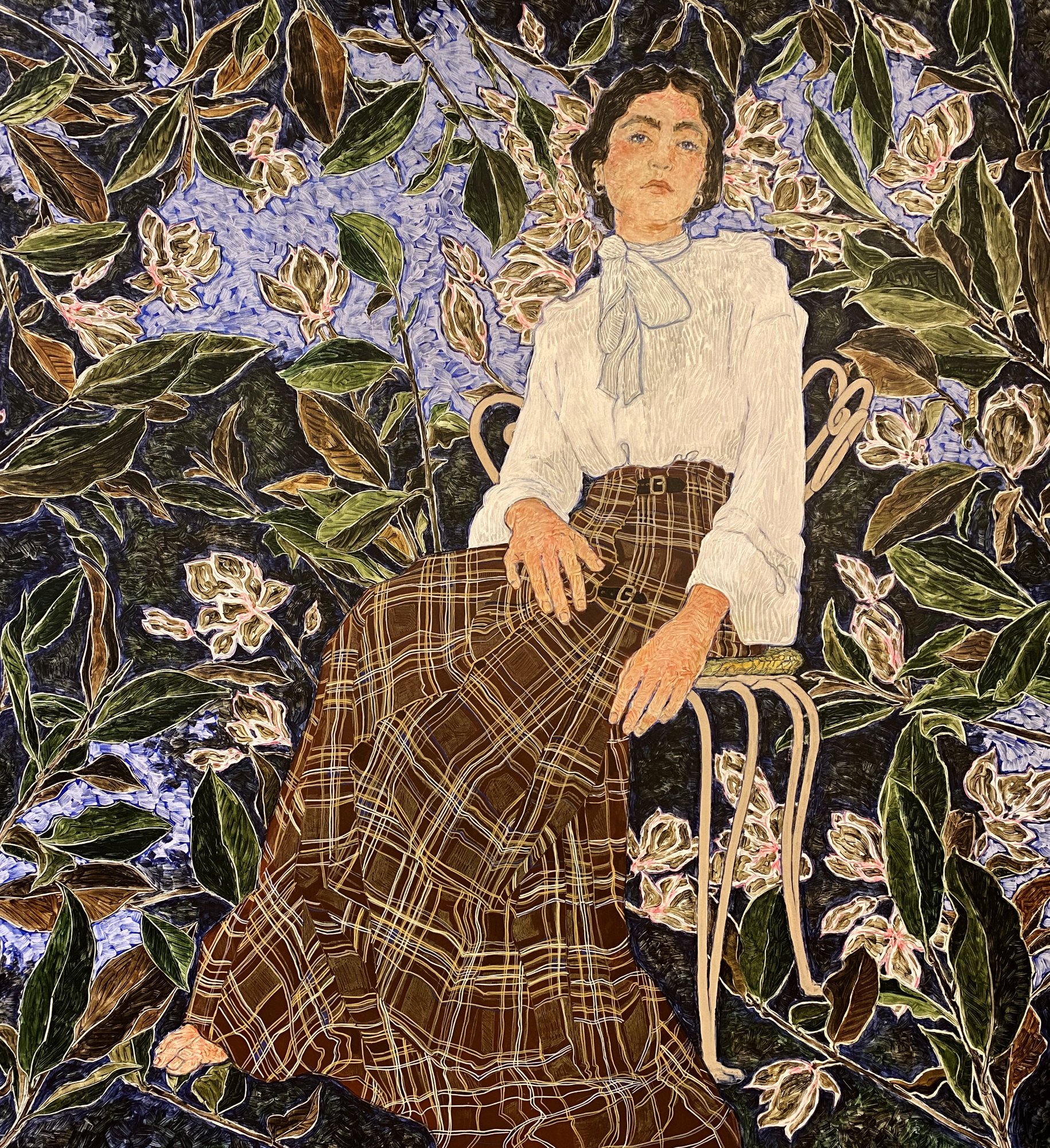

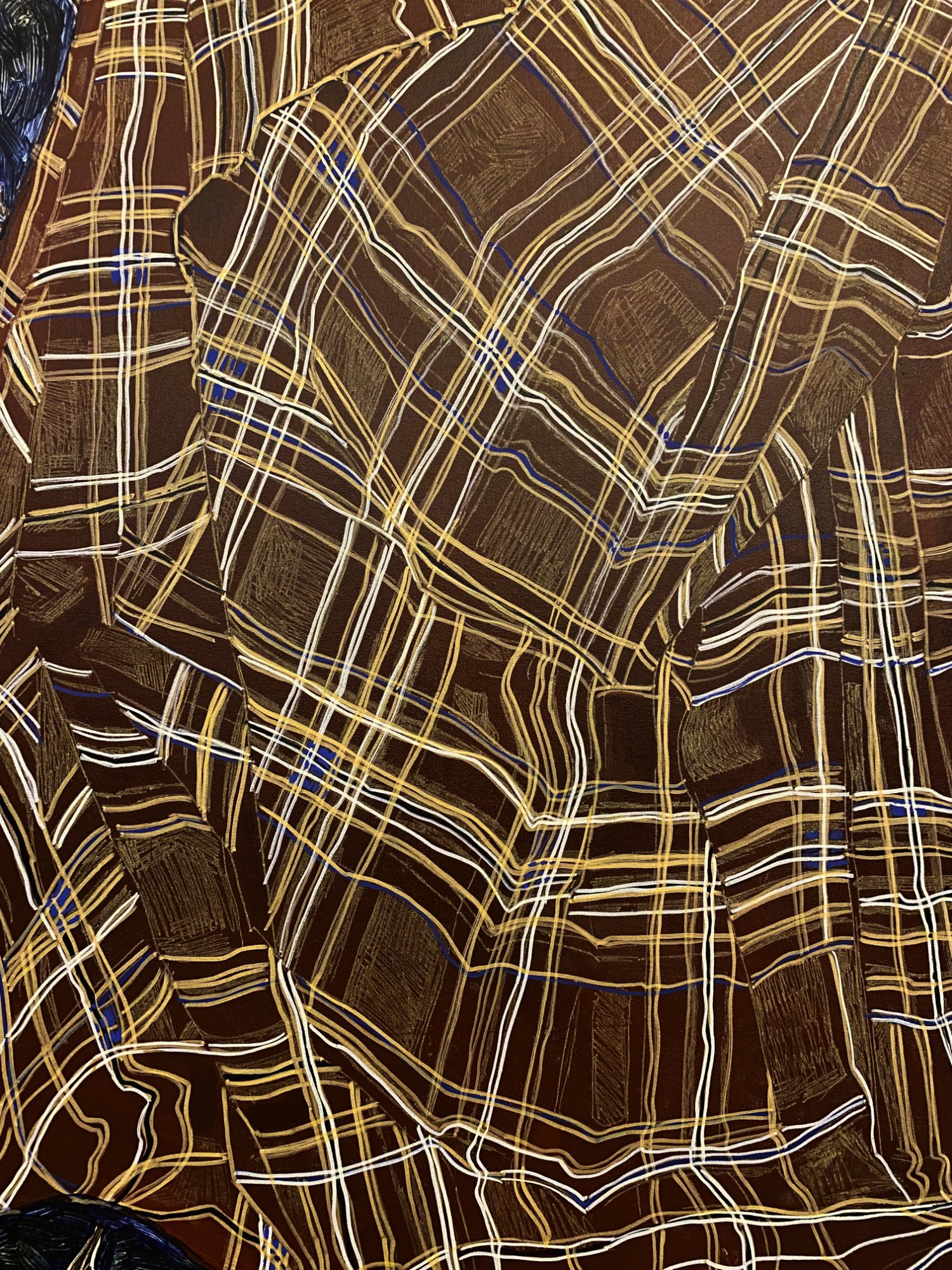
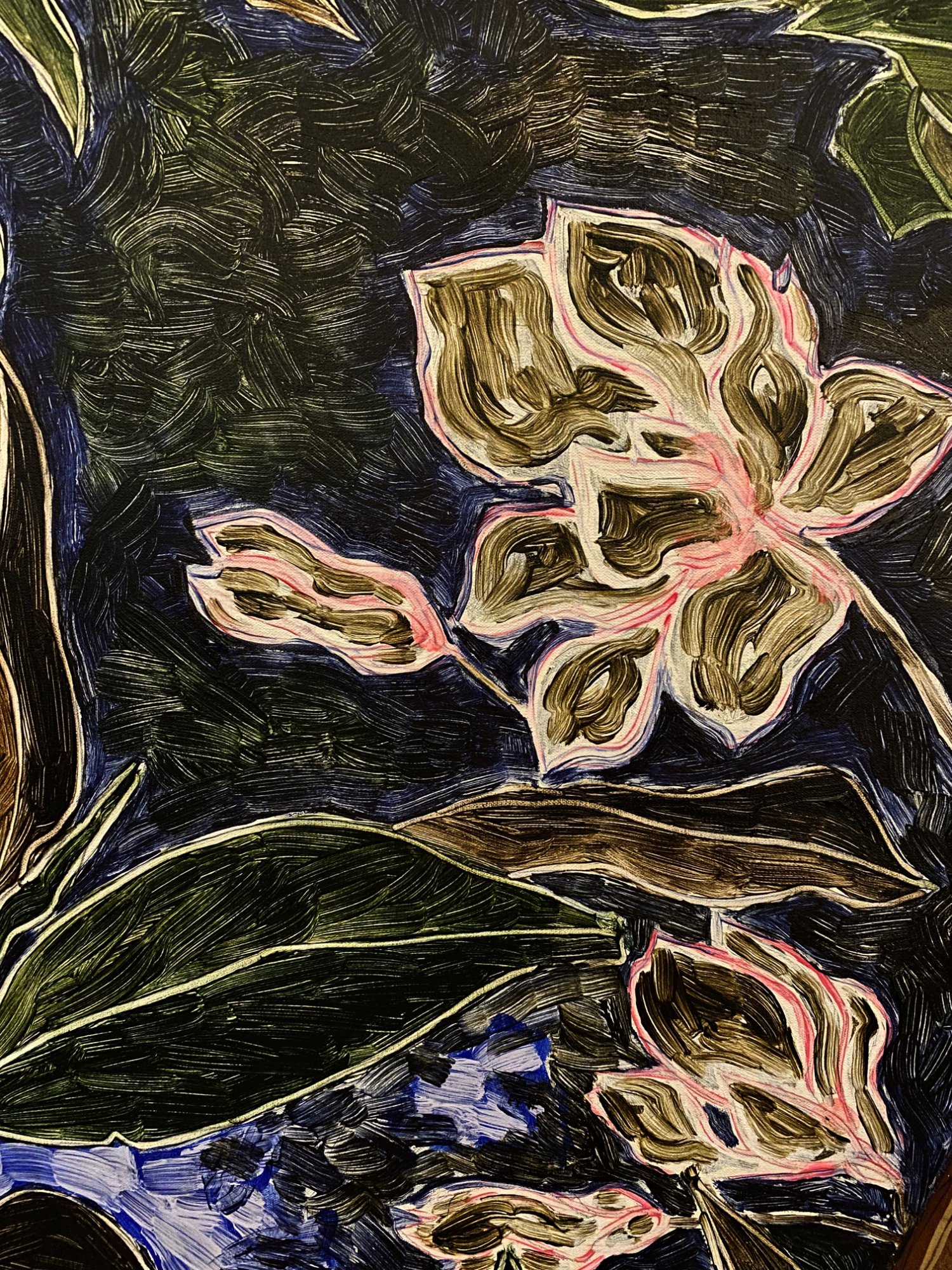

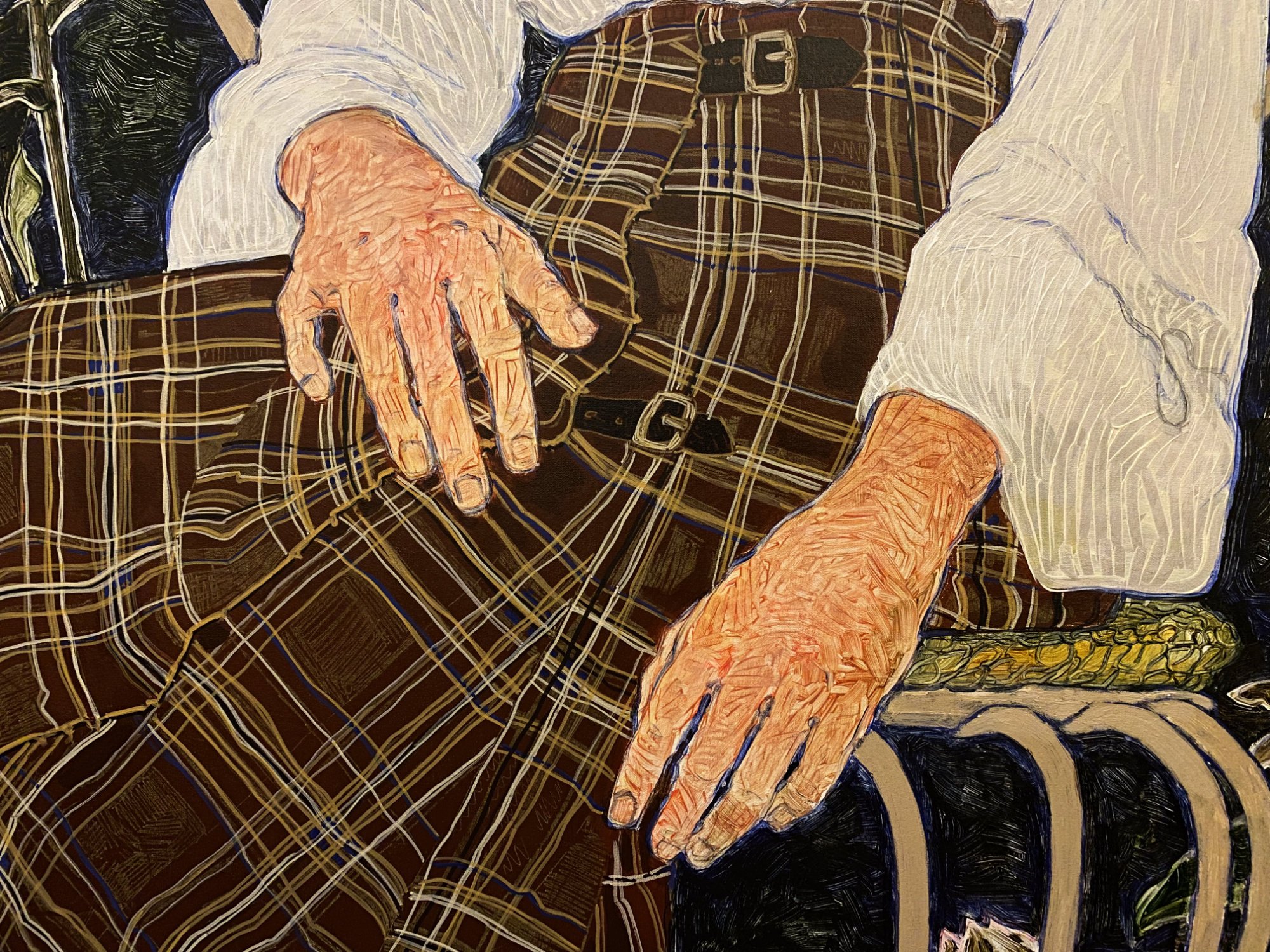
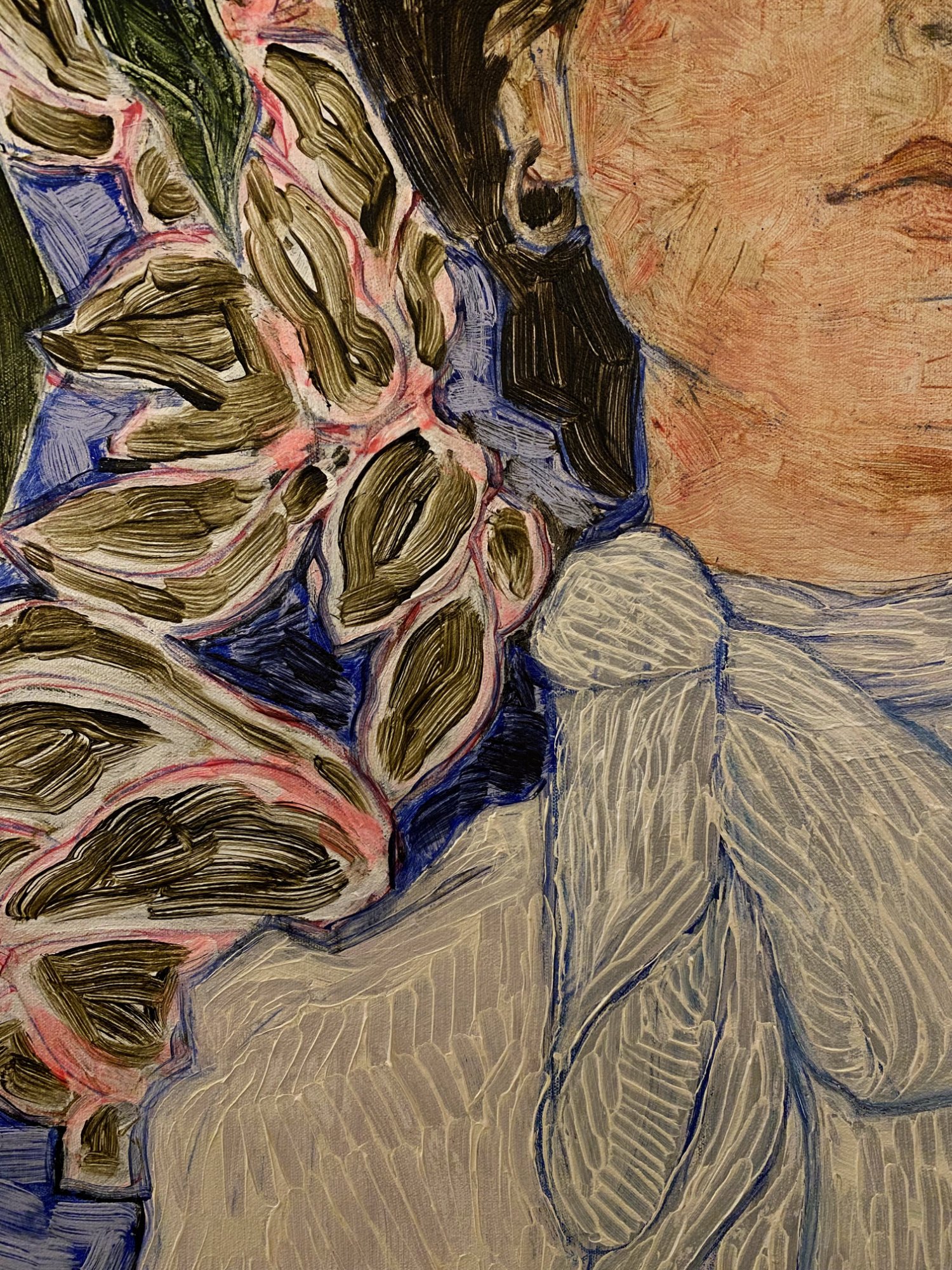
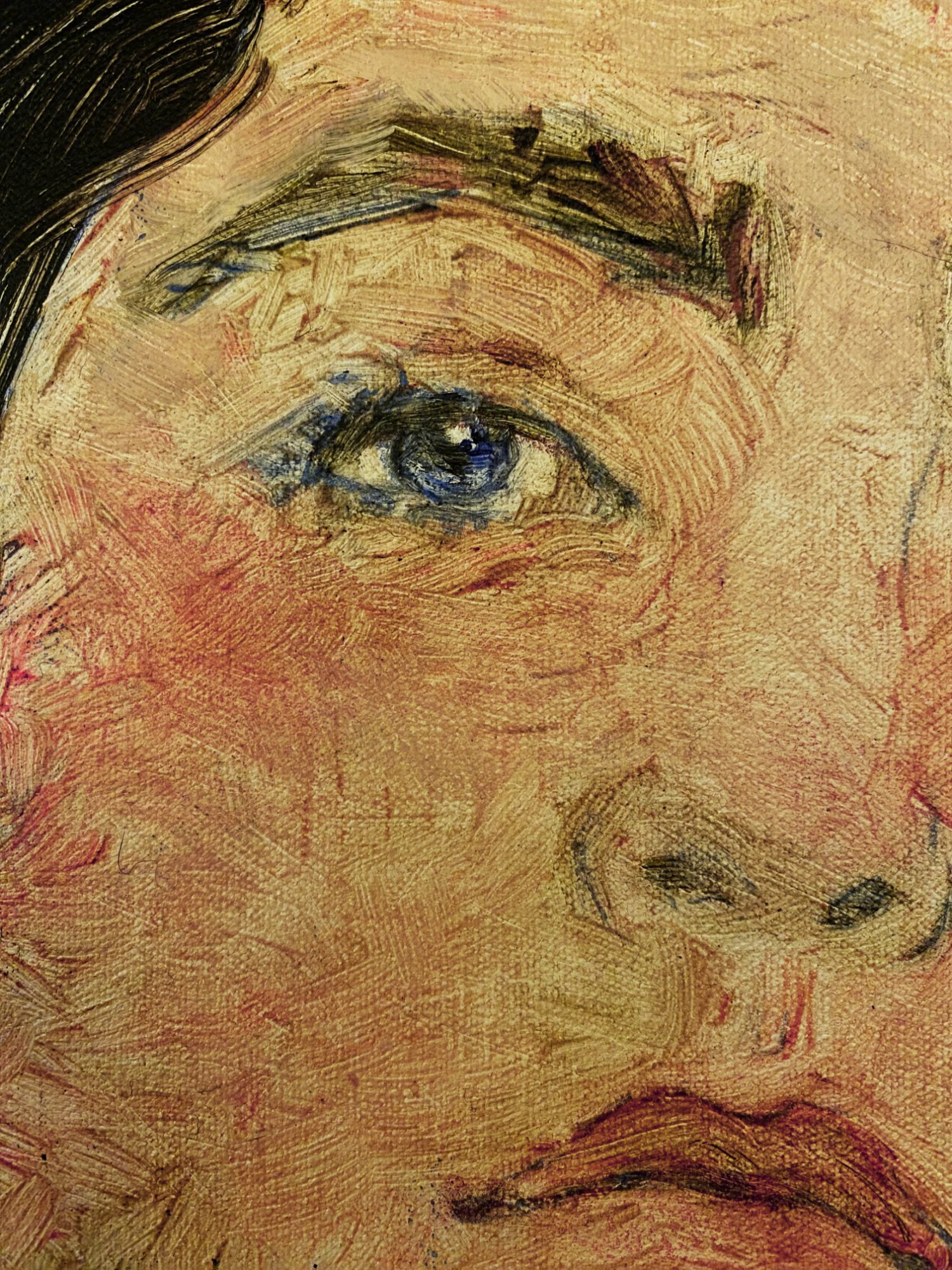
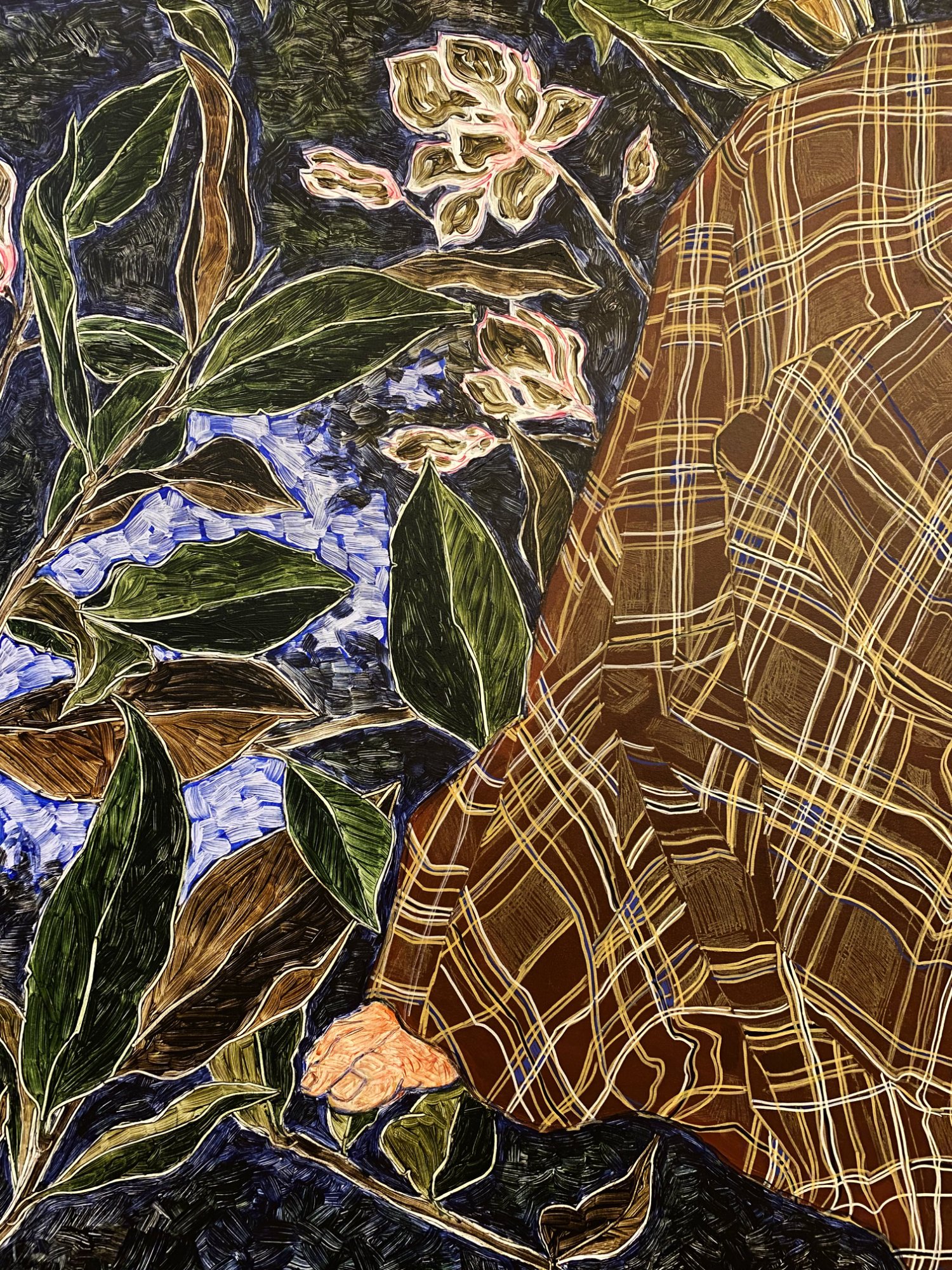
“Spring
Frost-locked all the winter,
Seeds, and roots, and stones of fruits,
What shall make their sap ascend
That they may put forth shoots?
Tips of tender green,
Leaf, or blade, or sheath;
Telling of the hidden life
That breaks forth underneath,
Life nursed in its grave by Death.
Blows the thaw-wind pleasantly,
Drips the soaking rain,
By fits looks down the waking sun:
Young grass springs on the plain;
Young leaves clothe early hedgerow trees;
Seeds, and roots, and stones of fruits,
Swollen with sap, put forth their shoots;
Curled-headed ferns sprout in the lane;
Birds sing and pair again.
There is no time like Spring,
When life’s alive in everything,
Before new nestlings sing,
Before cleft swallows speed their journey back
Along the trackless track,—
God guides their wing,
He spreads their table that they nothing lack,—
Before the daisy grows a common flower,
Before the sun has power
To scorch the world up in his noontide hour.
There is no time like Spring,
Like Spring that passes by;
There is no life like Spring-life born to die,—
Piercing the sod,
Clothing the uncouth clod,
Hatched in the nest,
Fledged on the windy bough,
Strong on the wing:
There is no time like Spring that passes by,
Now newly born, and now
Hastening to die.”
EMILY DICKINSON - 105 x 194 cm



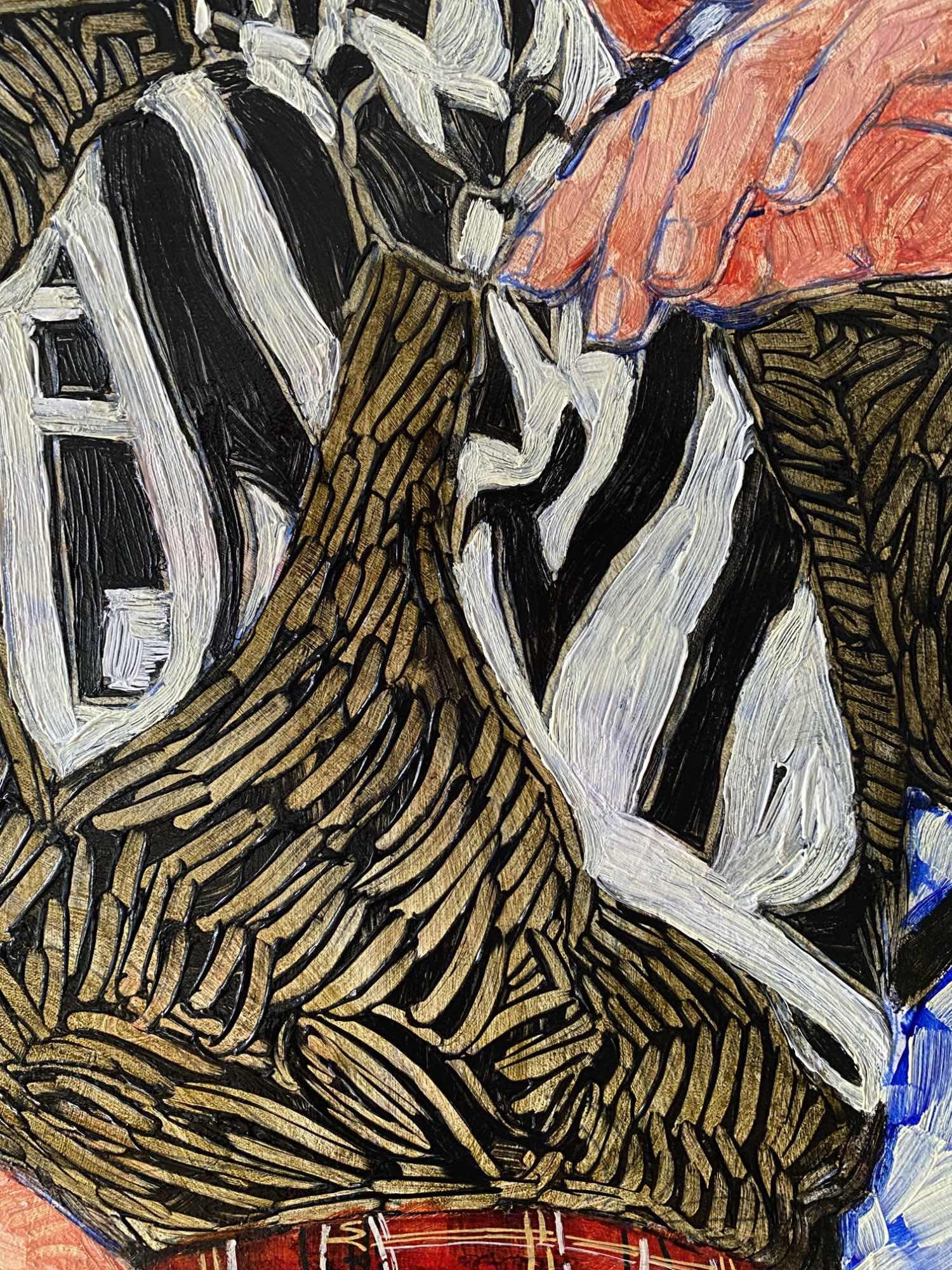
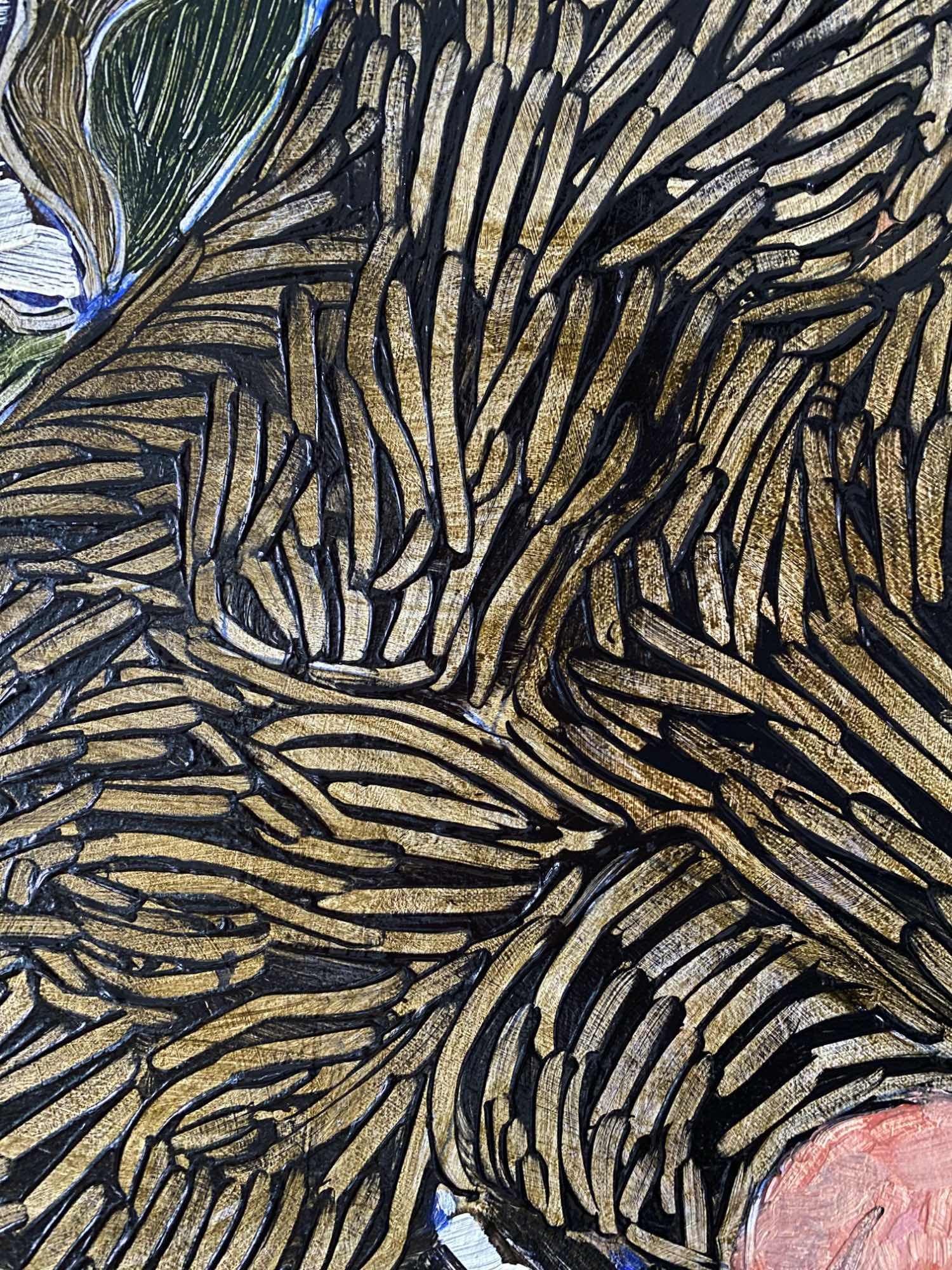
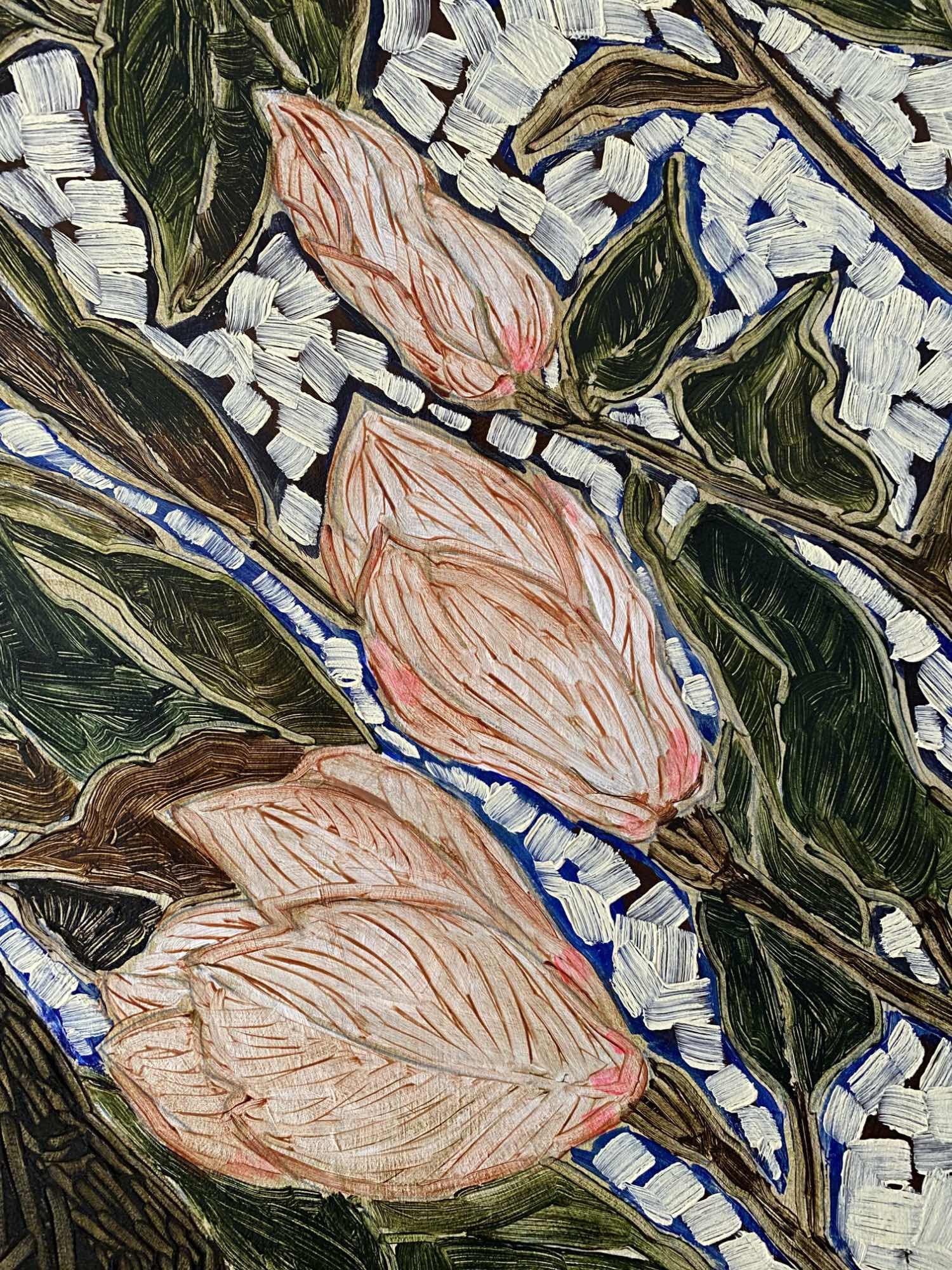
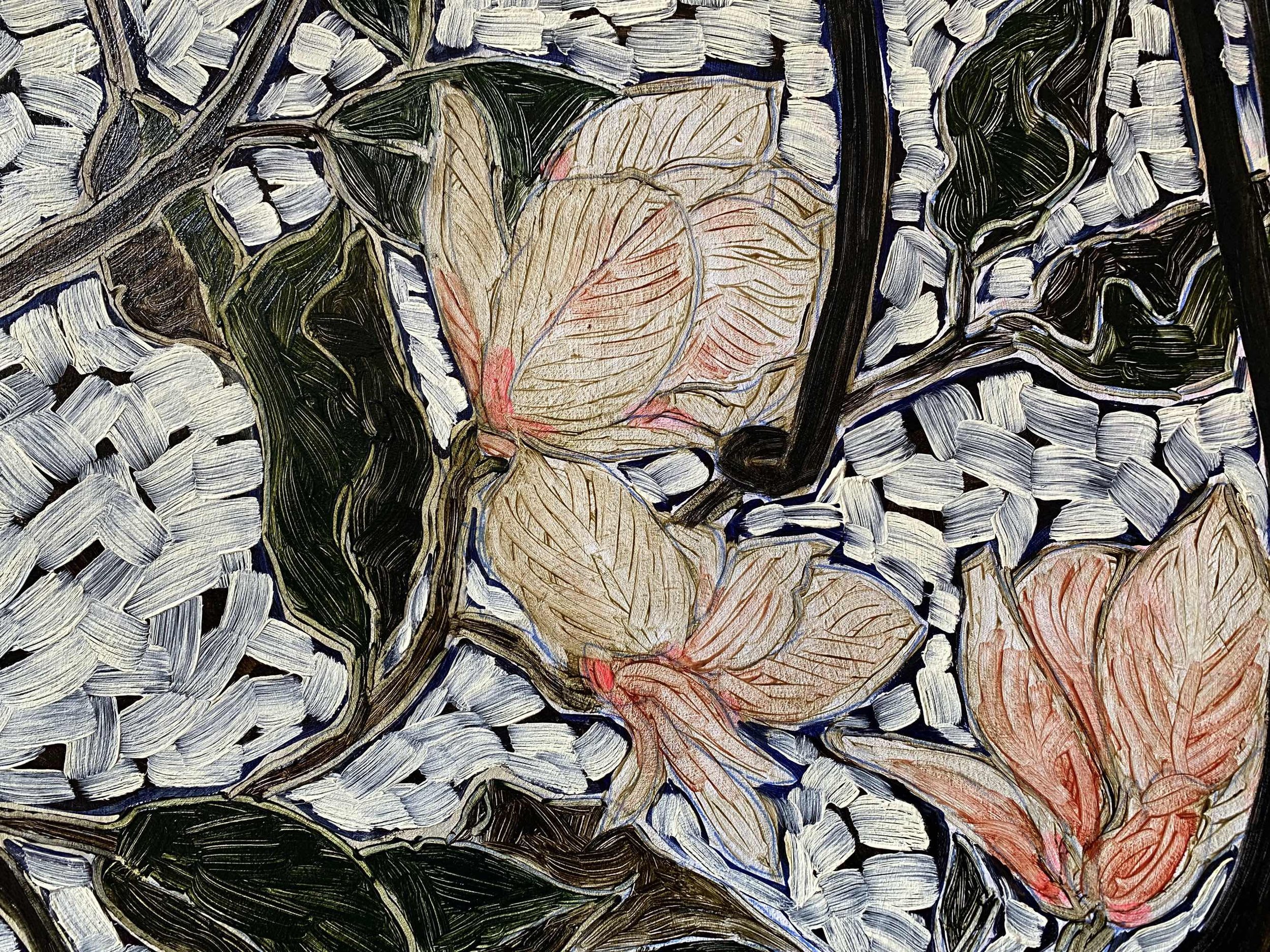
“The Brain - is wider than the Sky
For - put them side by side -
The one the other will contain
With ease—and you—beside—
The Brain is deeper than the sea—
For—hold them—Blue to Blue—
The one the other will absorb—
As sponges—Buckets—do—
The Brain is just the weight of God—
For—Heft them—Pound for Pound—
And they will differ—if they do—
As Syllable from Sound—”
ORLANDO - 194 x 225 cm



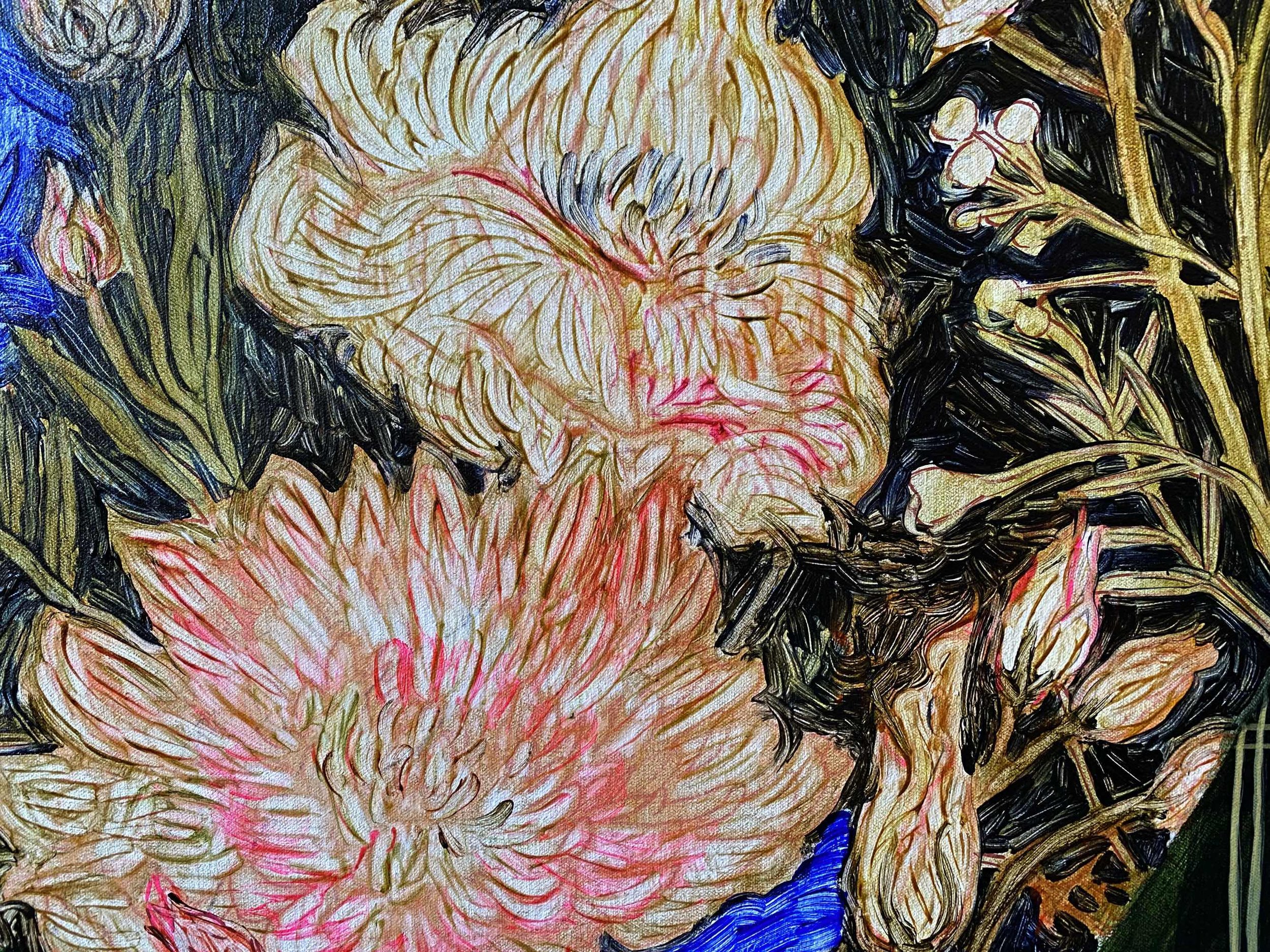
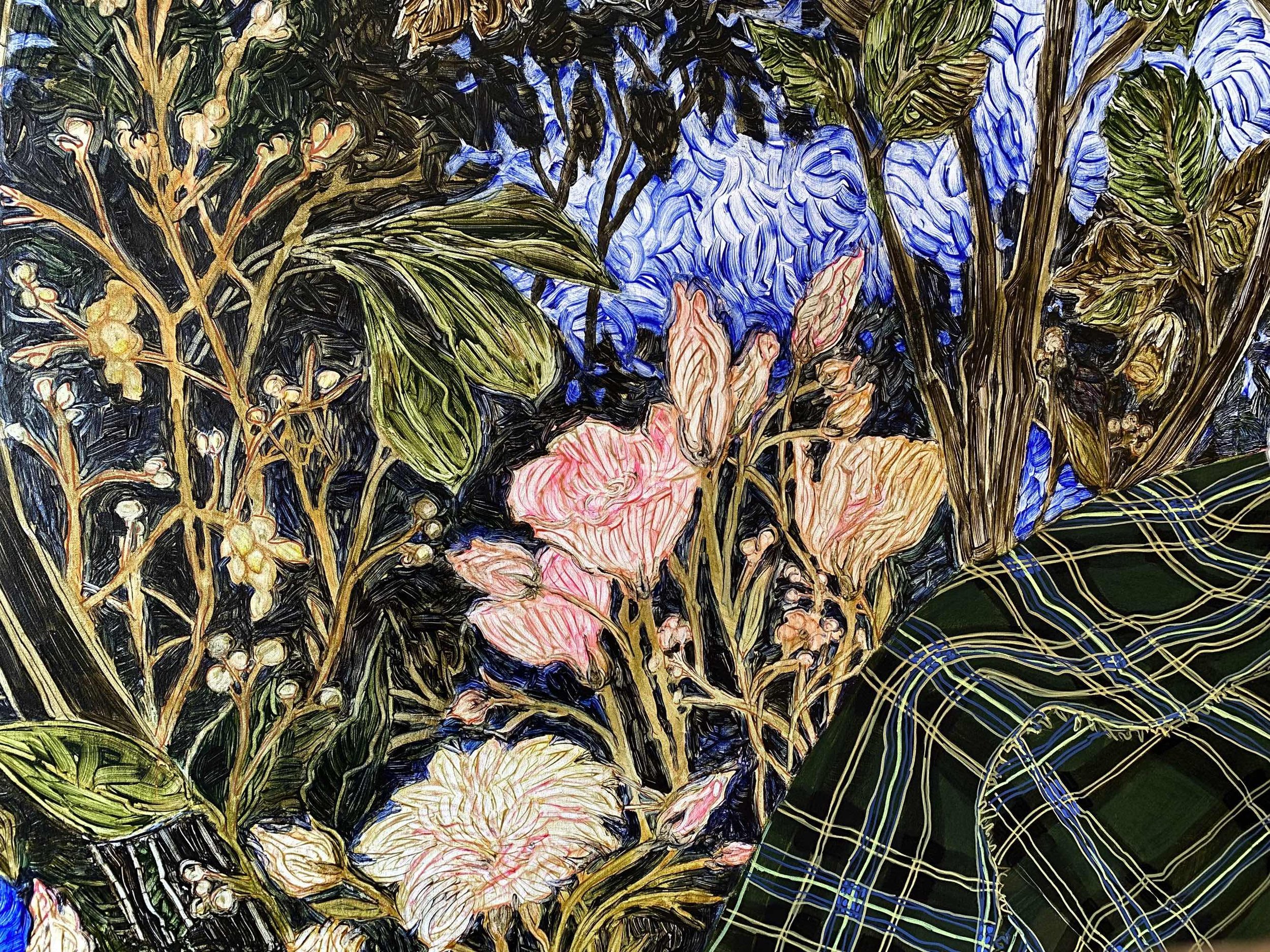
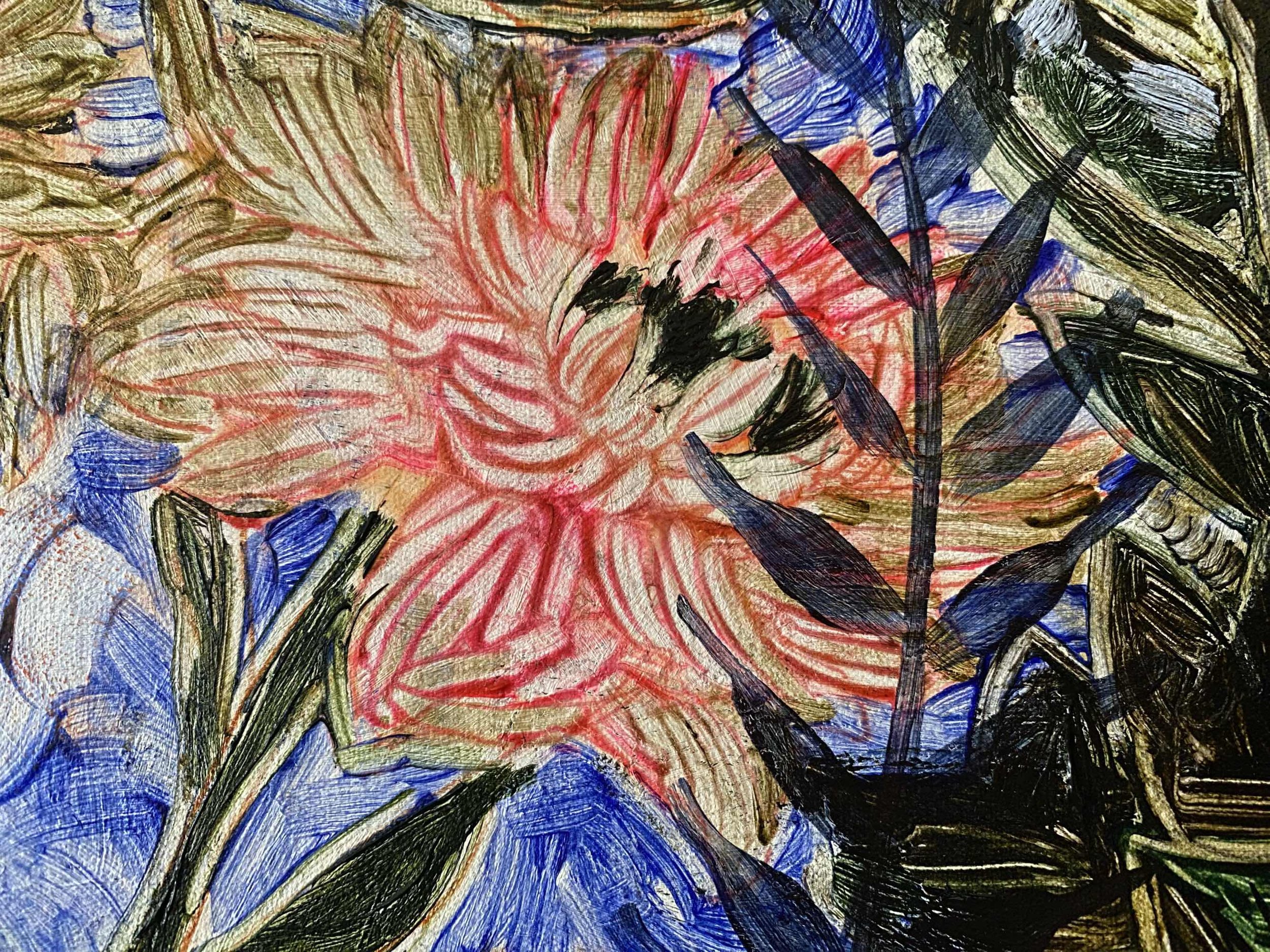
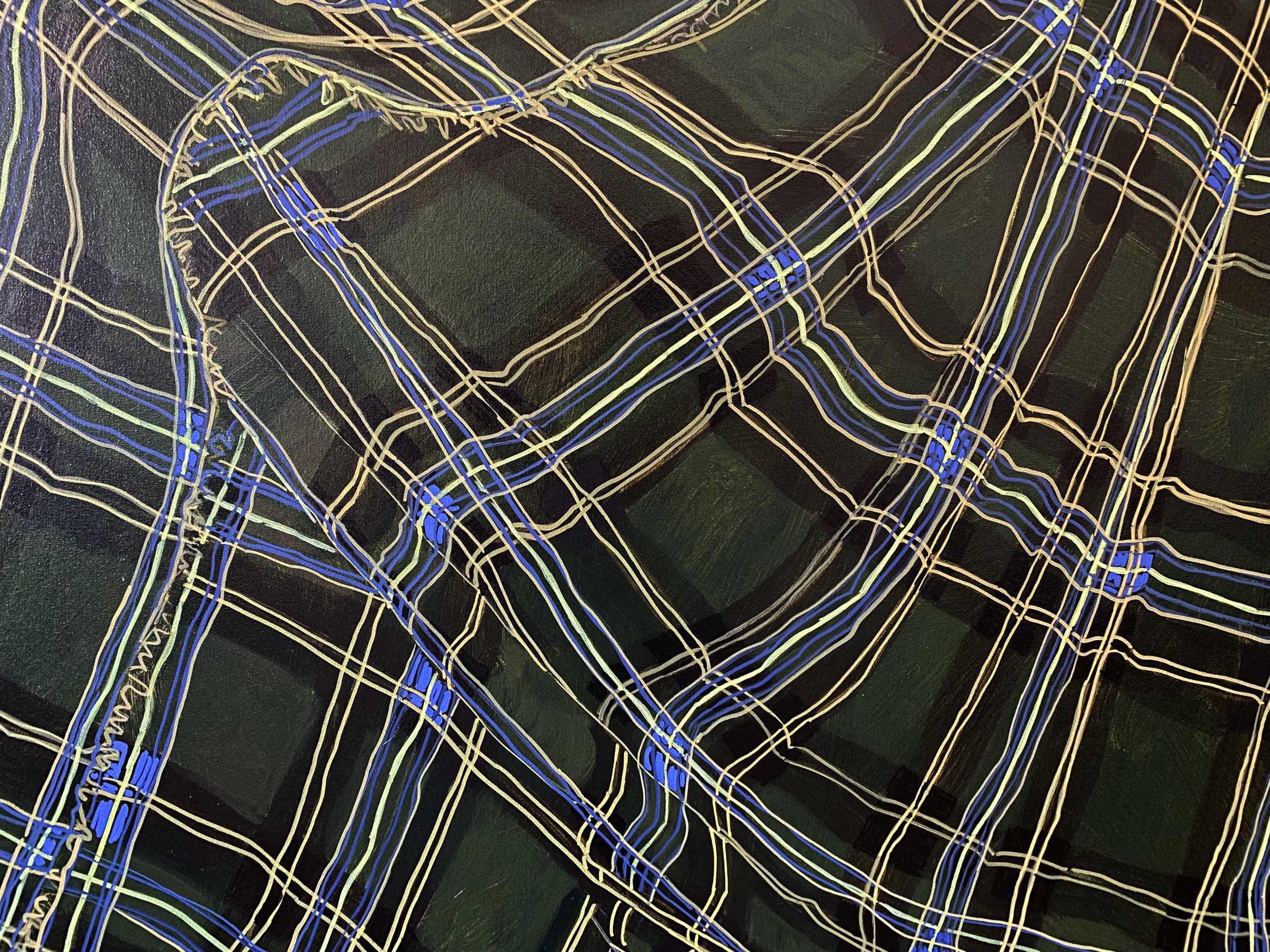
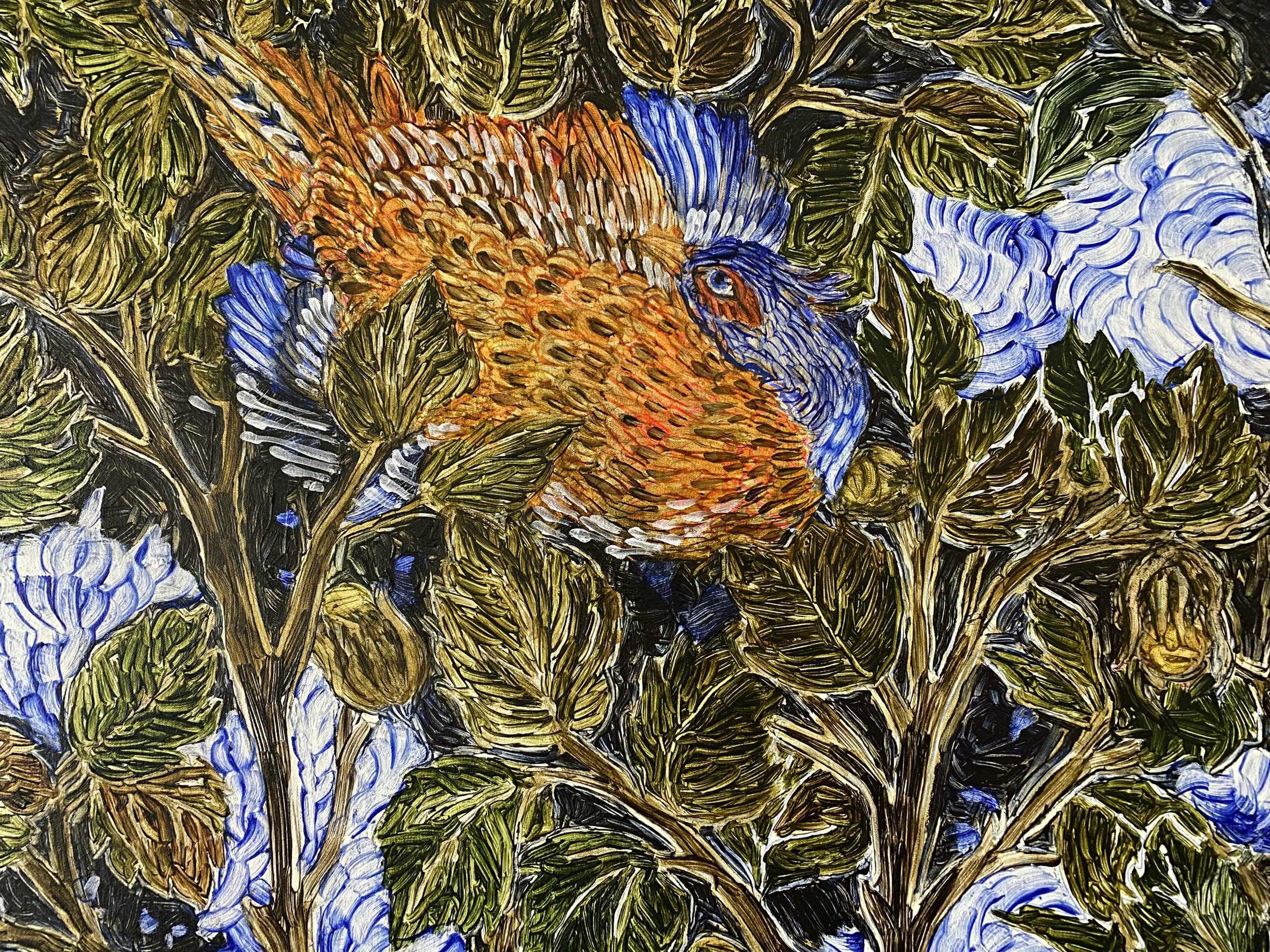
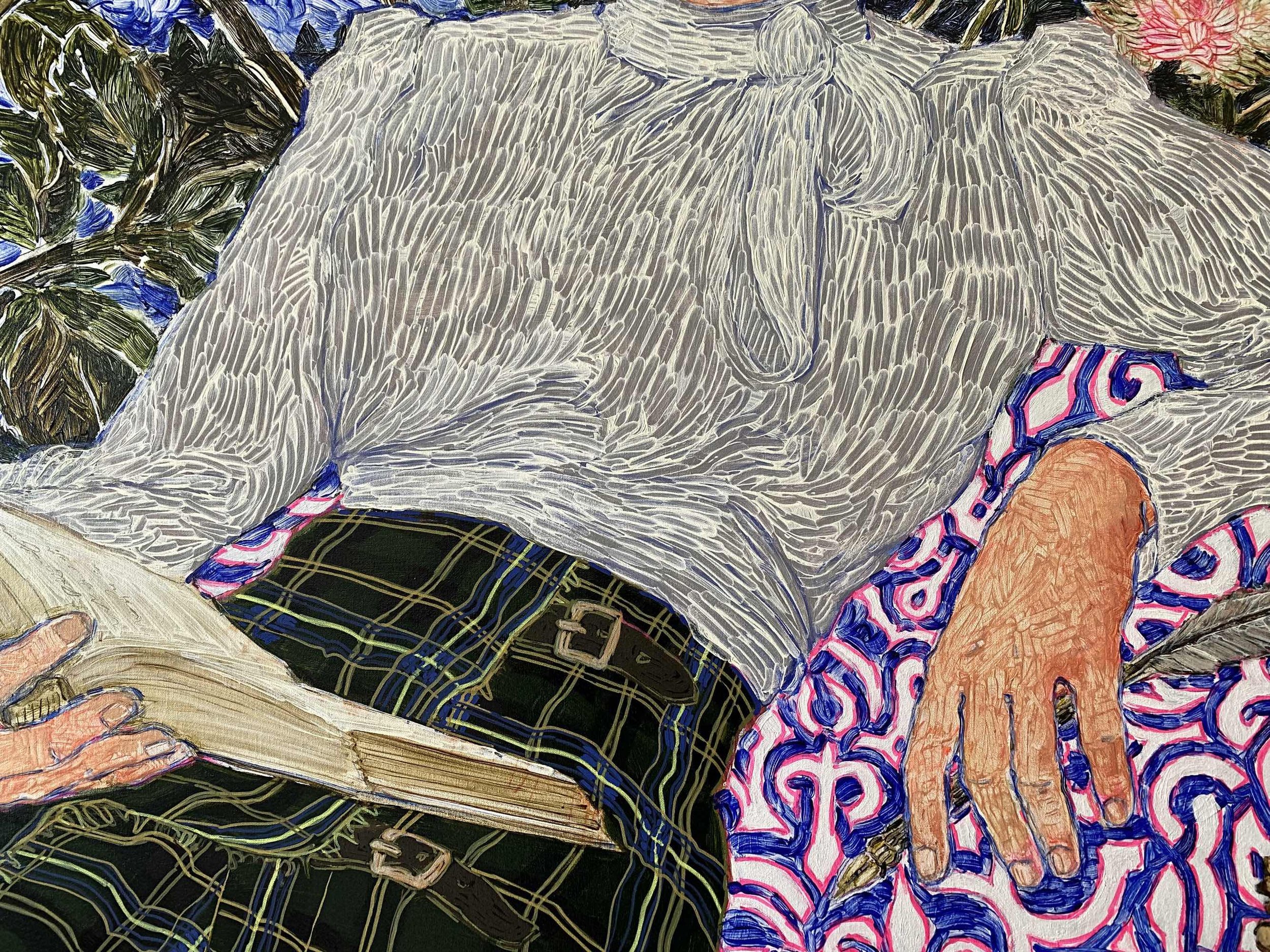
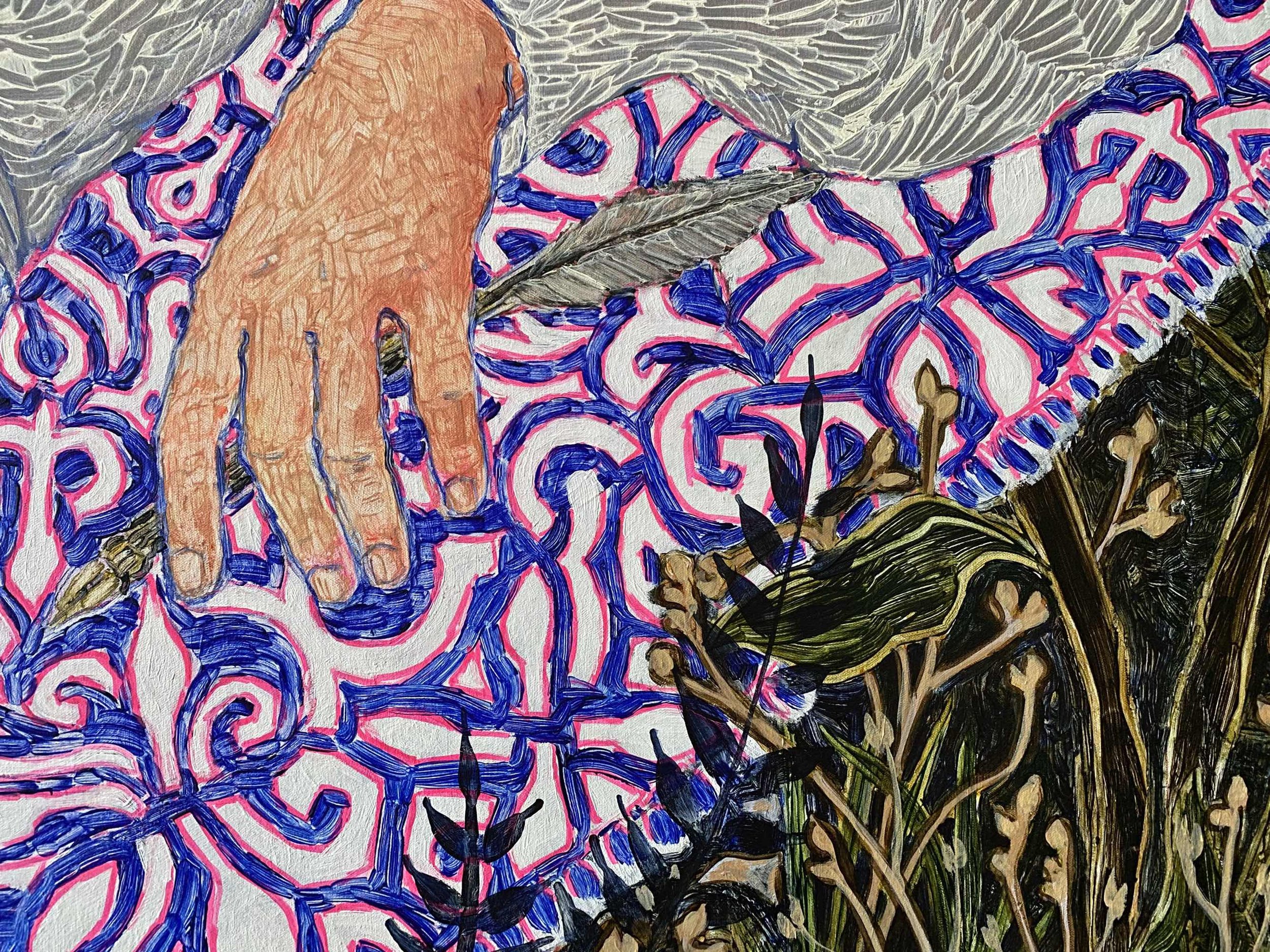
“The beautiful, glittering name fell out of the sky like a steel-blue feather. She watched it fall, turning and twisting like a slow-falling arrow that cleaves the deep air beautifully. He was coming, as he always came, in moments of dead calm; when the wave rippled and the spotted leaves fell slowly over her foot in the autumn woods; when the leopard was still; the moon was on the waters, and nothing moved in between sky and sea. Then he came.
All was still now. It was near midnight. The moon rose slowly over the weald. Its light raised a phantom castle upon earth. There stood the great house with all its windows robed in silver. Of wall or substance there was none. All was phantom. All was still. All was lit as for the coming of a dead Queen. Gazing below her, Orlando saw dark plumes tossing in the courtyard, and torches flickering and shadows kneeling. A Queen once more stepped from her chariot .
’The house is at your service, Ma’am,’ she cried, curtseying deeply.”
LADY GEORGIANA BURNE-JONES - 170 x 175 CM


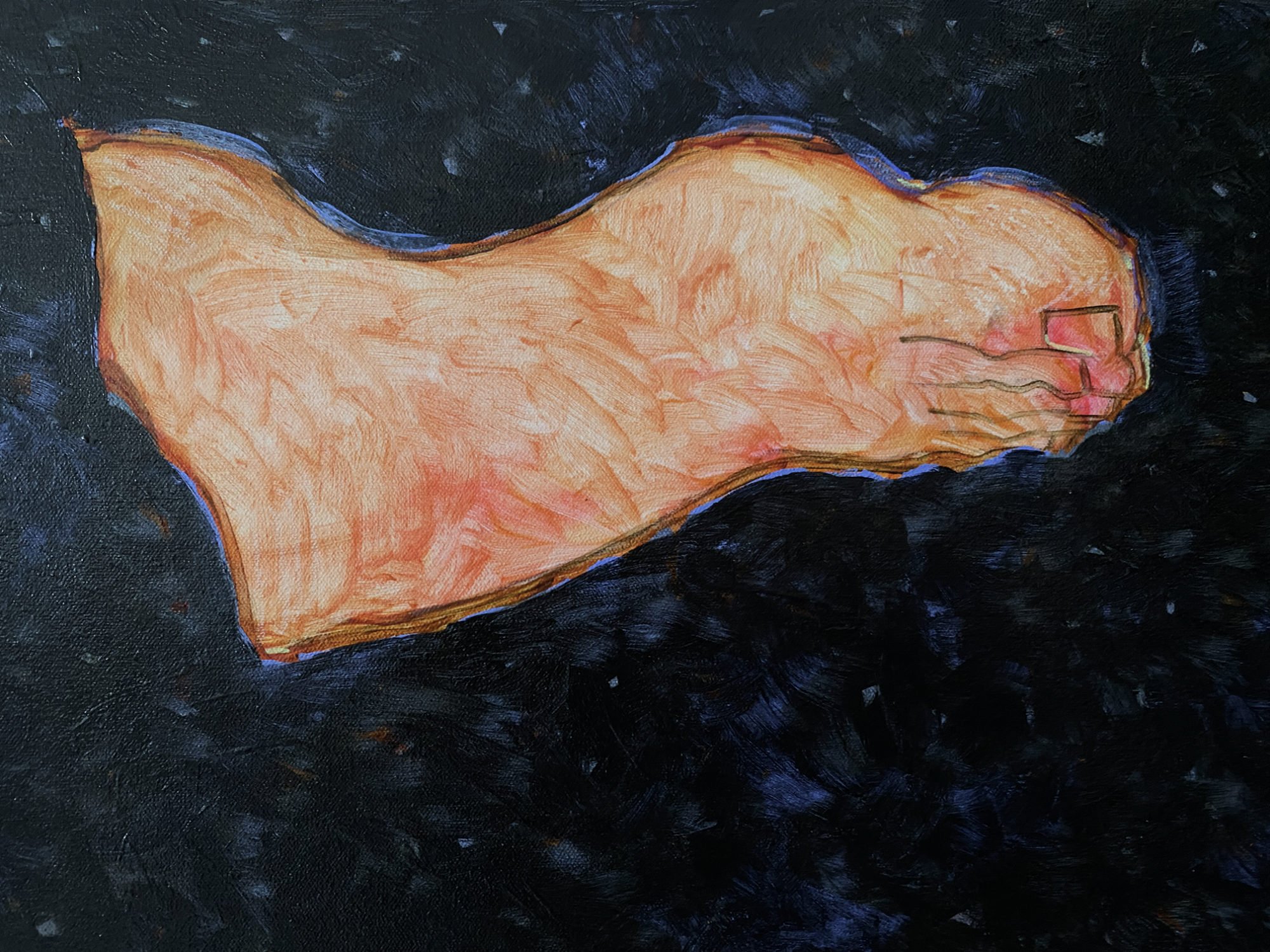
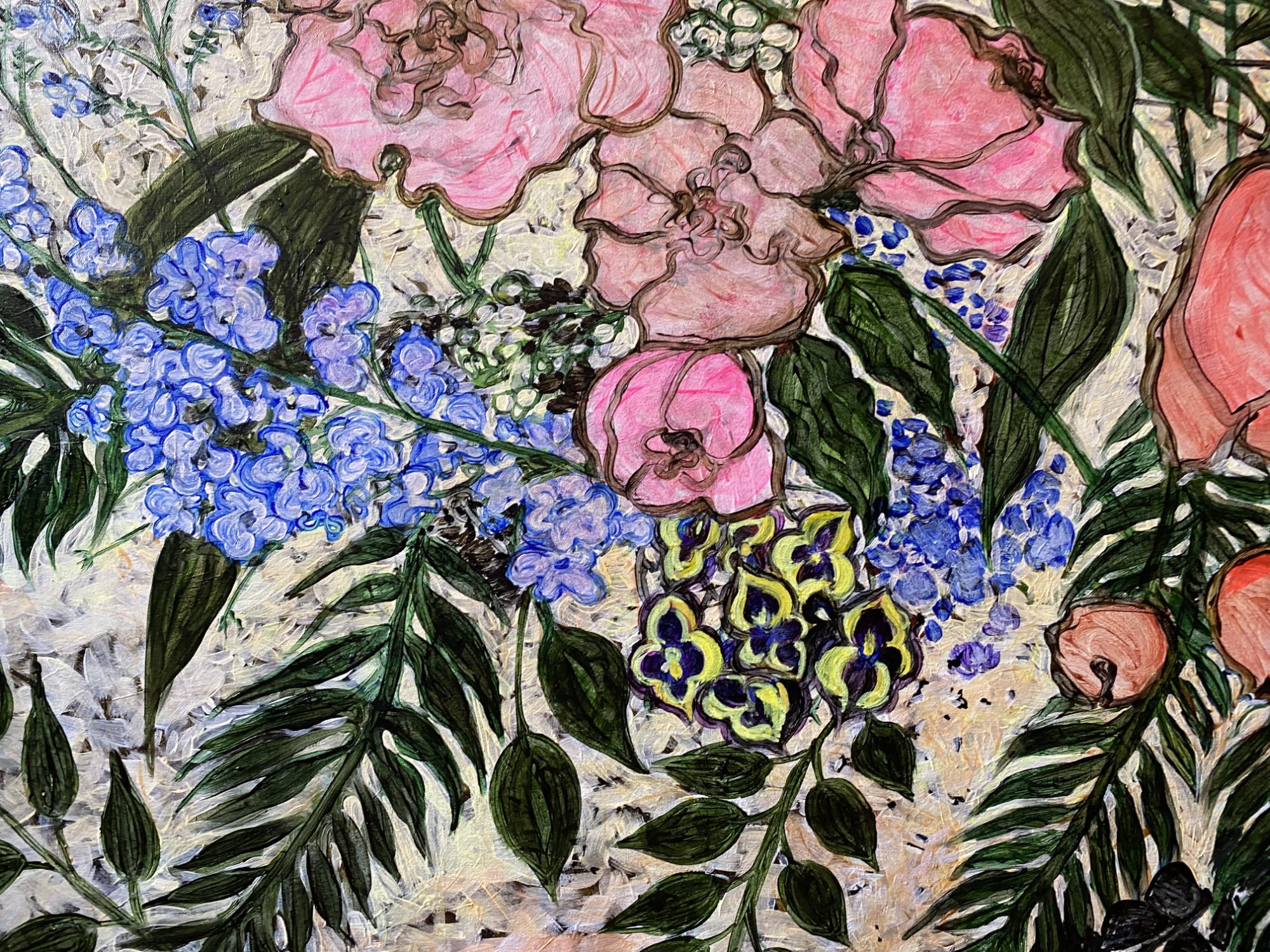
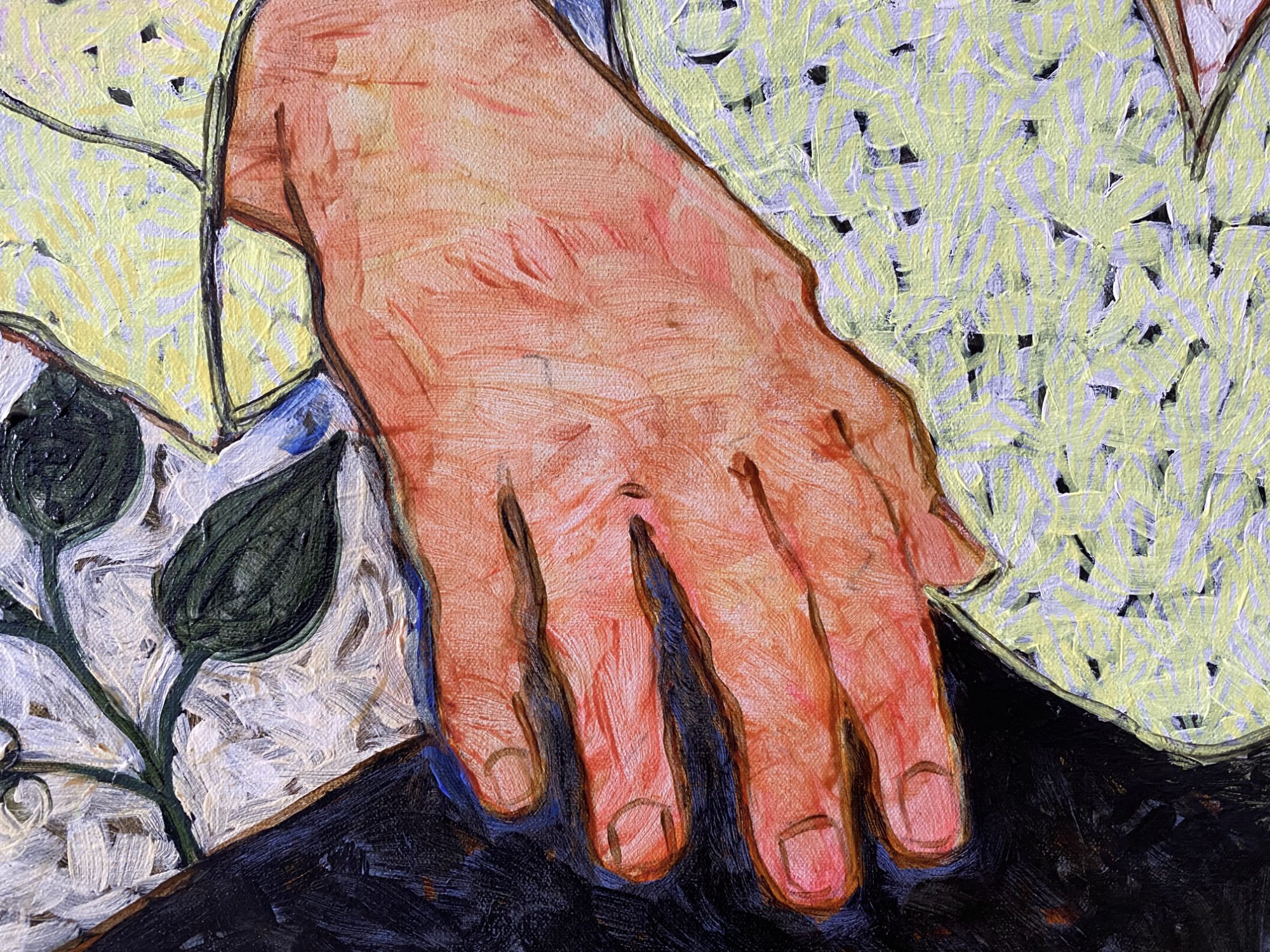
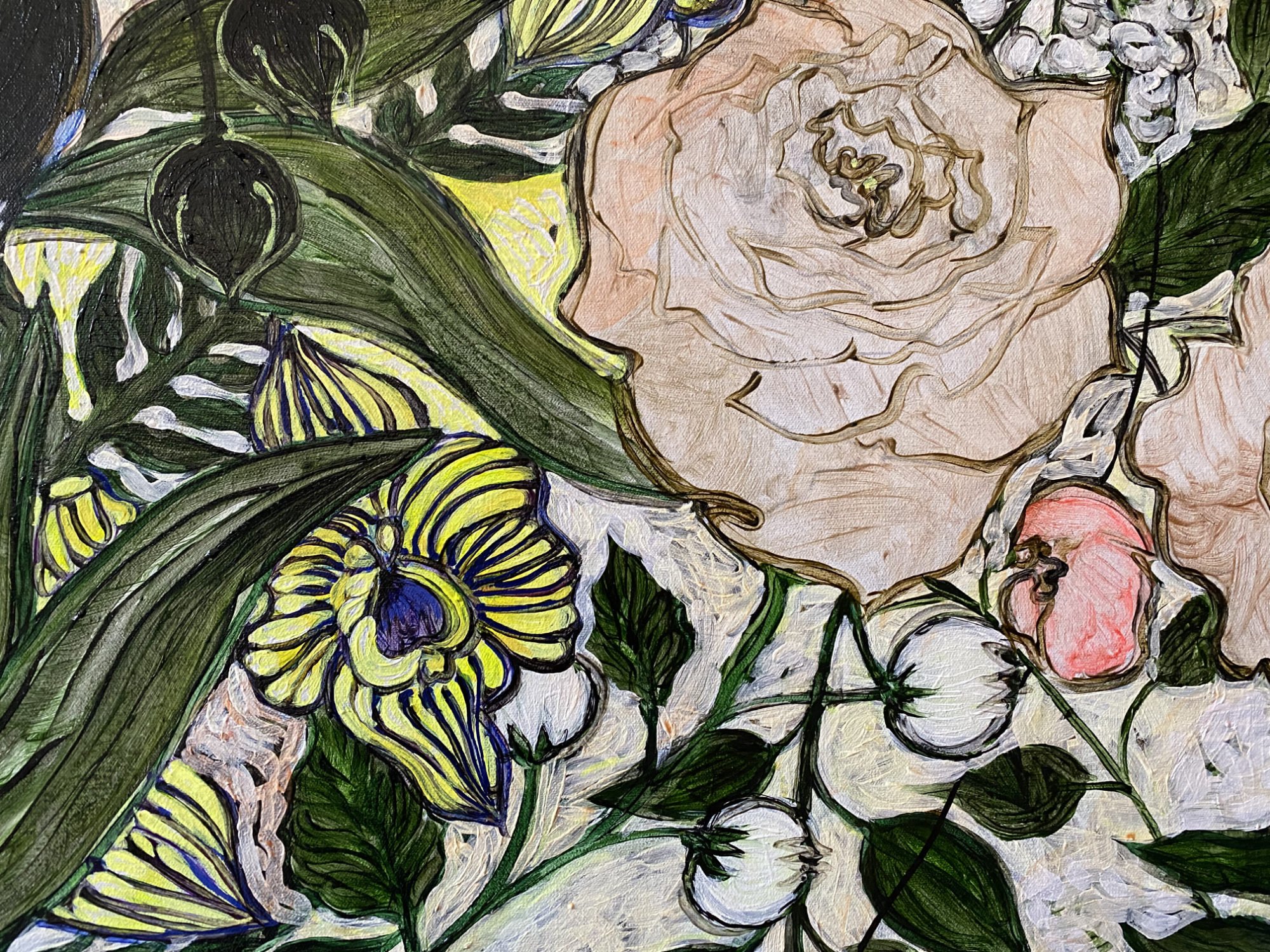
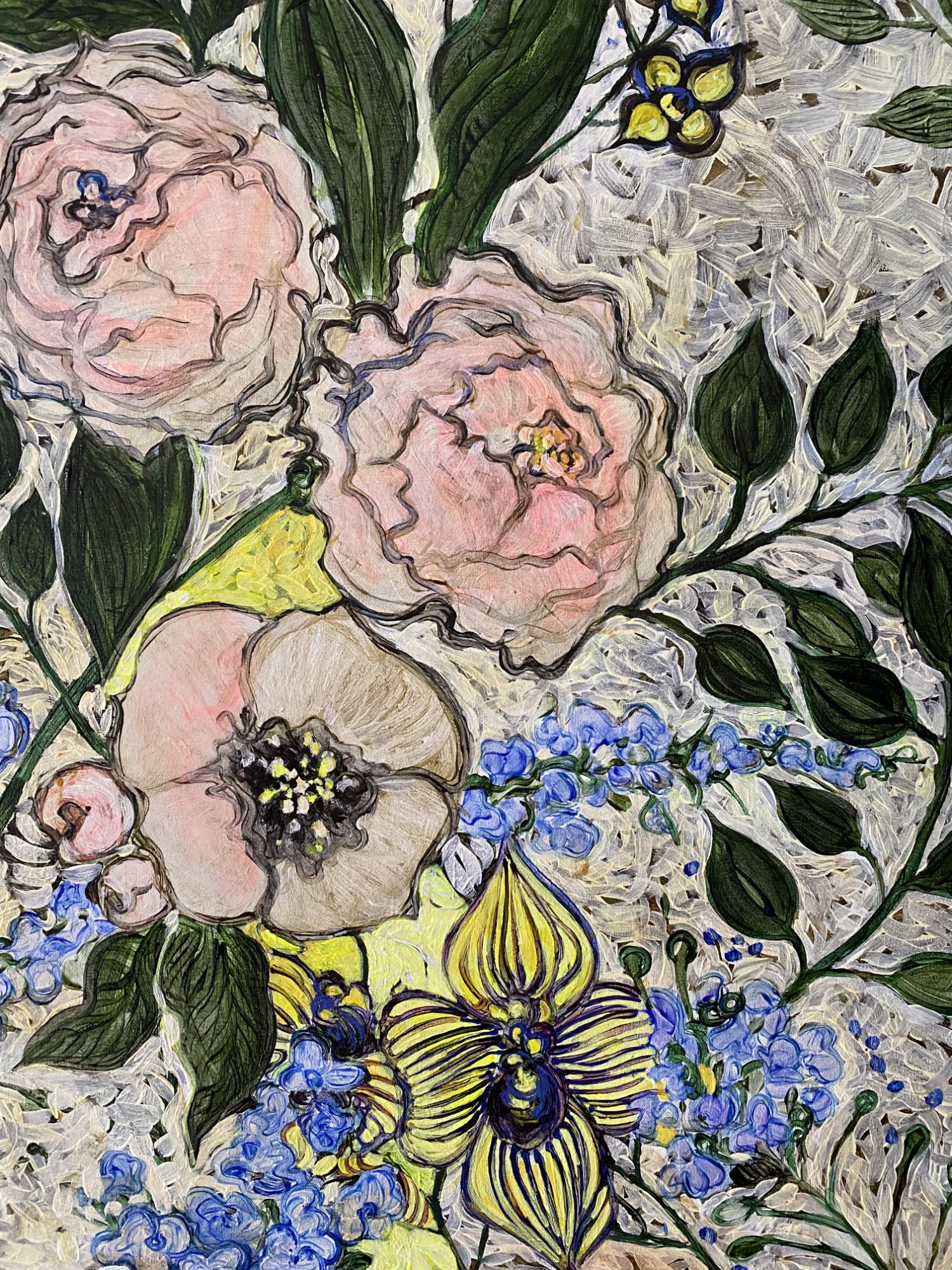
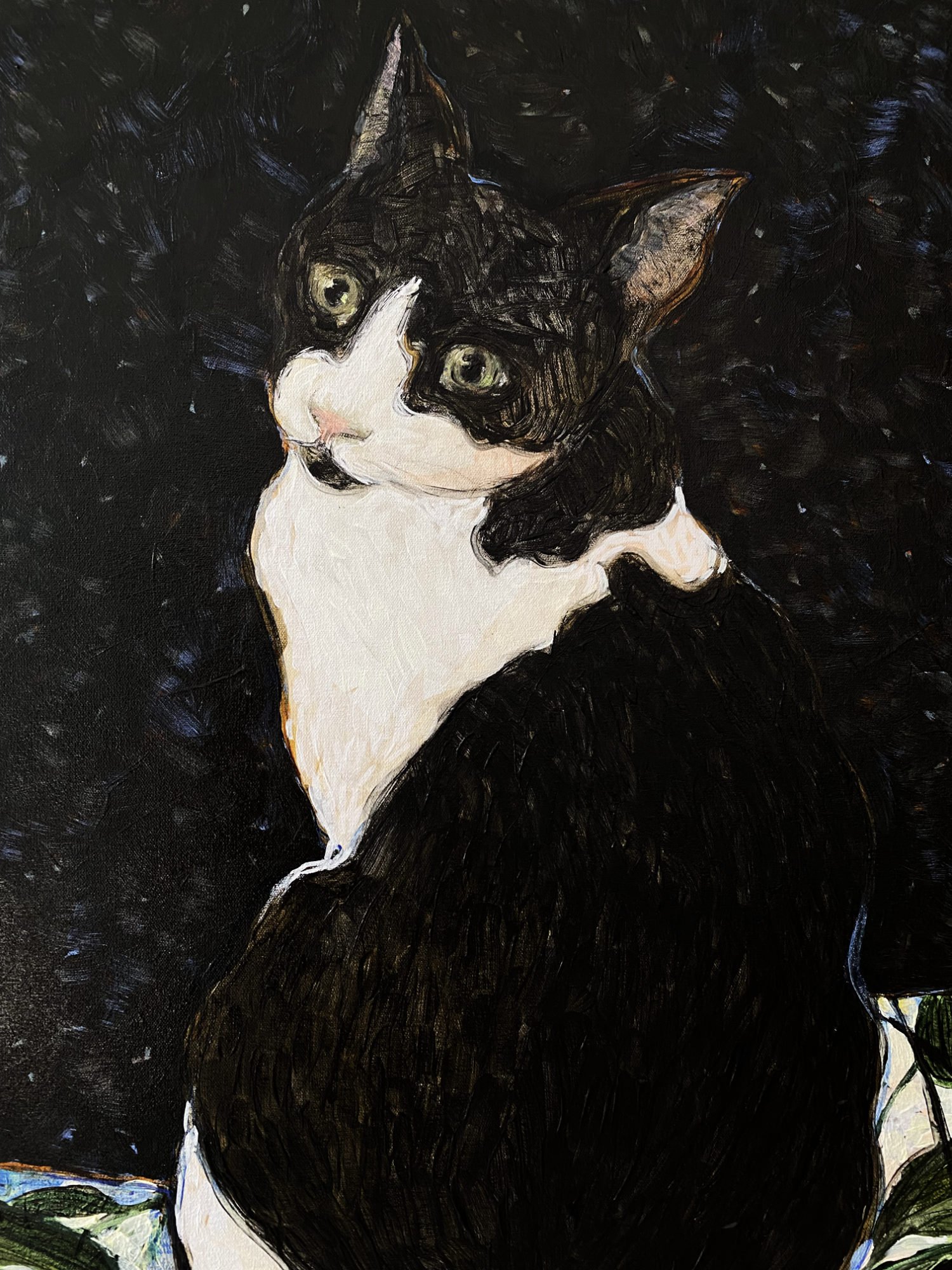
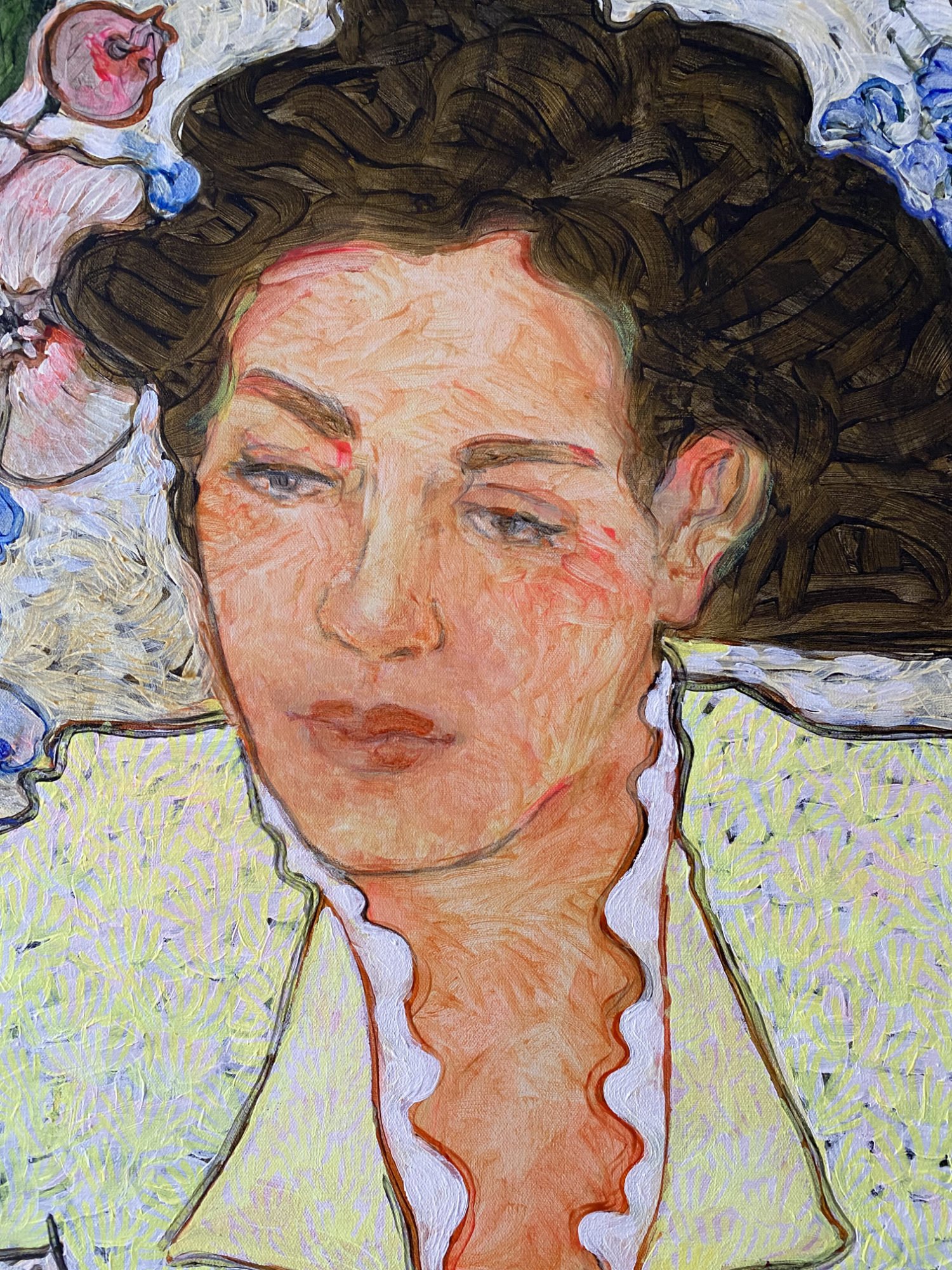
“Spring Quiet
Gone were but the Winter,
Come were but the Spring,
I would go to a covert
Where the birds sing;
Where in the whitethorn
Singeth a thrush,
And a robin sings
In the holly-bush.
Full of fresh scents
Are the budding boughs
Arching high over
A cool green house:
Full of sweet scents,
And whispering air
Which sayeth softly:
”We spread no snare;
”Here dwell in safety,
Here dwell alone,
With a clear stream
And a mossy stone.
”Here the sun shineth
Most shadily;
Here is heard an echo
Of the far sea,
Though far off it be.”
VITA SACKVILLE WEST - 142 x 184 CM




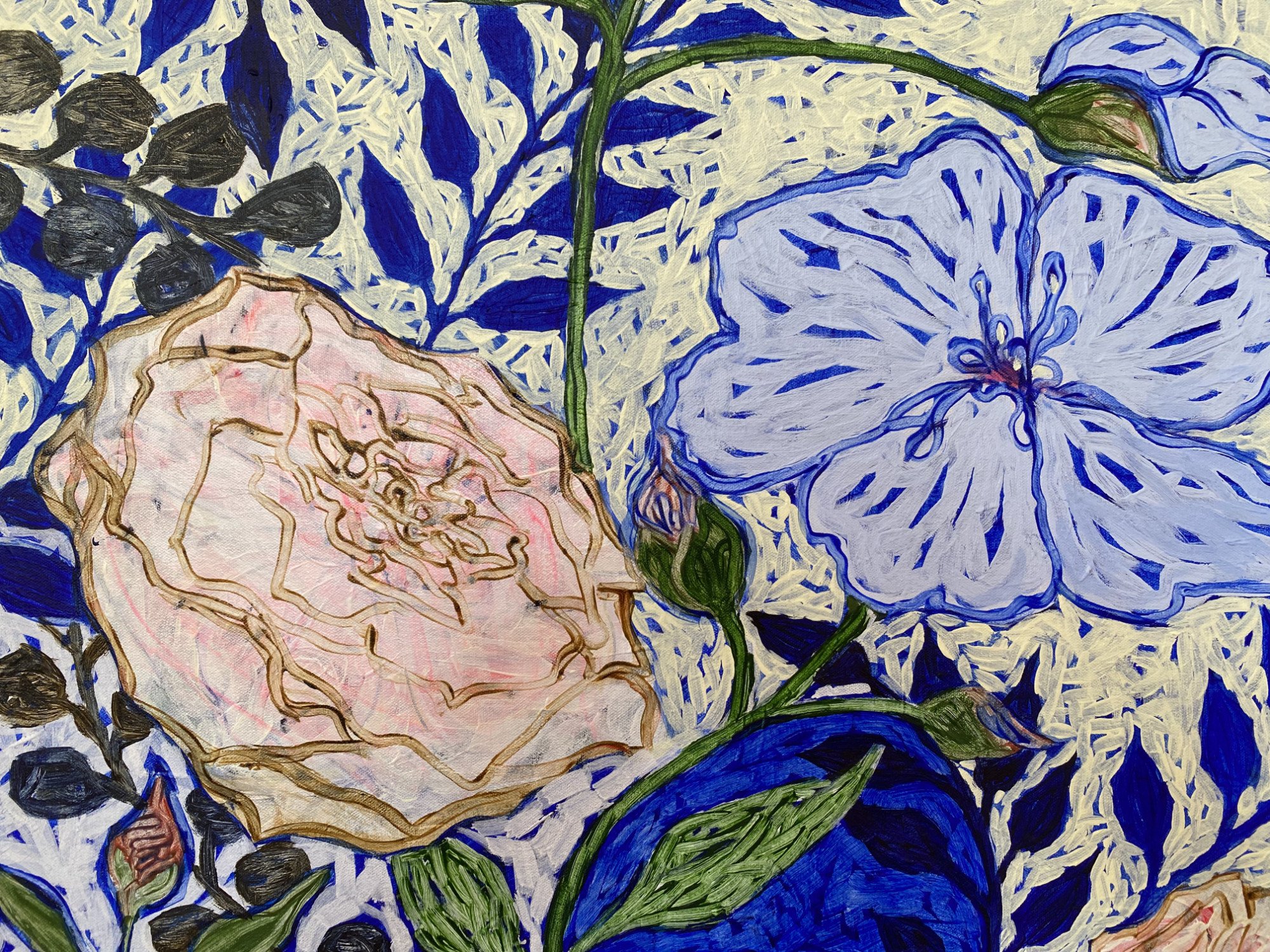

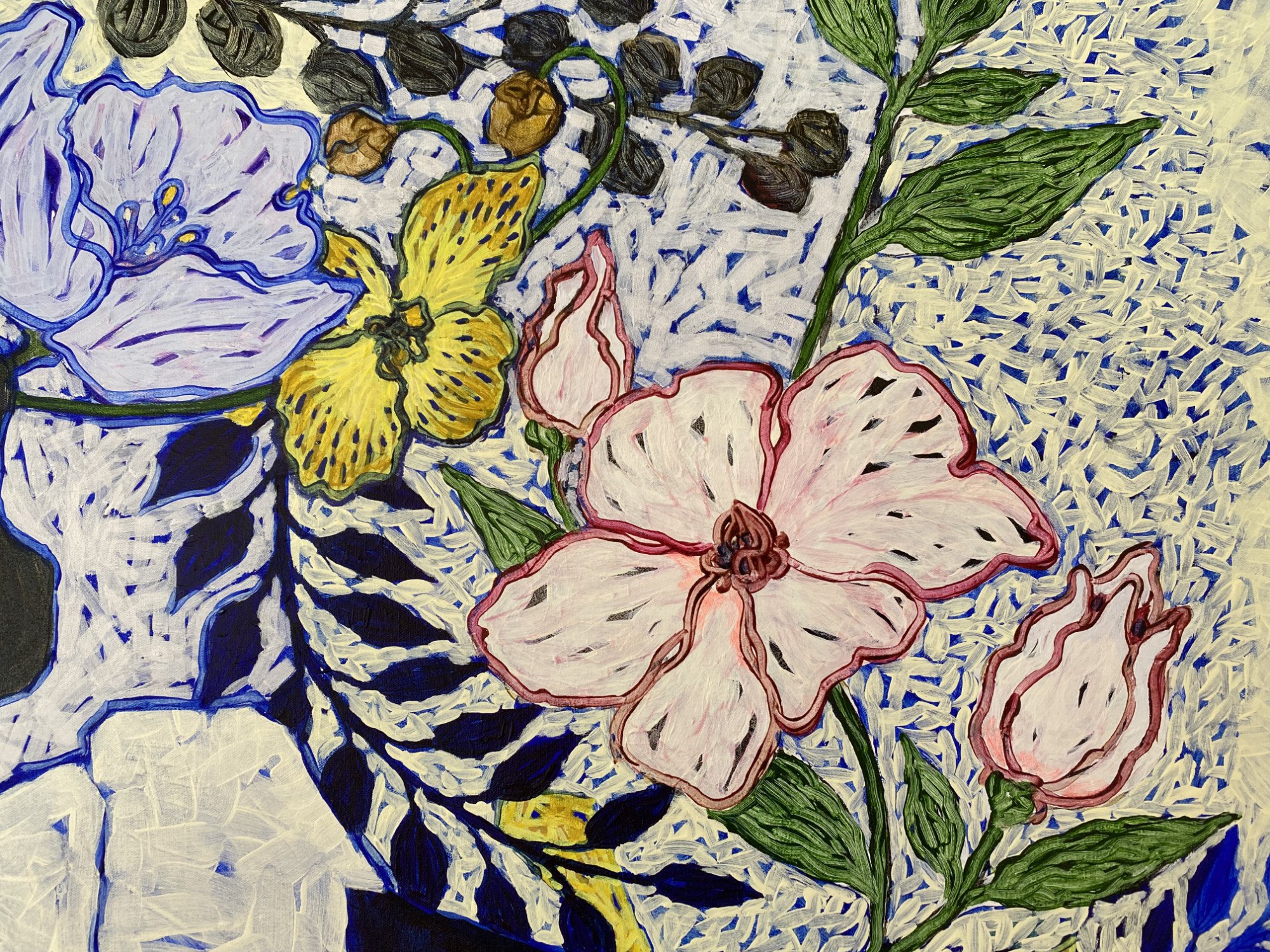

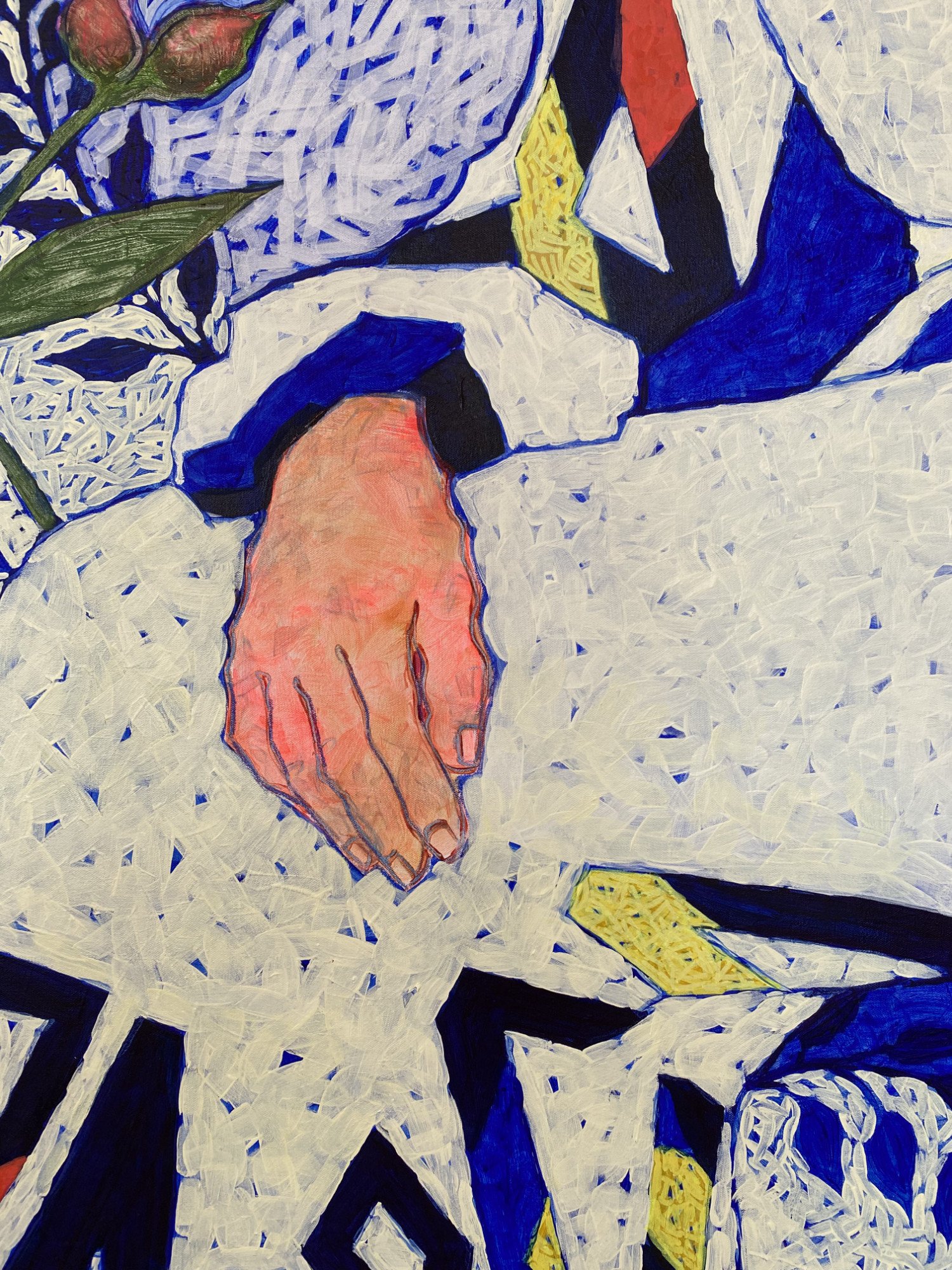
“Days I enjoy
Days I enjoy are days when nothing happens,
When I have no engagements written on my block,
When no one comes to disturb my inward peace,
When no one comes to take me away from myself
And turn me into a patchwork, a jig-saw puzzle,
A broken mirror that once gave a whole reflection,
Being so contrived that it takes too long a time
To get myself back to myself when they have gone to.
The years are too strickly measured, and life too short
For me to afford such bits of myself to my friends.
And what have I to give my friends in the last resort?
An awkwardness, a shyness, and a scrap,
No thing that’s truly me, a bootless waste,
A waste of myself and them, for my life is mine
And theirs presumably theirs, and cannot touch.”
E.M. FORSTER - 160 x 177 CM



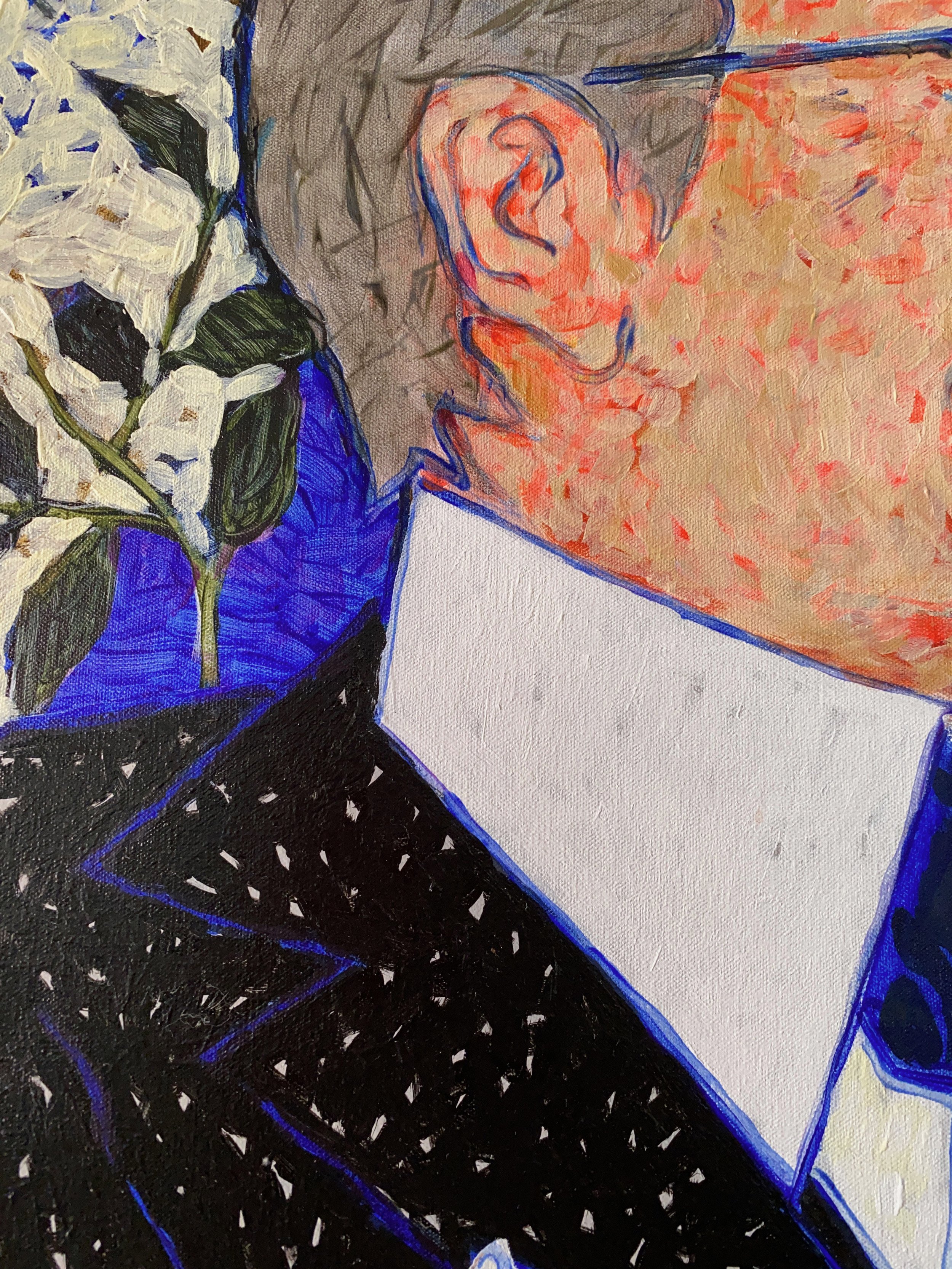
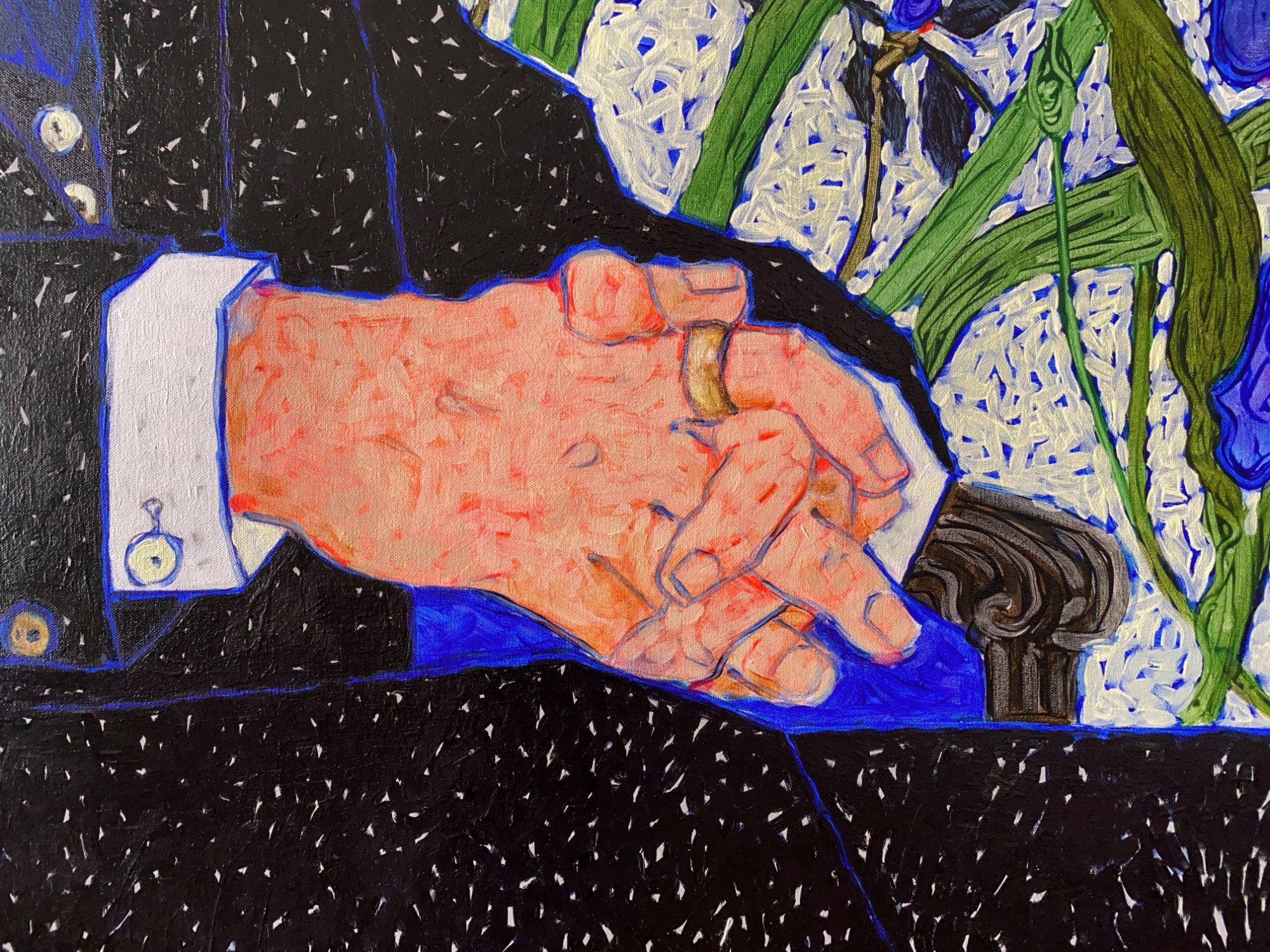

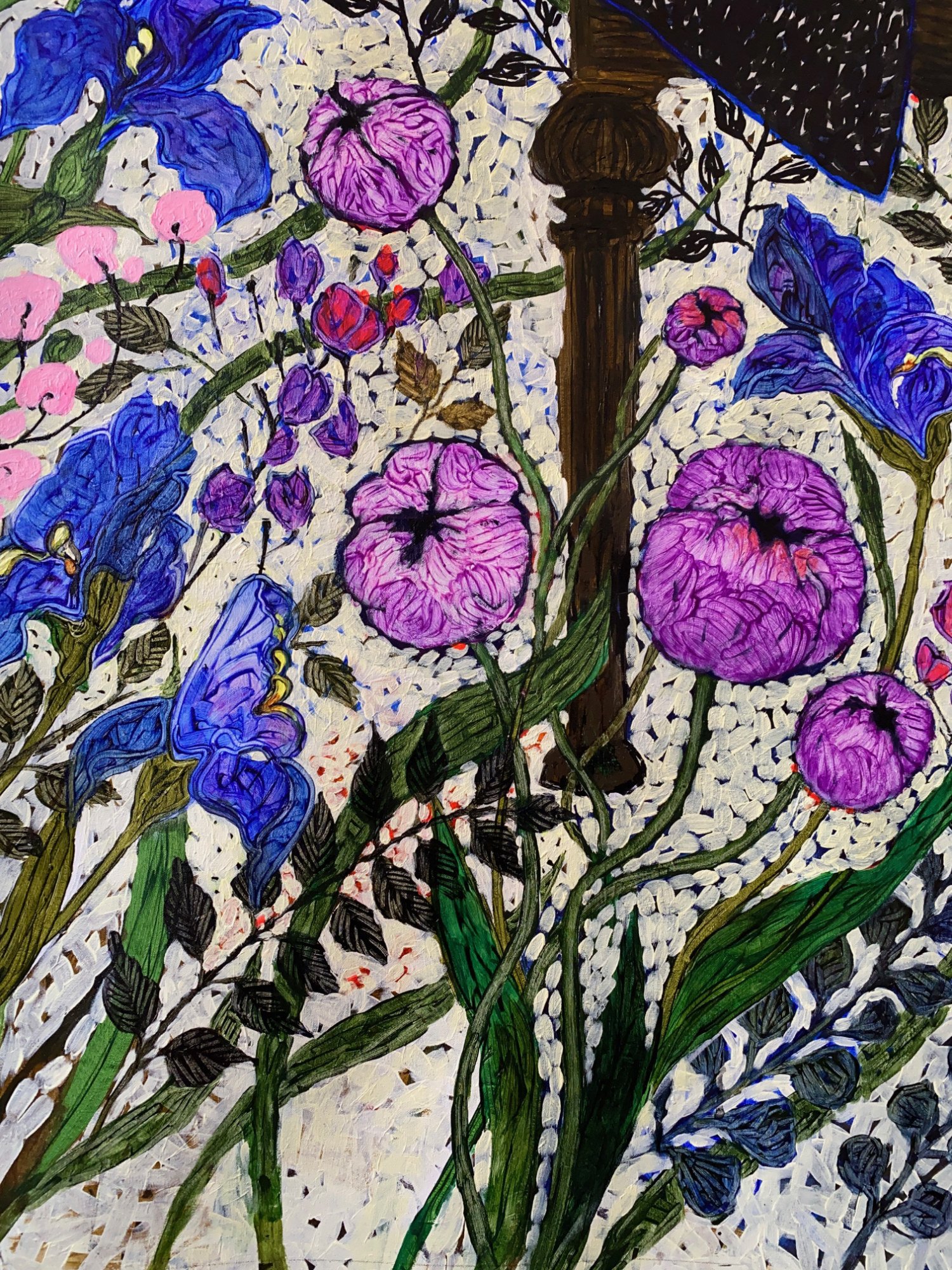


“It is only that people are far more different than is pretended. All over the world men and women are worrying because they cannot develop as they are supposed to develop. Here and there they have the matter out, and it comforts them. Don’t fret yourself, Helen. Develop what you have; love your child. I do not love children. I am thankful to have none. I can play with their beauty and charm, but that is all - nothing real, not one scrap of what there ought to be. And others - others go farther still, and move outside humanity altogether. A place, as well as a person, may catch the glow. Don’t you see that all this leads to comfort in the end? It is part of the battle against sameness. Differences - eternal differences, planted by God in a single family, so that there may always be colour; sorrow, perhaps, but colour in the daily grey.”
COUNTESS AUGUSTA ADA KING - 152 x 190 CM
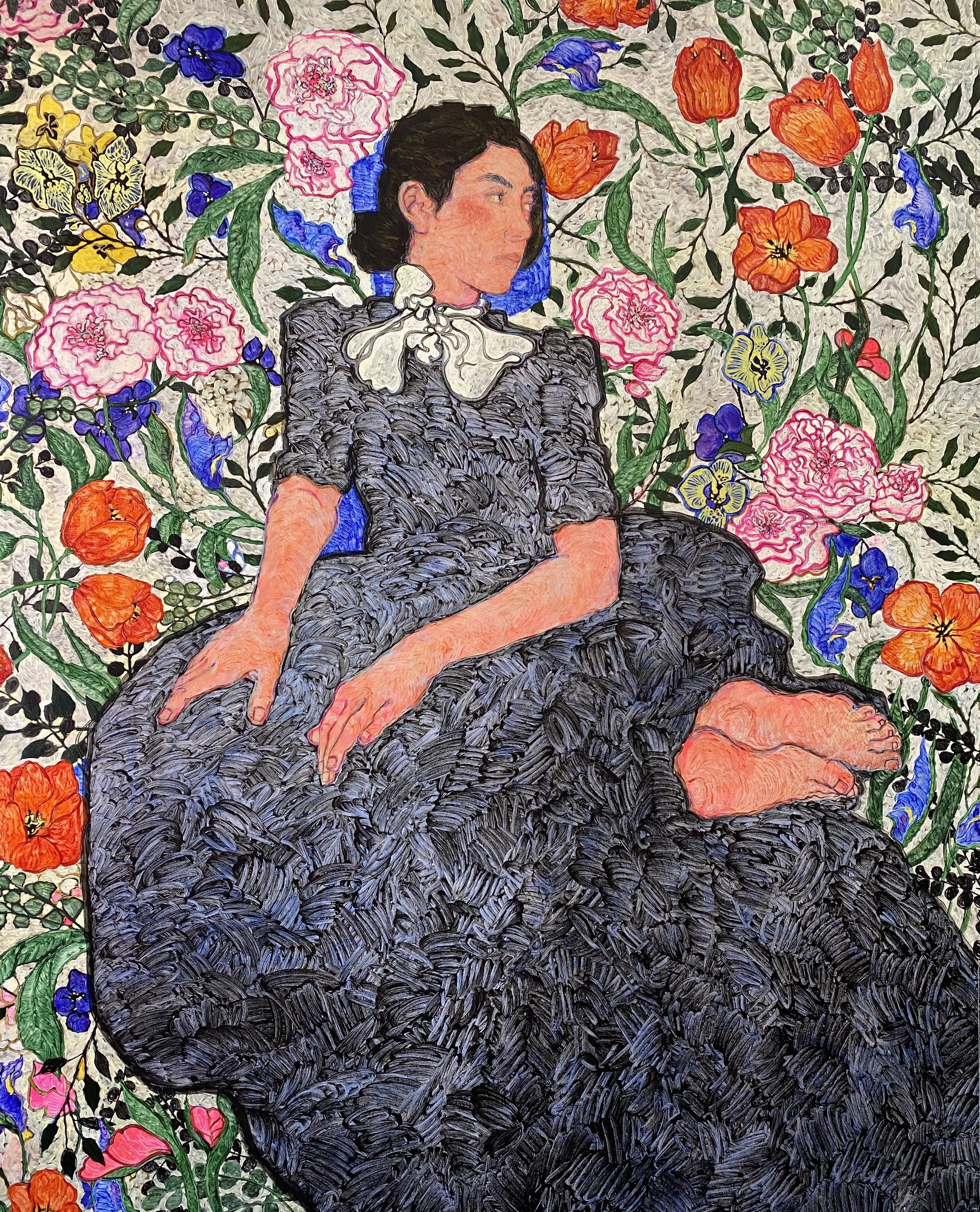

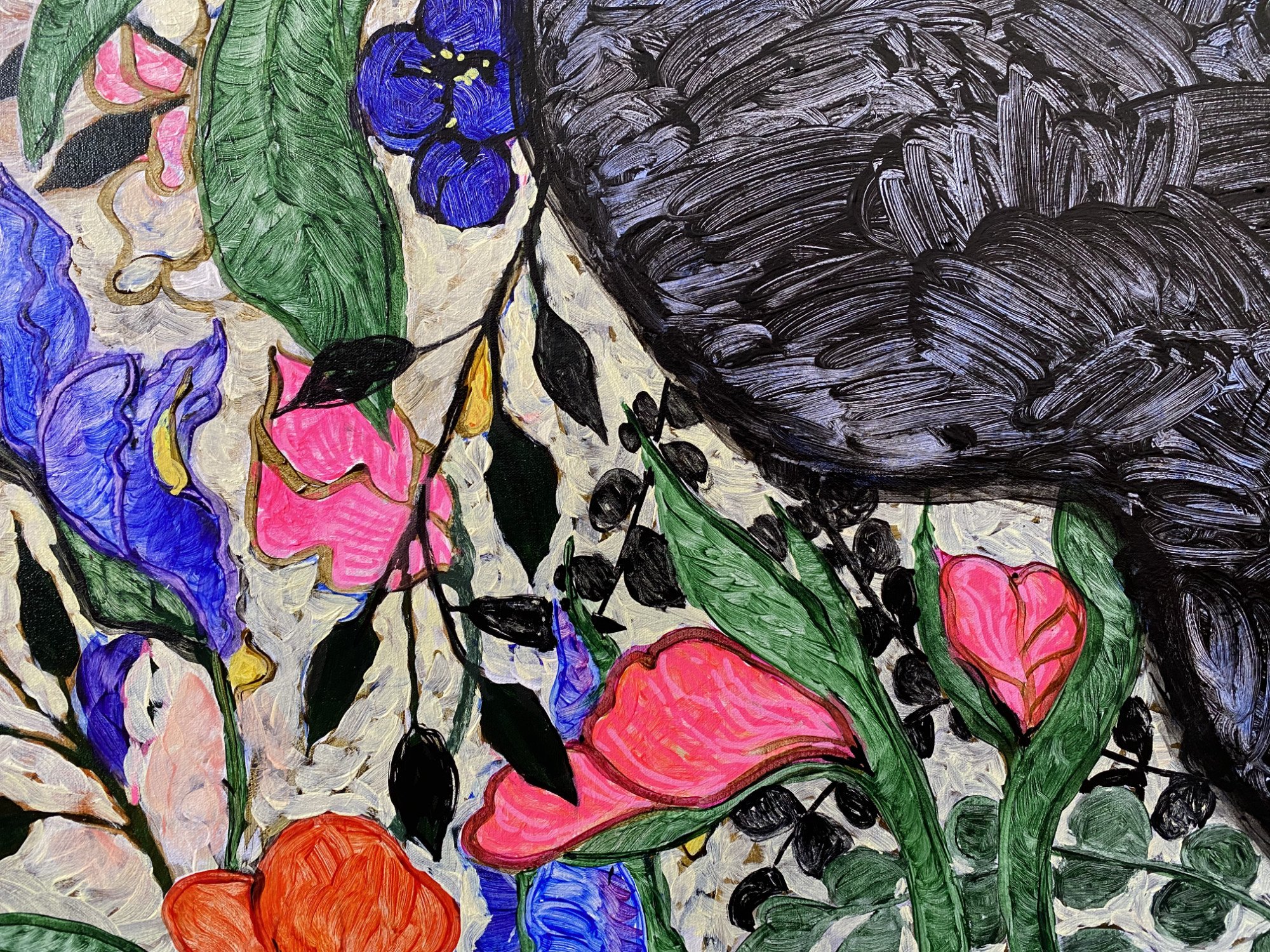

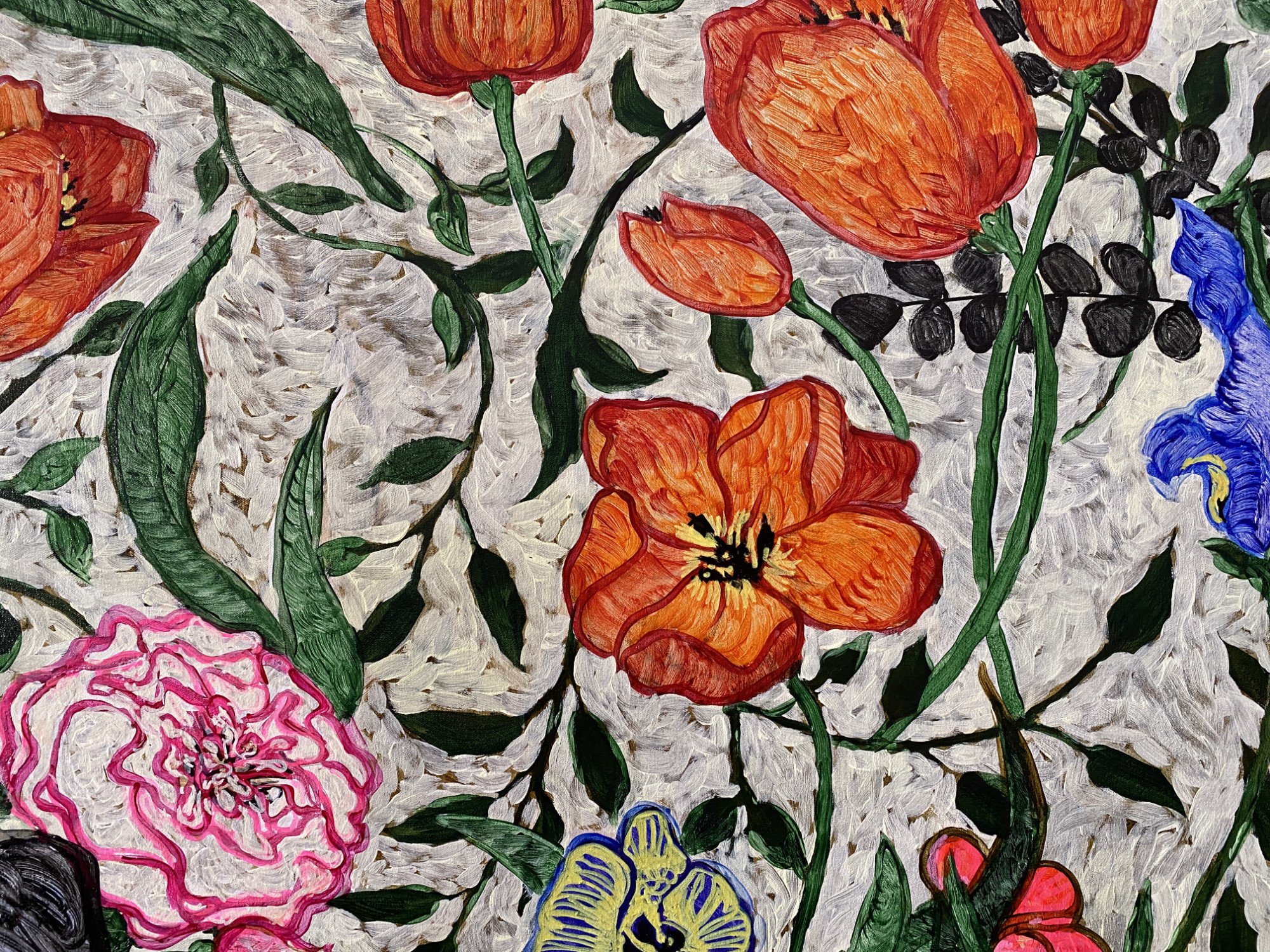
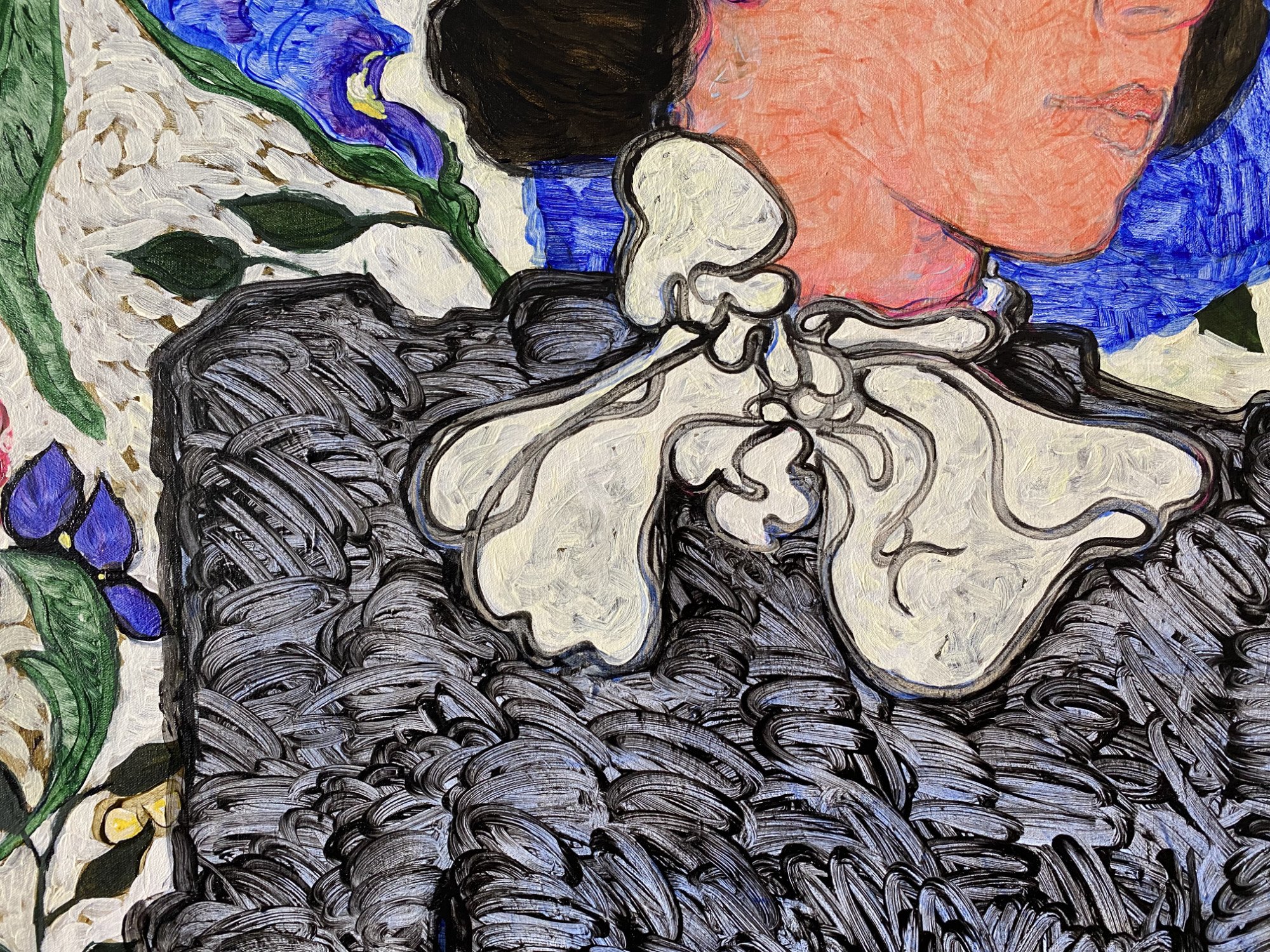

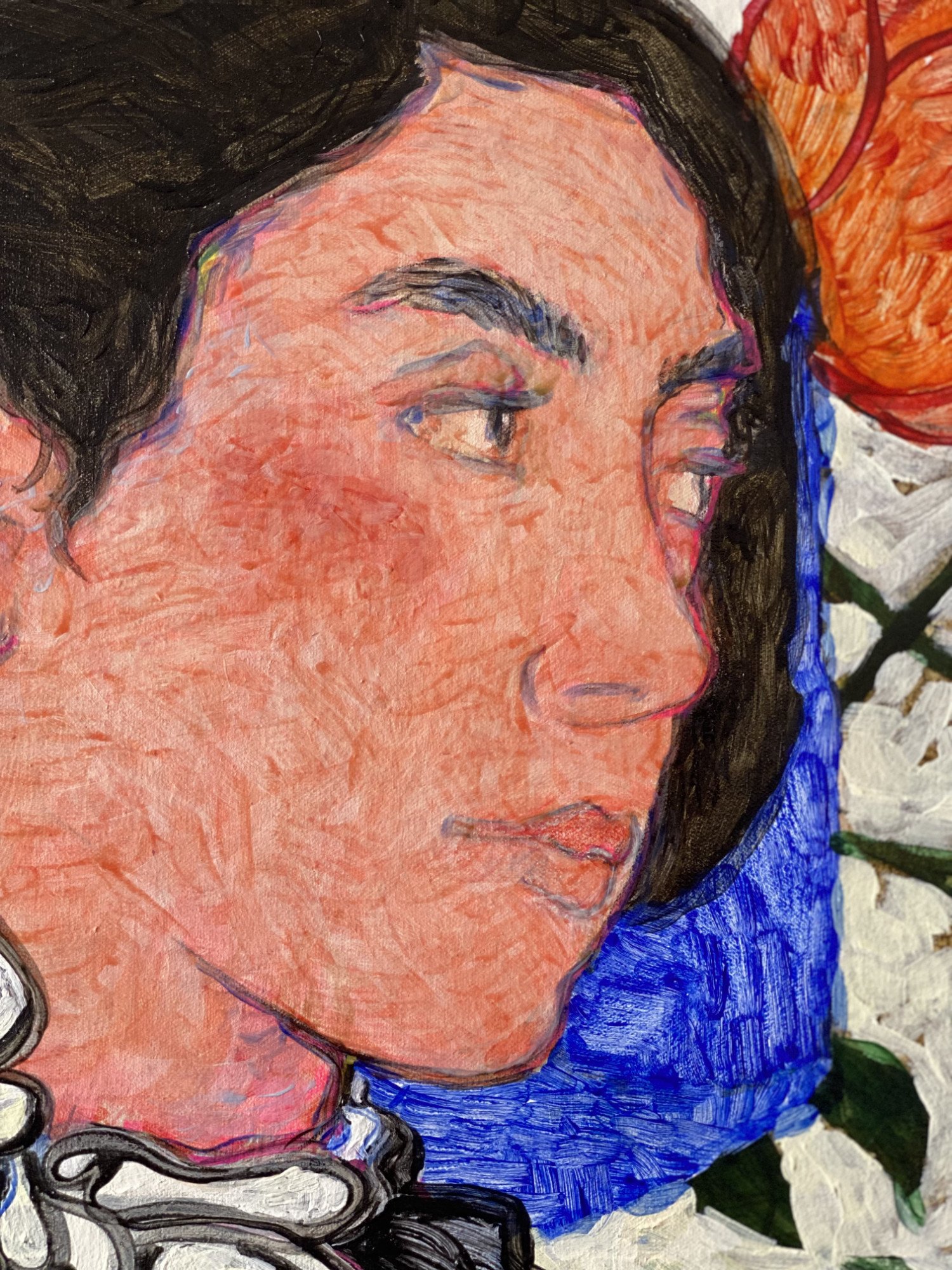
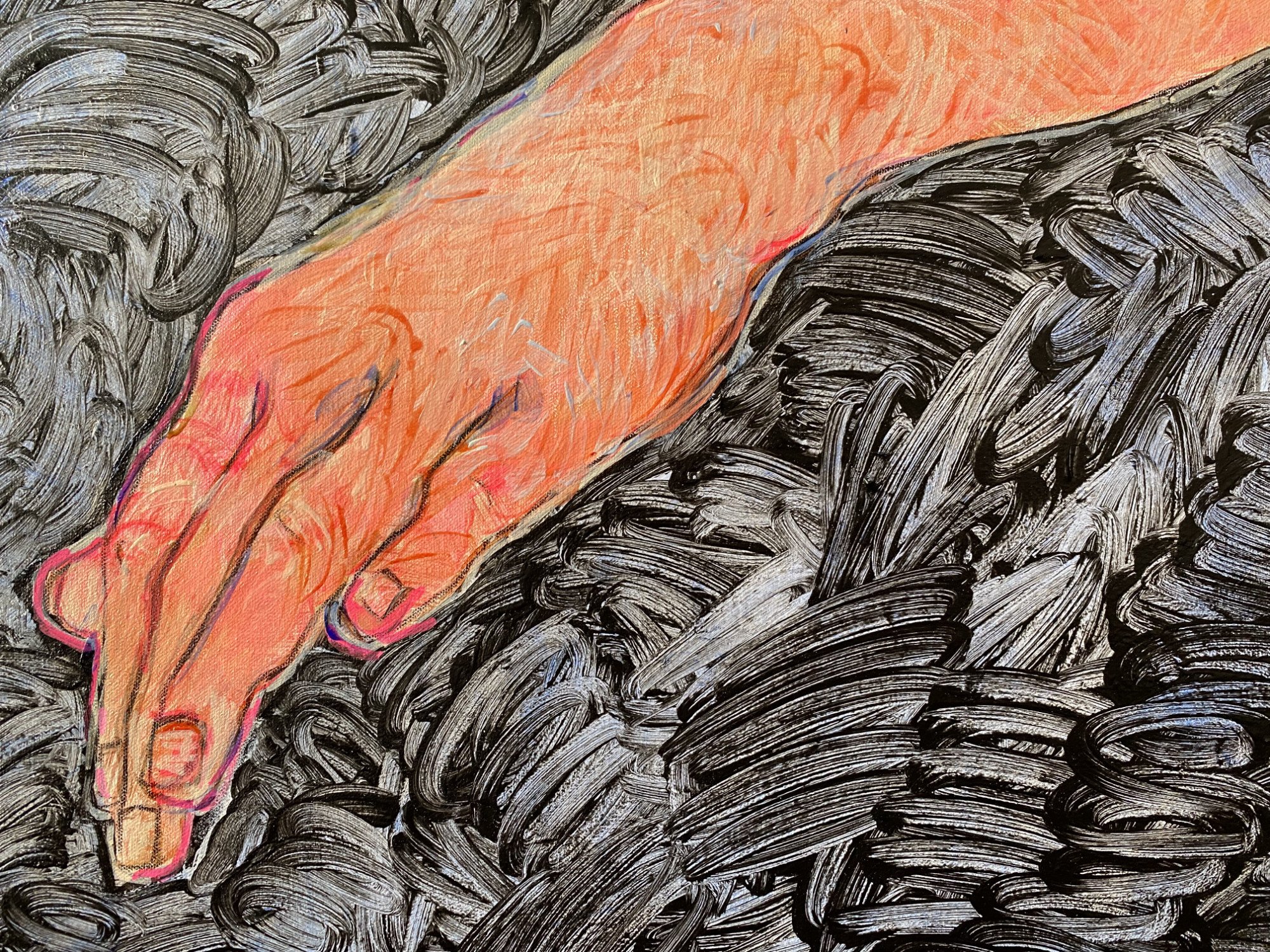
“In my notes on the Analytical Engine (published in 1843), a translation and continuation of the description of the machine by Italian mathematician Luigi Menabrea, I wrote the following:
“The science of operations, as derived from mathematics more especially, is a science of itself, and has its own abstract truth and value. This science constitutes the language through which alone we can adequately express the great facets of the natural world, and those unceasing changes of mutual relationship which, visibly or invisibly, consciously or unconsciously to our immediate physical perceptions, are interminably going on in the agencies of the creation we live amidst” (as cited in Morais, “Ada Lovelace, The First Tech Visionary”).
Further, the engine – even incomplete – was one of poetic significance, an imaginative machine capable not just of manipulating language, but of creating it.
Again, I refer to my published notes, where I wrote, “The Analytical Engine does not occupy common ground with mere “calculating machines.” It holds a position wholly its own…a new, a vast, and a powerful language is developed…in which to yields its truths so that these may become of more speedy and accurate practical application for the purposes of mankind than the means hitherto in our possession have rendered possible. Thus not only the mental and the material, but the theoretical and the practical in the mathematical world, are brought into more intimate and effective connection with each other” (as cited in Gleick 116).”
KATE SHEPPARD - 130 X 150 cm
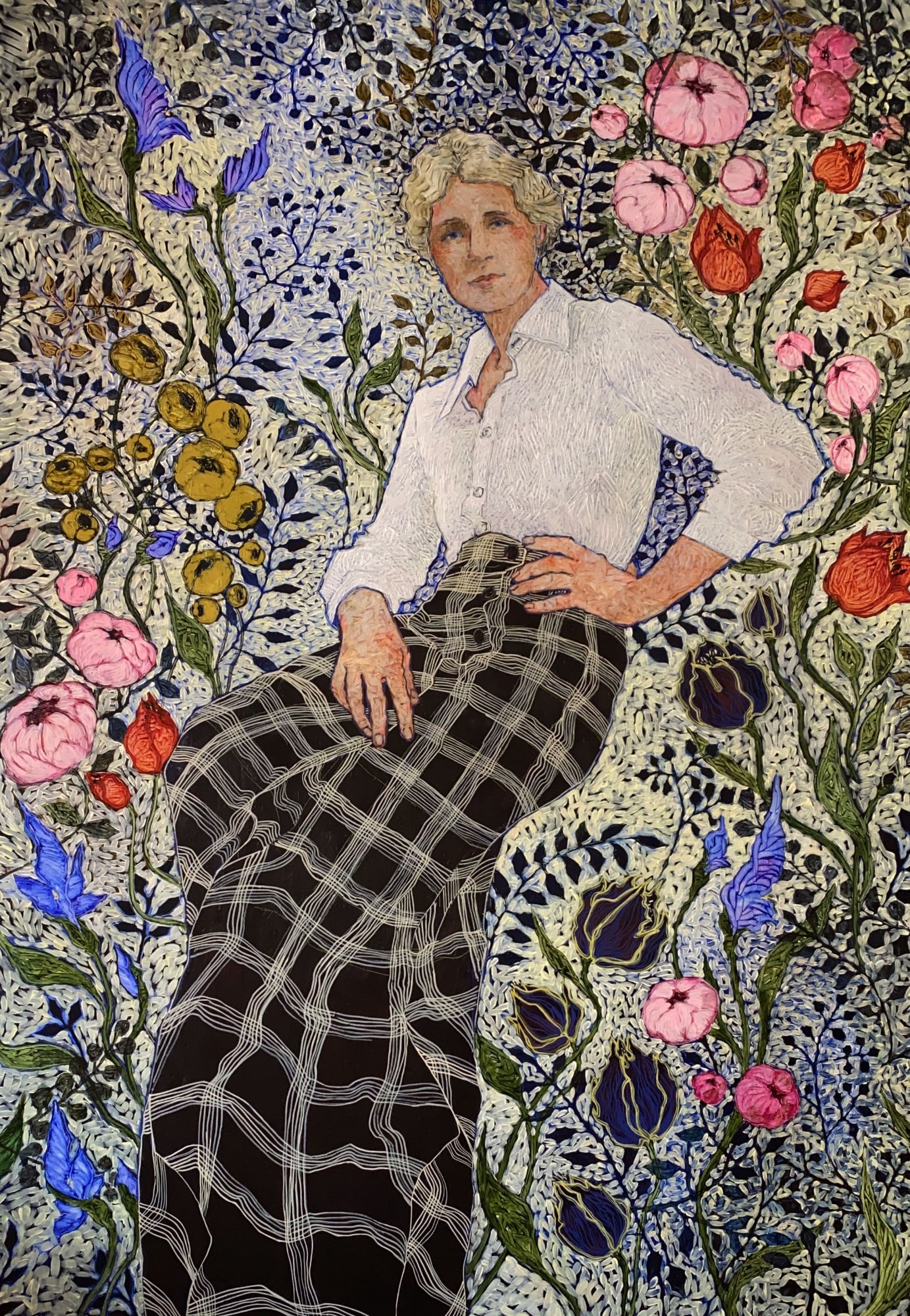

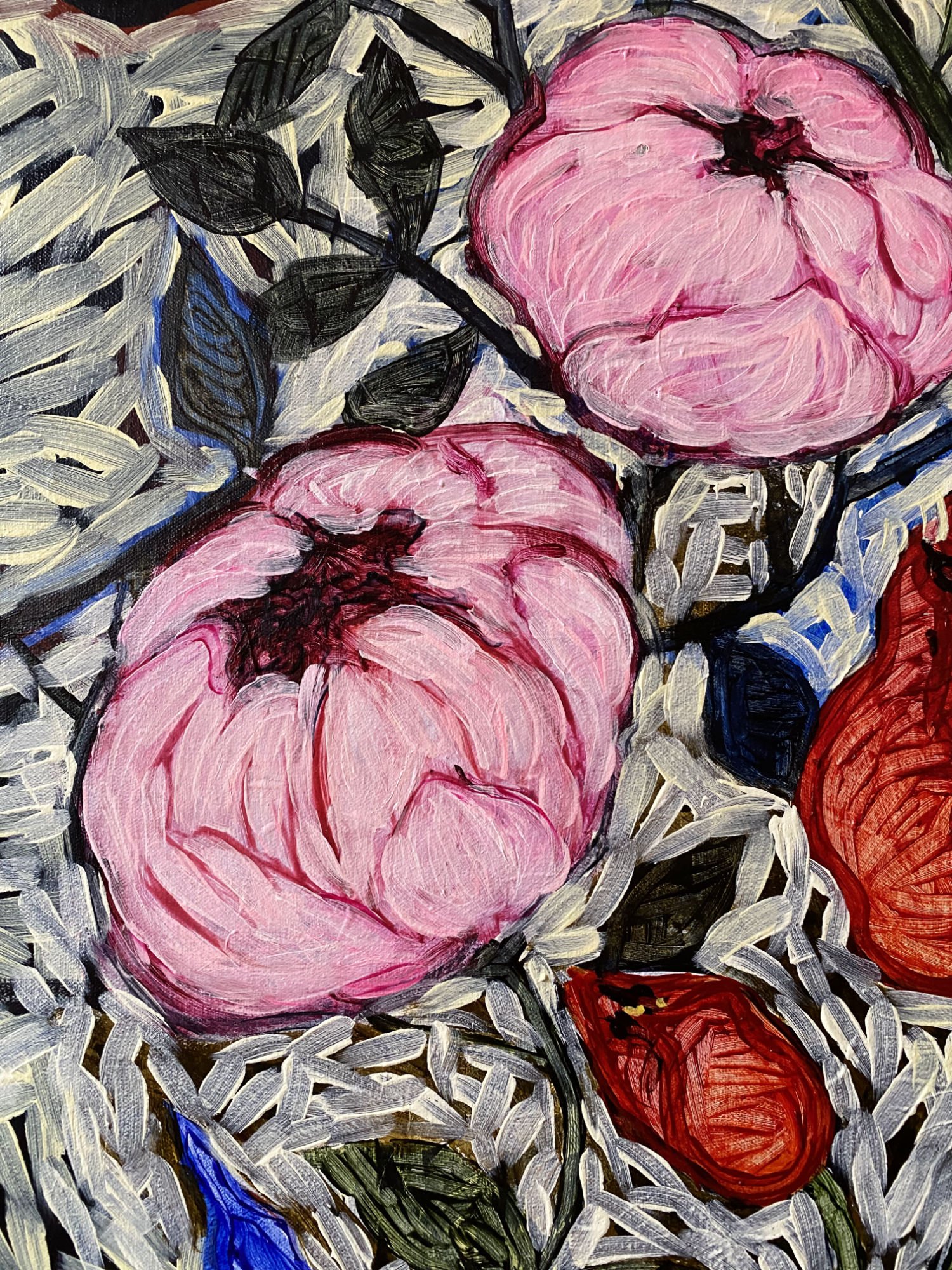
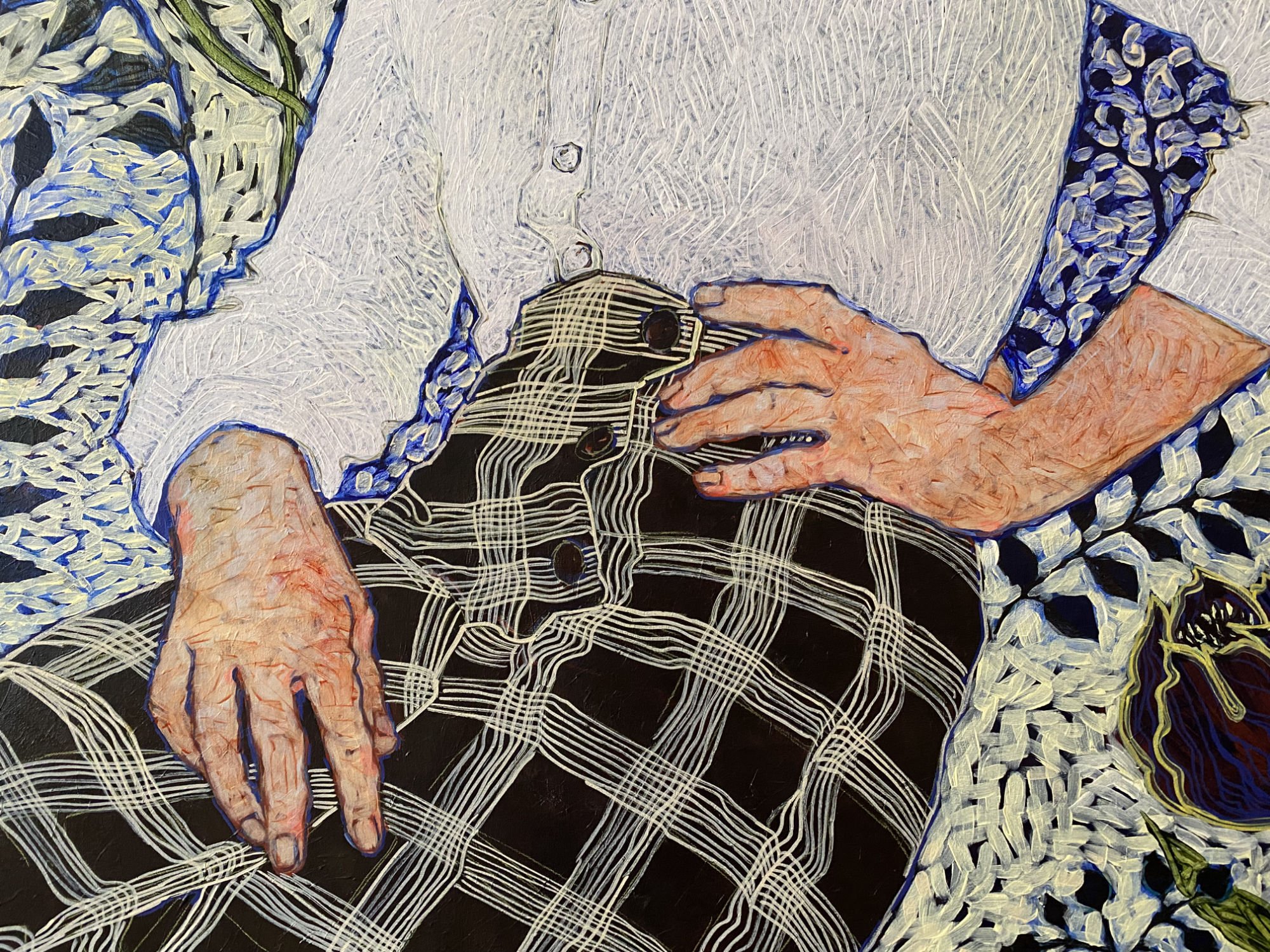


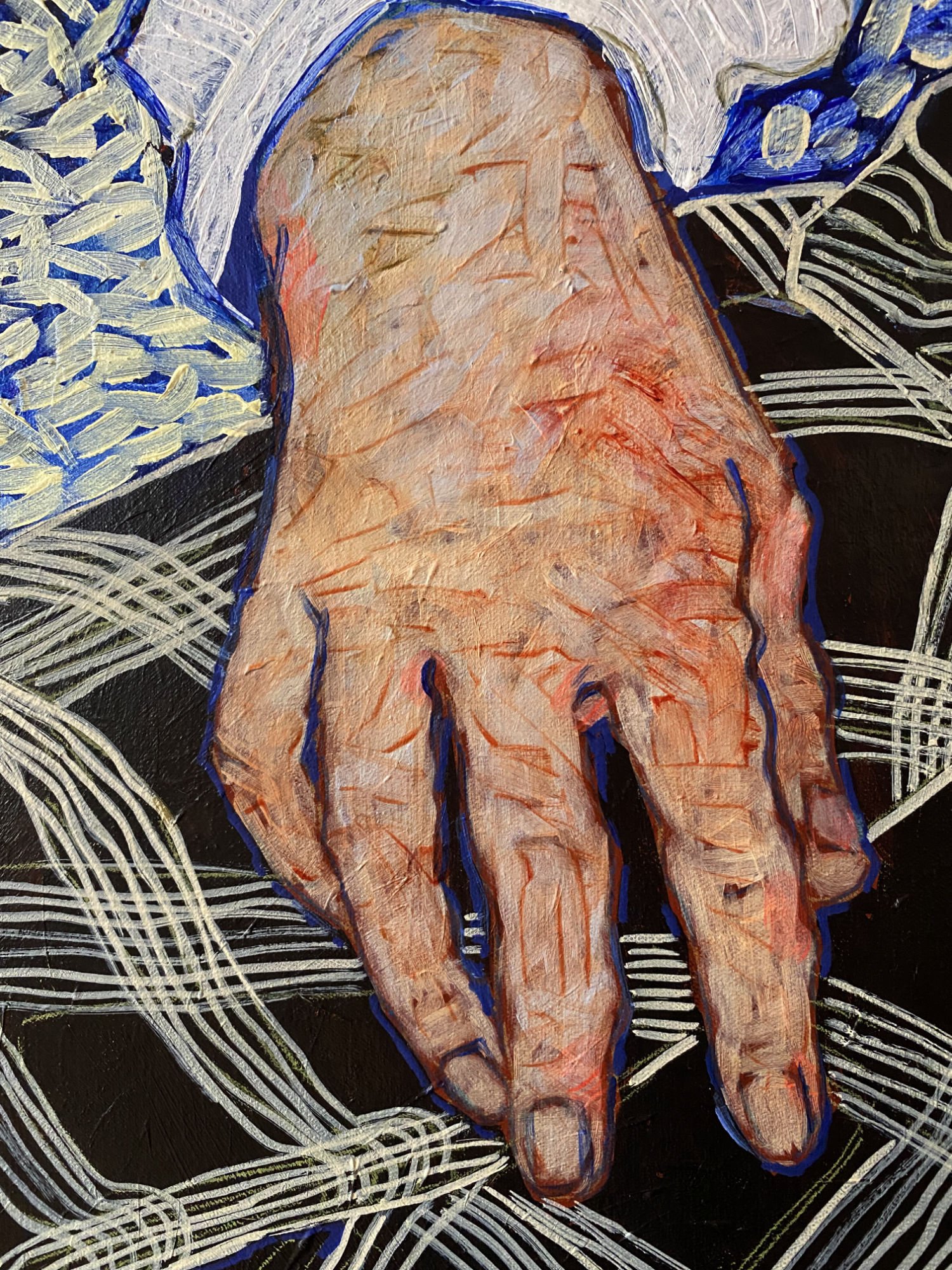
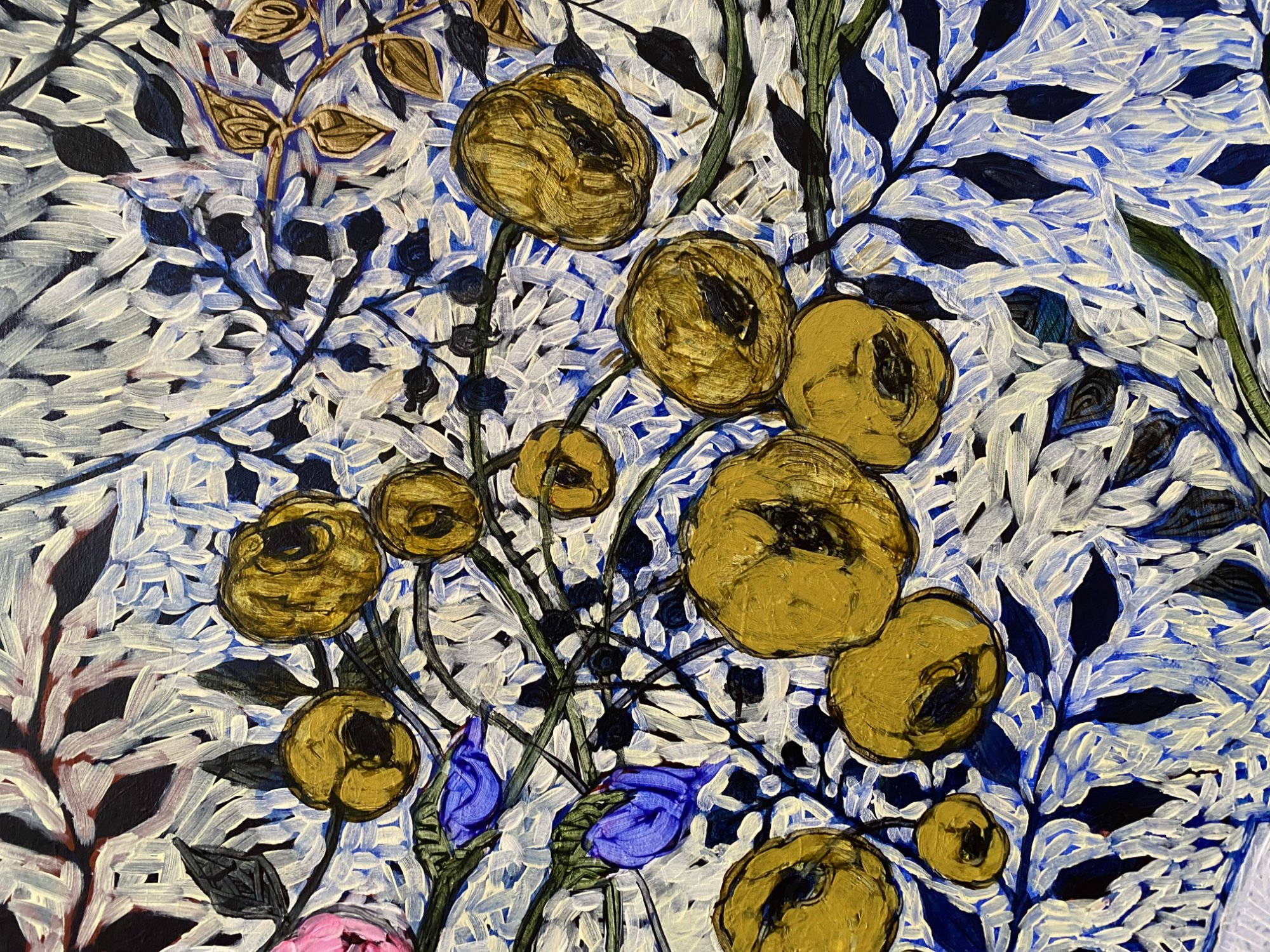
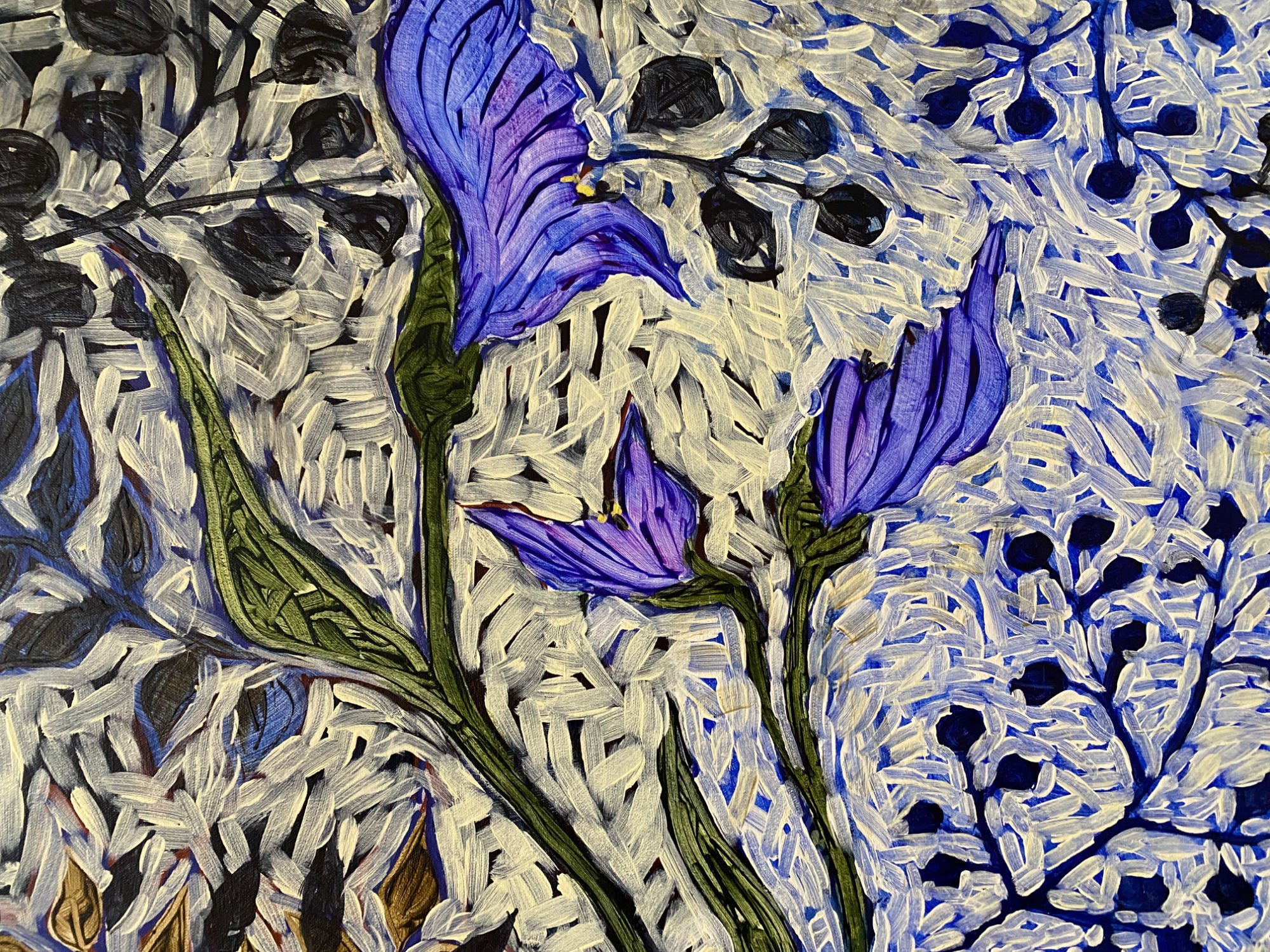
“When we were told that “the franchise would make woman unwomanly”, that “she would neglect her home duties on account of it”, that “it would cause dissension between husband and wife,” that “giving women the franchise, would only be giving dual votes to married men,” that “because she cannot fight she should not vote,” that “because of motherhood she has not time to vote,” that “it would demoralise women to associate with men at polling-booths,” that “women are already represented by their fathers, brothers or sons,” that “women do not want to vote” — when we hear of these objections — we feel somehow as if that way of thinking had gone out of date a long time ago. . . unfortunately however, there are still many who have thought very little on the subject at all, and it is for us, who have the earnest desire to take part in the social and political reforms that are so much needed, to influence those who are indifferent or antagonistic to the question, by pointing out the shallowness of the objections above quoted.
Women themselves must take the matter up, feel sure of their ground and then bring all their enthusiasm and personal influence to bear in breaking down the barriers that come between them and their rightful privileges. It is our earnest hope, that before the next general election, our wish in this matter may be accomplished.
The time is coming when women must become accomplished to the idea of taking part in the political world . . .”
ELIZABETH VON ARNIM - 125 x 183 CM
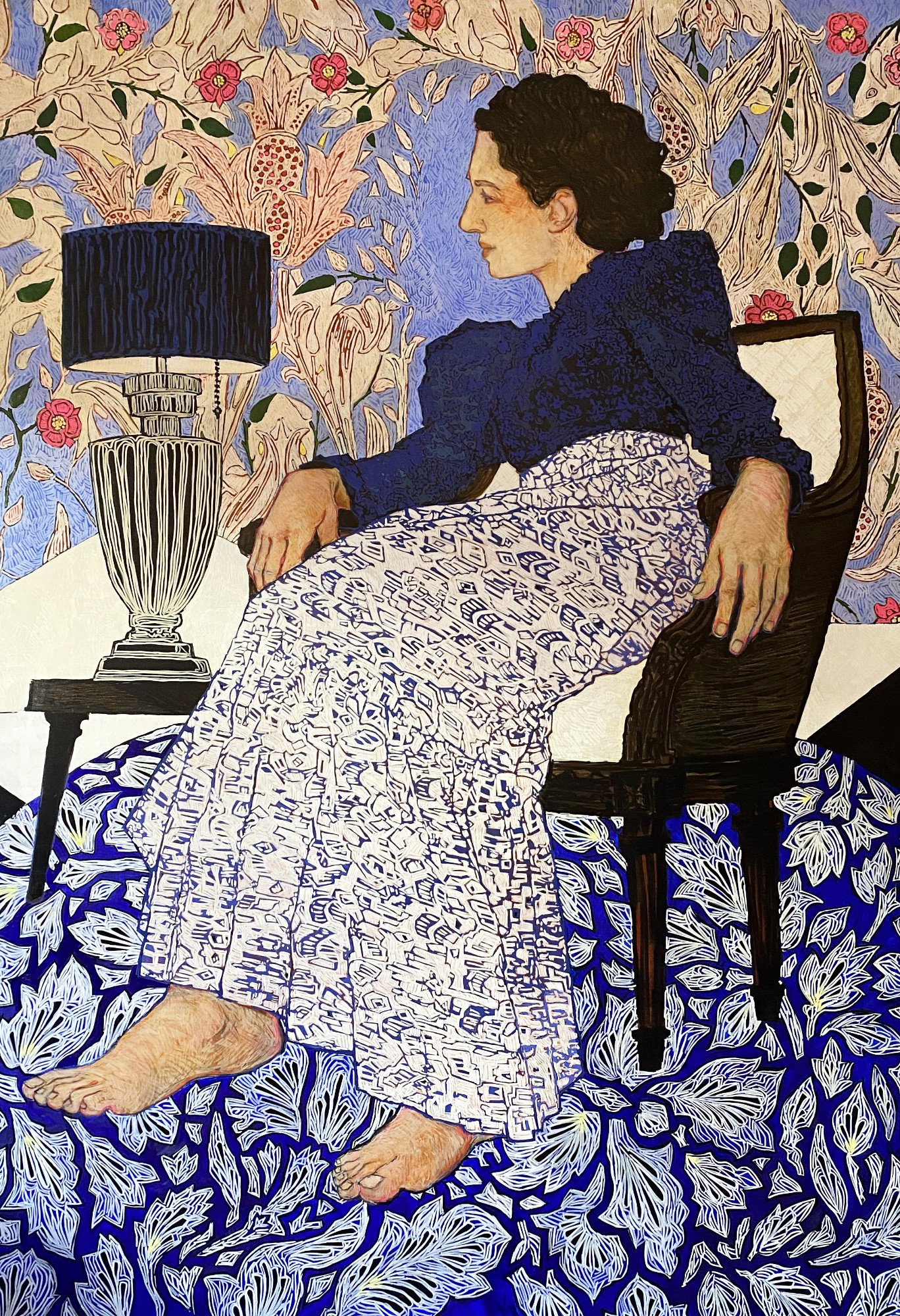


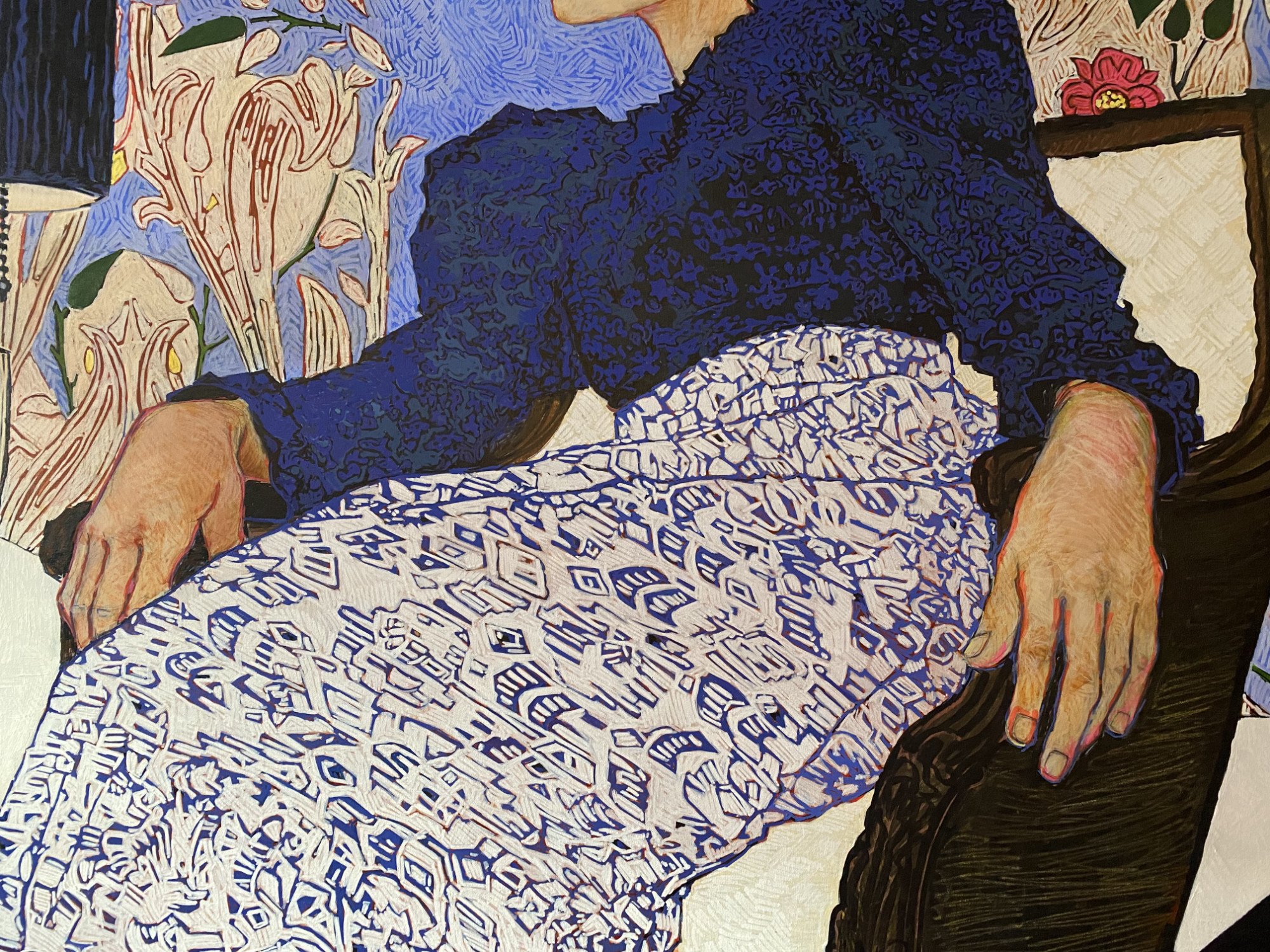
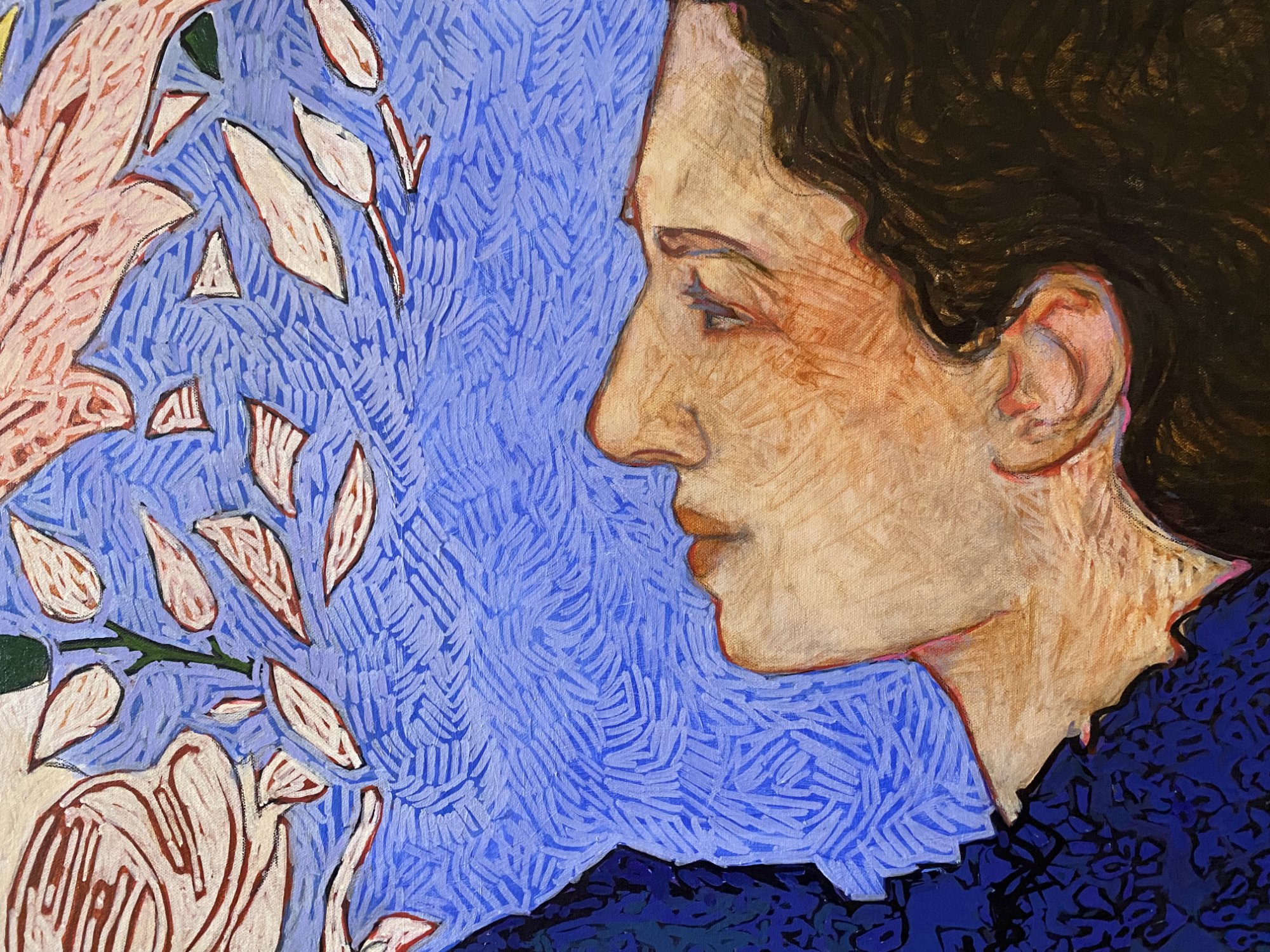
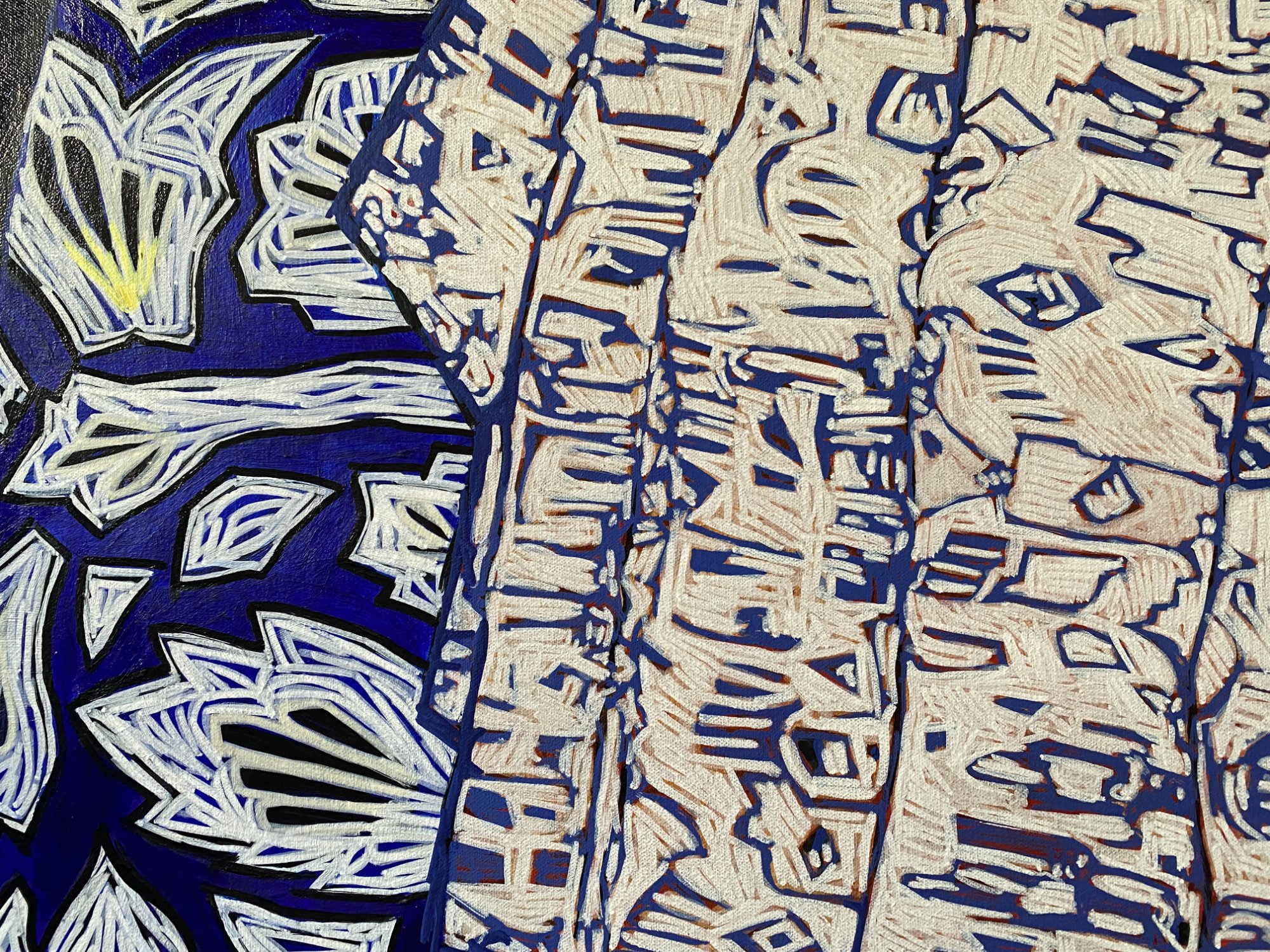
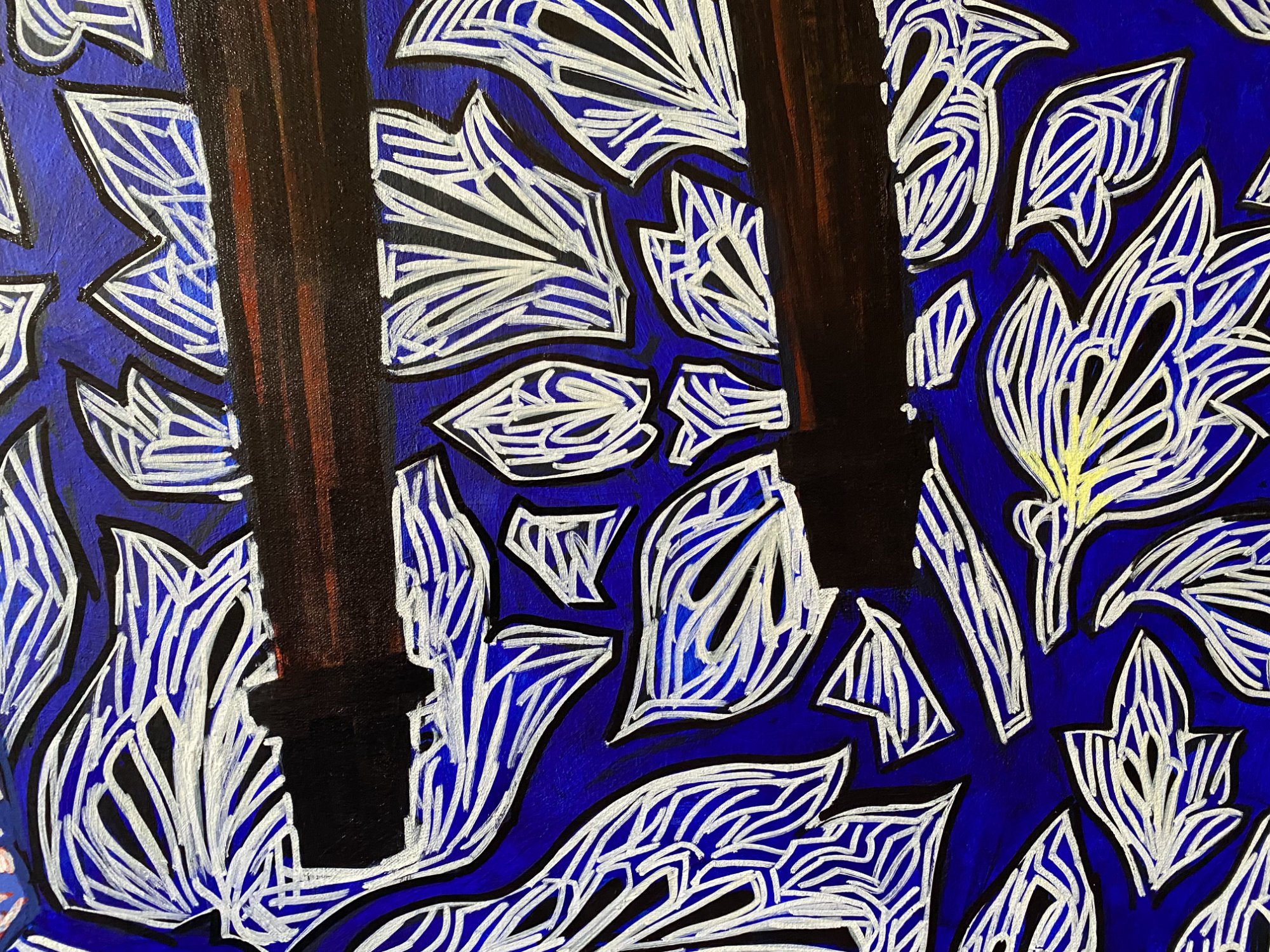


“In Goethe’s Garden
I from this hillock all my world survey!
Yon vale, bedecked by nature’s fairy fingers,
Where the still by-road picturesquely lingers,
The cottage white whose quaint charms grace the way—
These are the scenes that o’er my heart hold sway.
I from this hillock all my world survey!
Though I ascend to heights fair lands dividing,
Where stately ships I see the ocean riding,
While cities gird the view in proud array,
Naught prompts my heart’s impulses to obey.
I from this hillock all my world survey!
And could I stand while Paradise descrying,
Still for these verdant meads should I be sighing,
Where thy dear roof-peaks skirt the verdant way:
Beyond these bounds my heart longs not to stray.”

